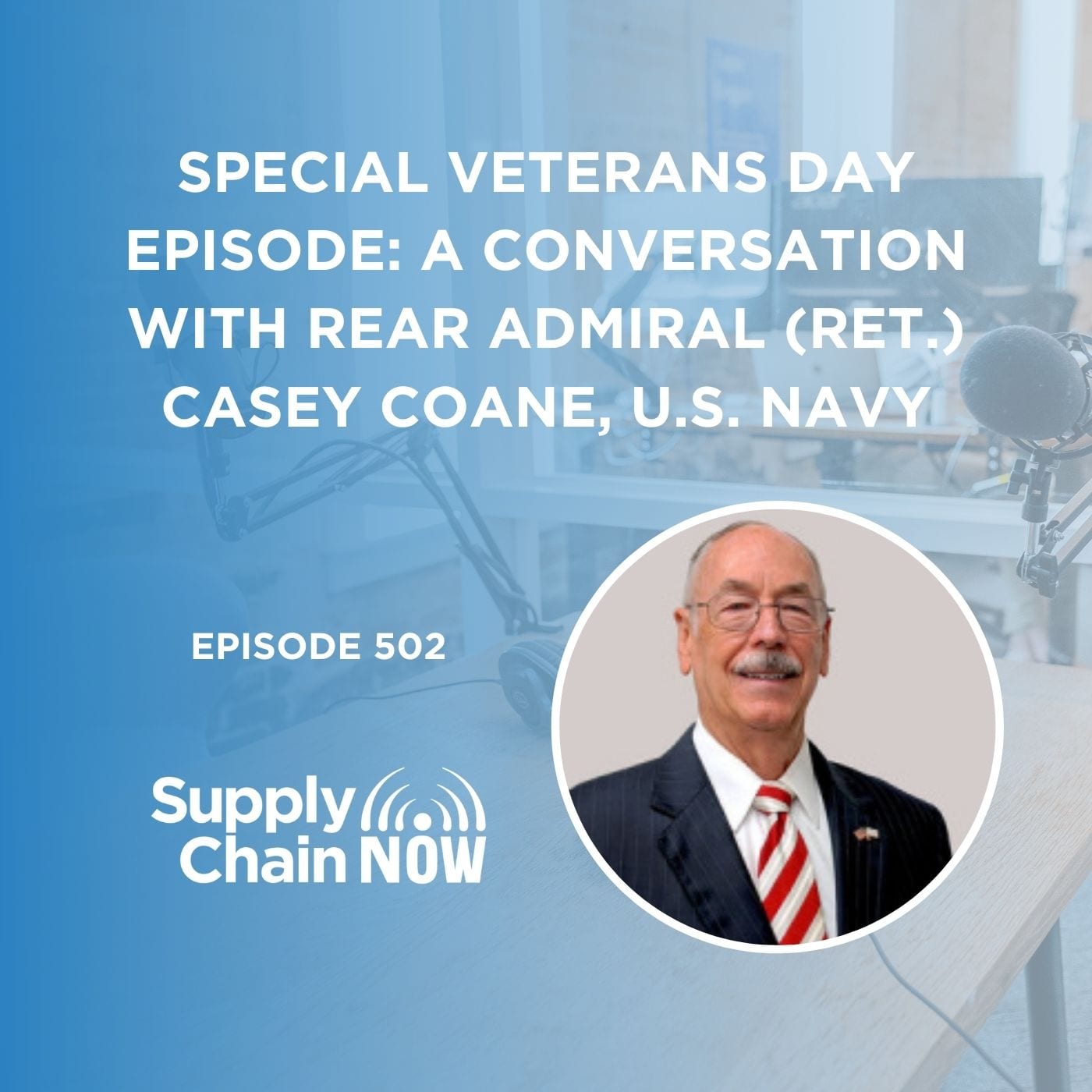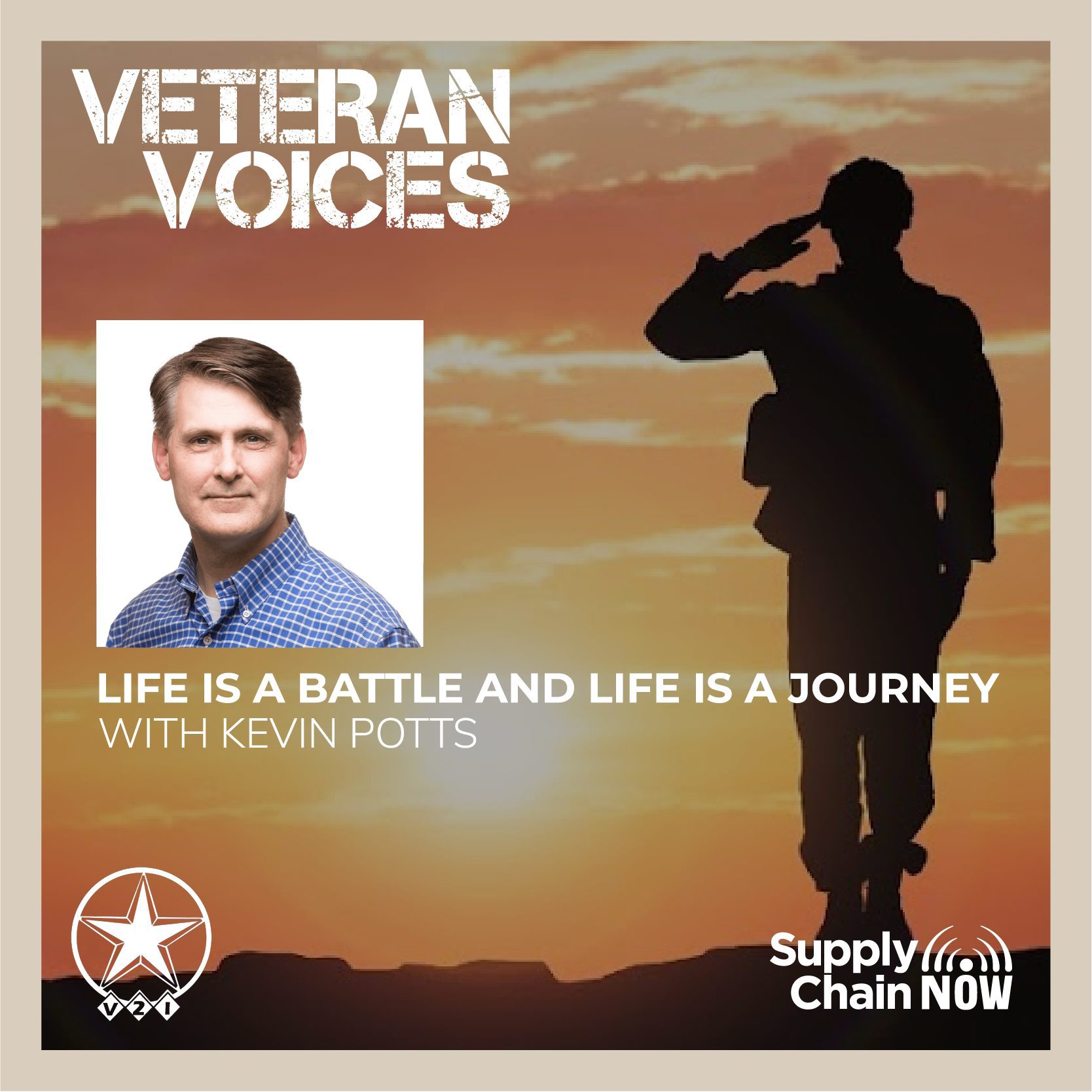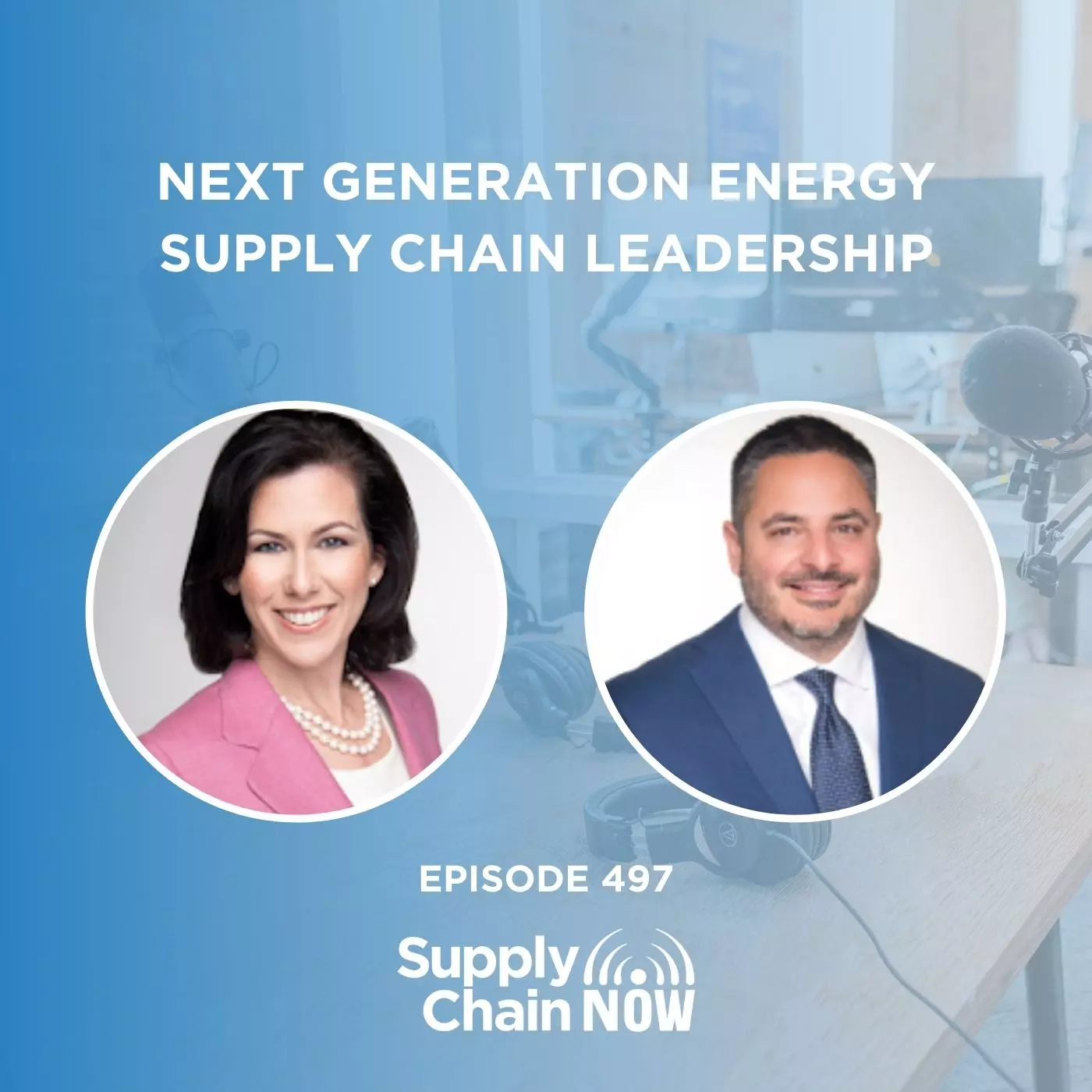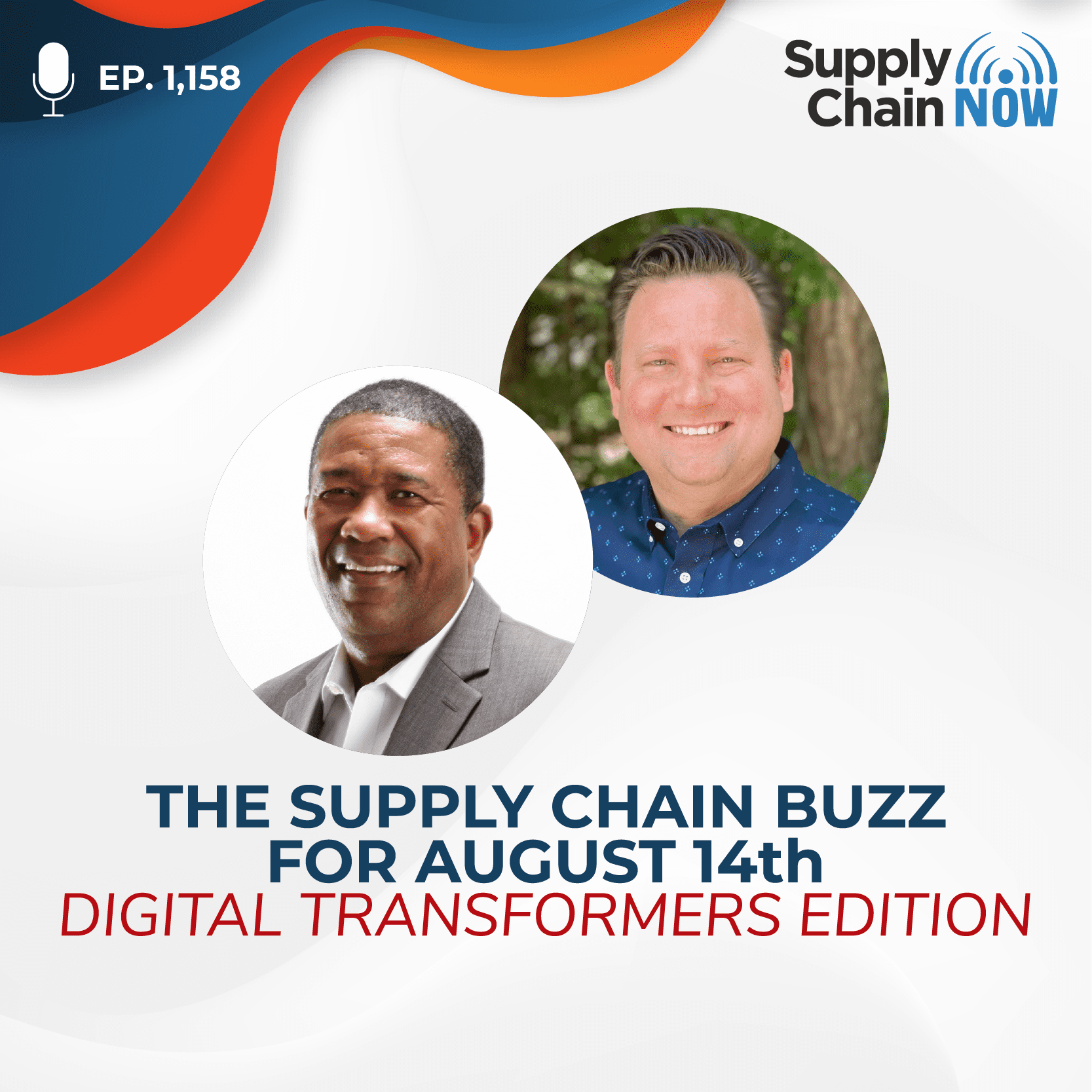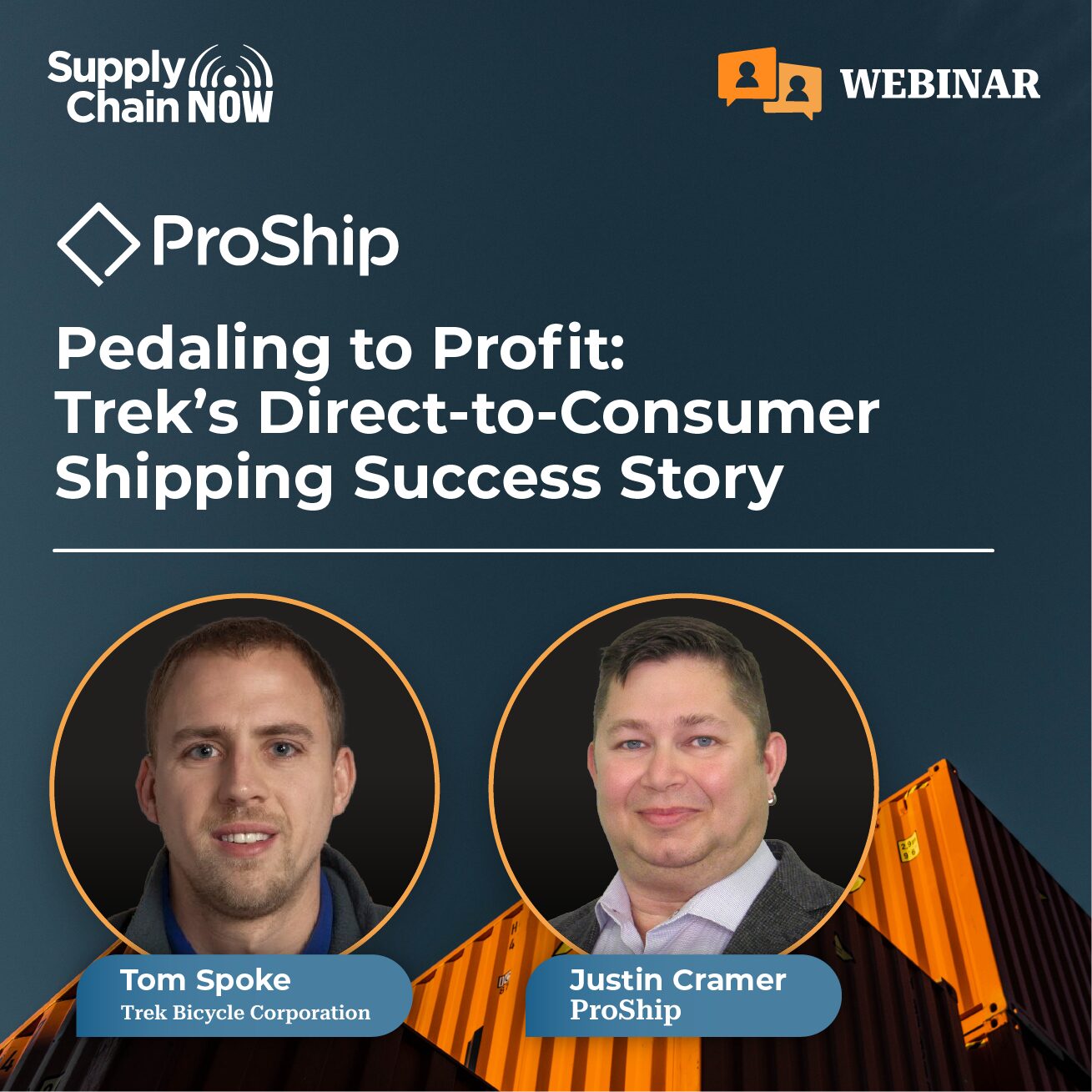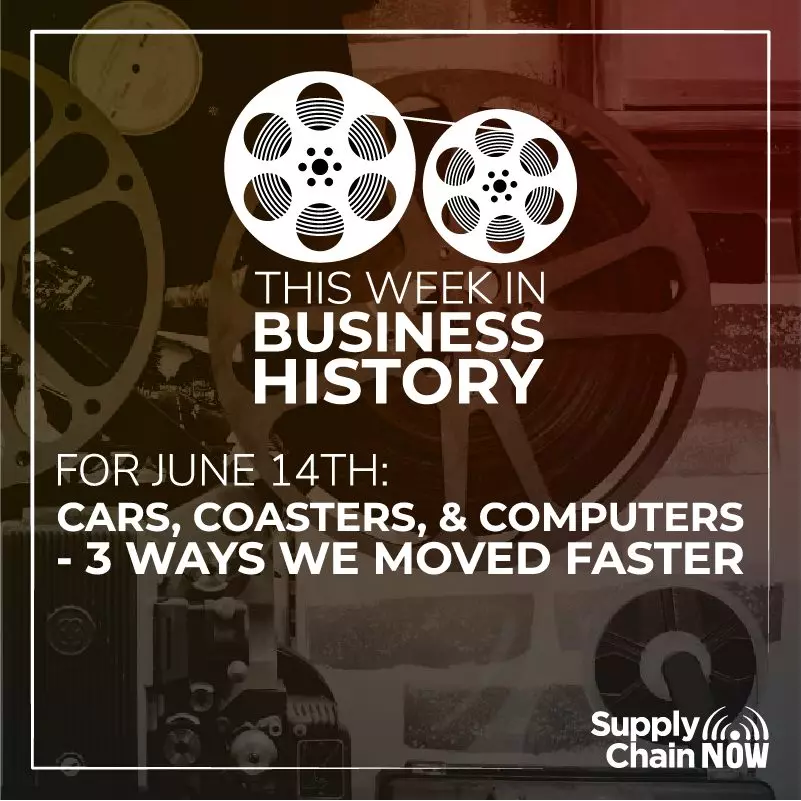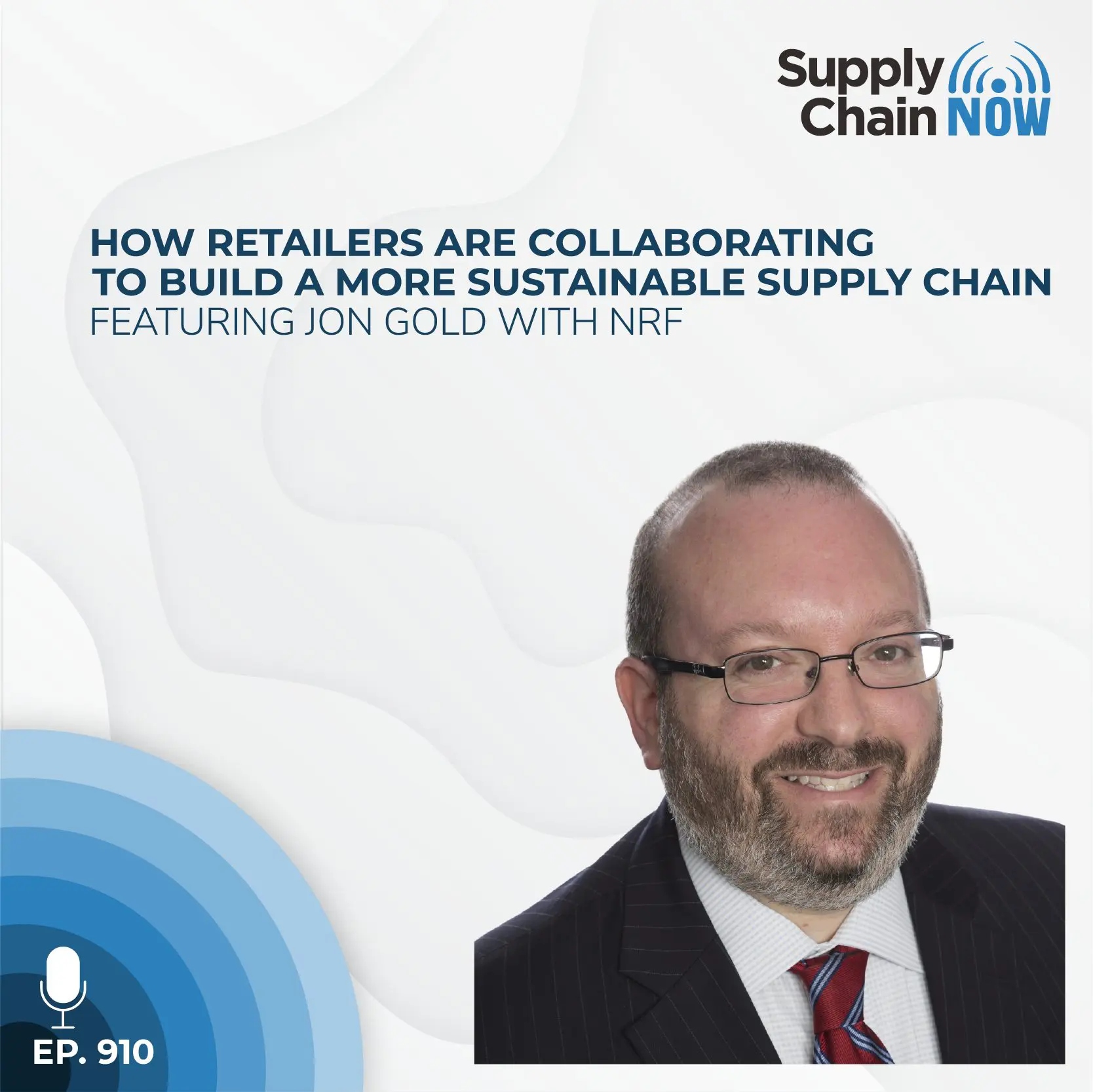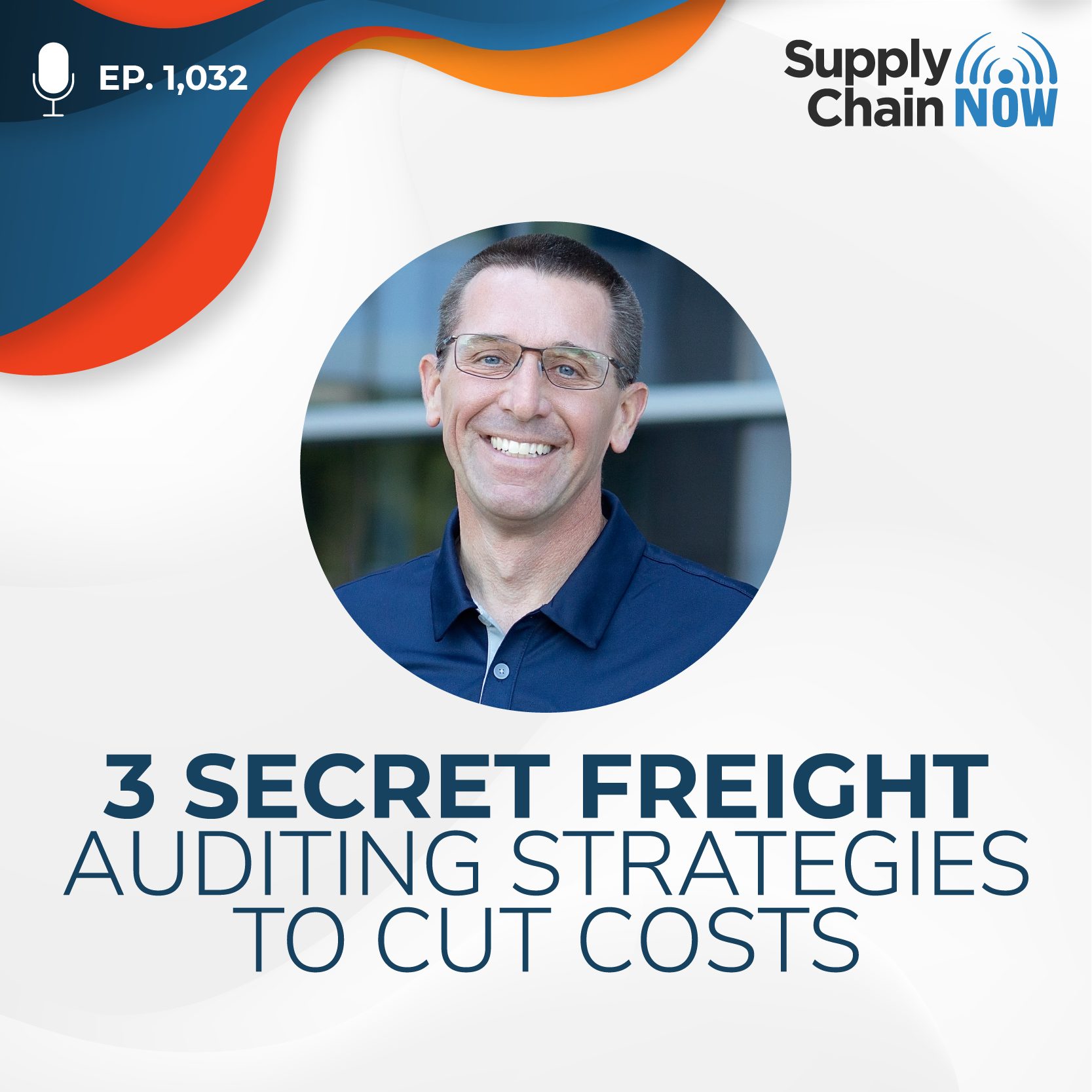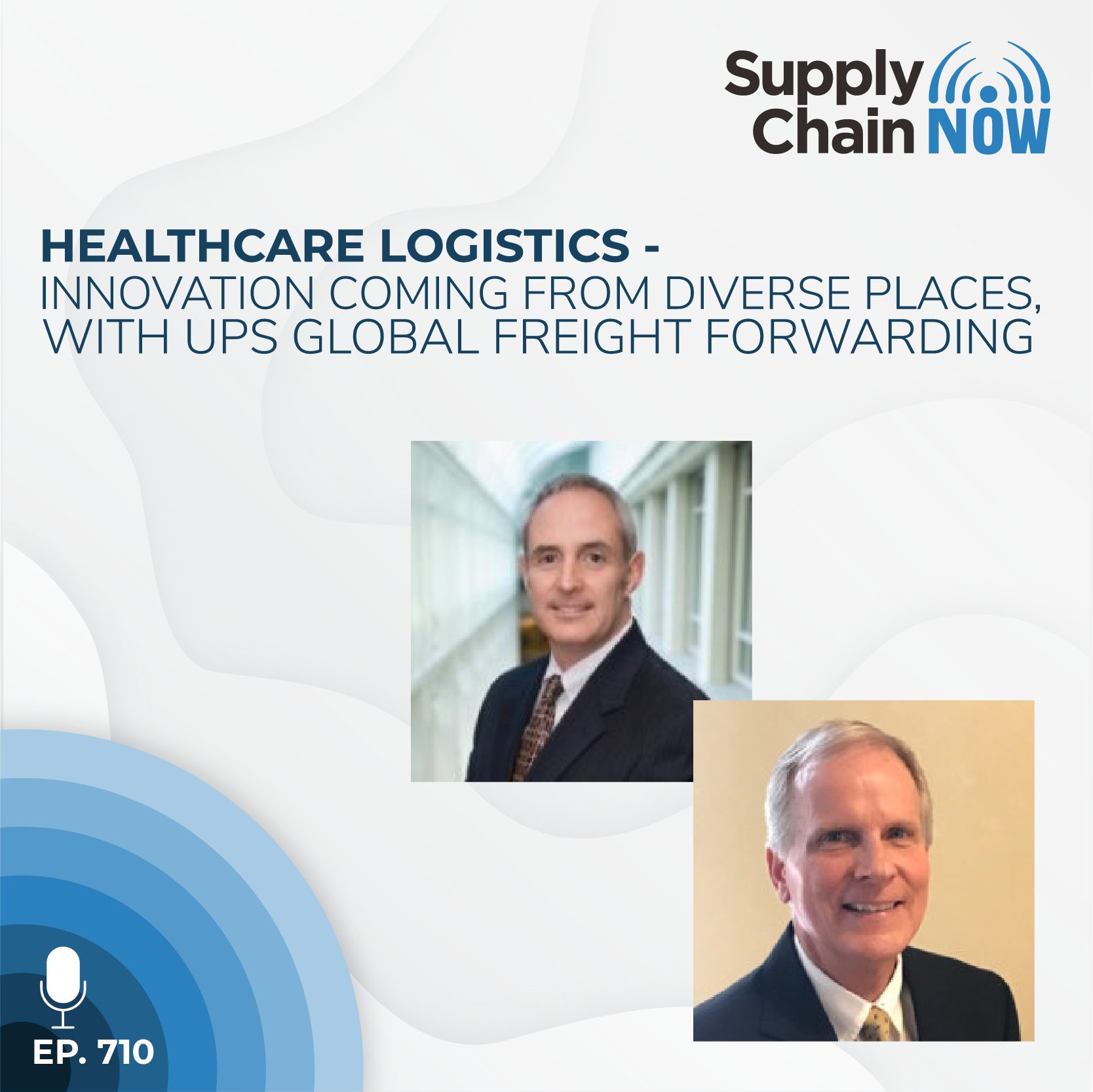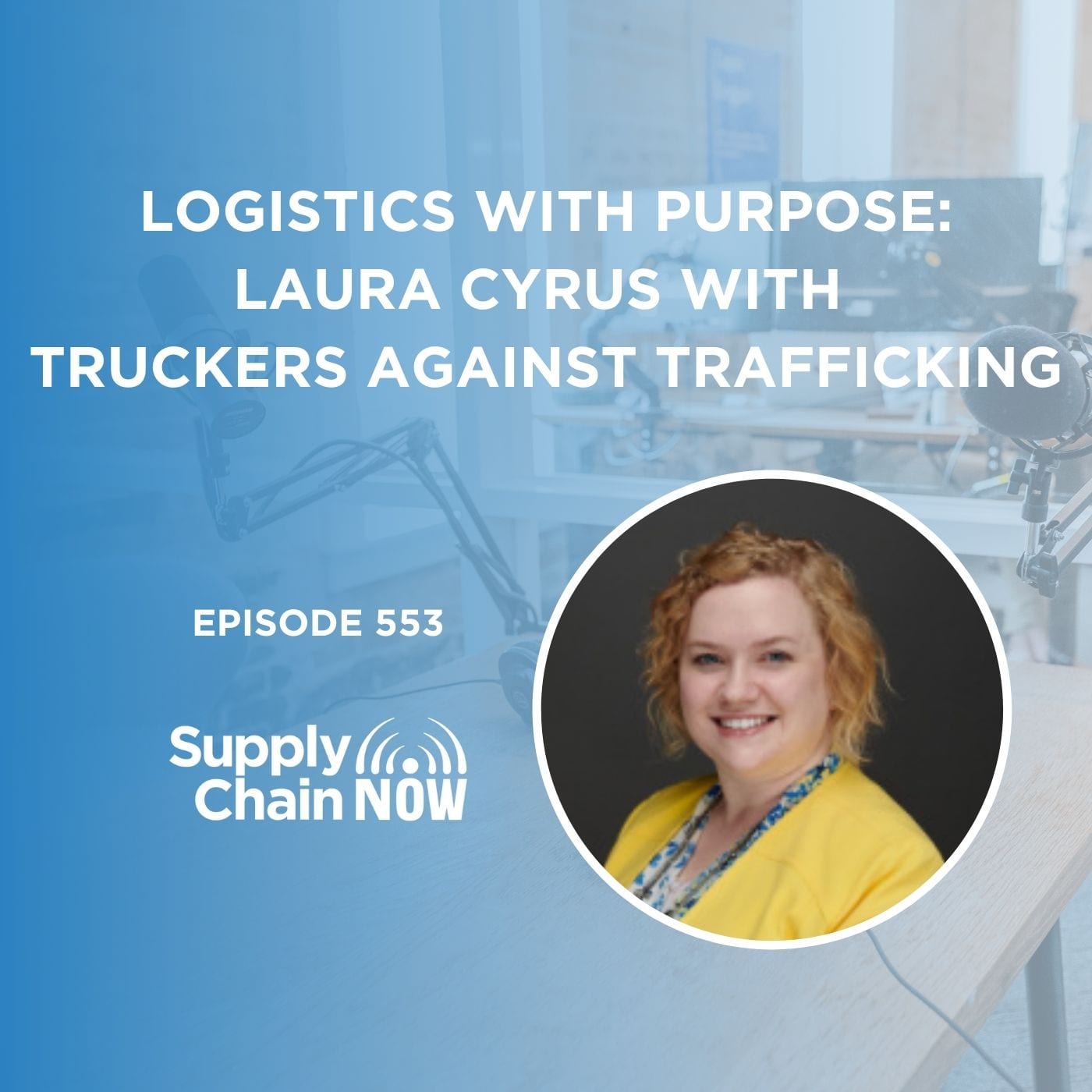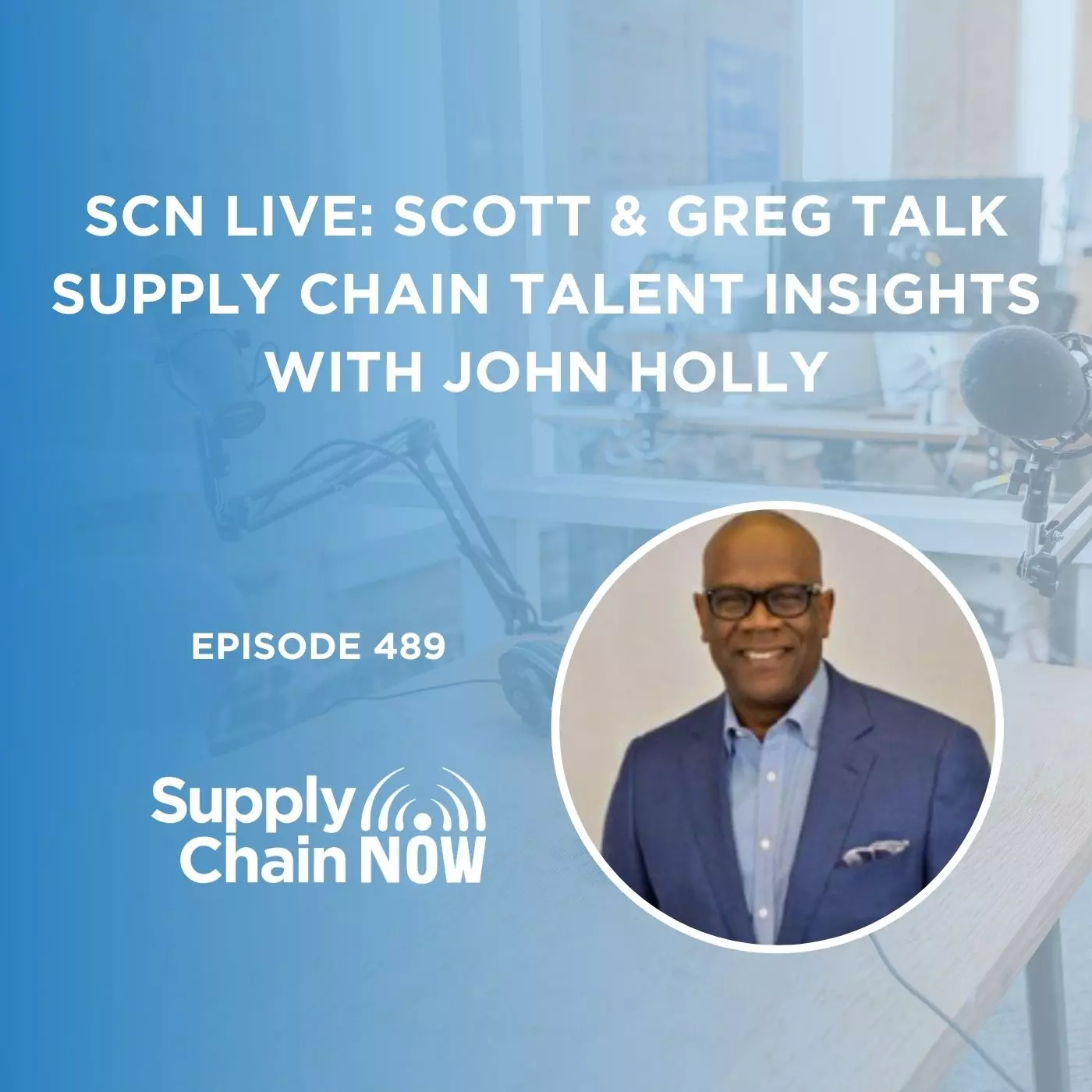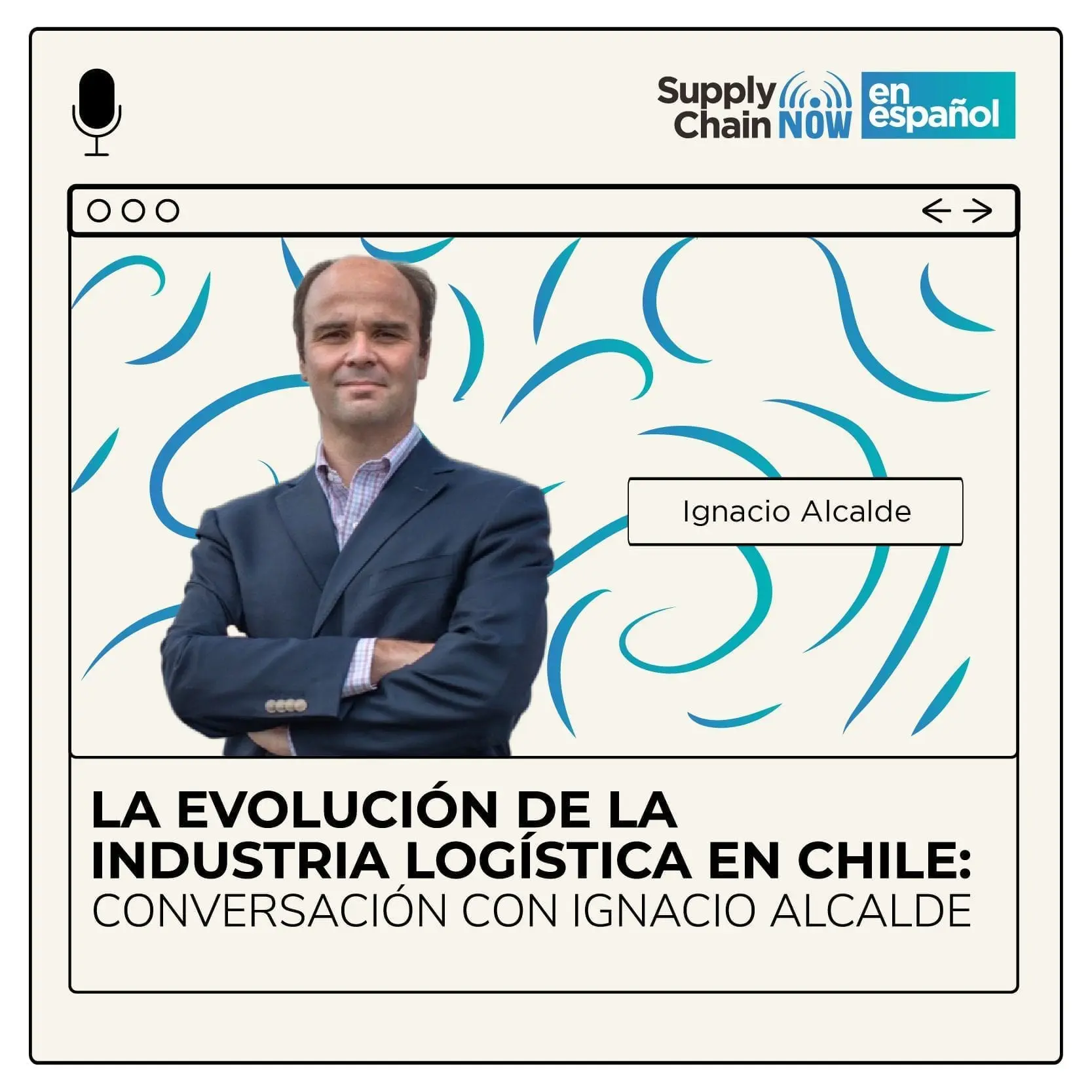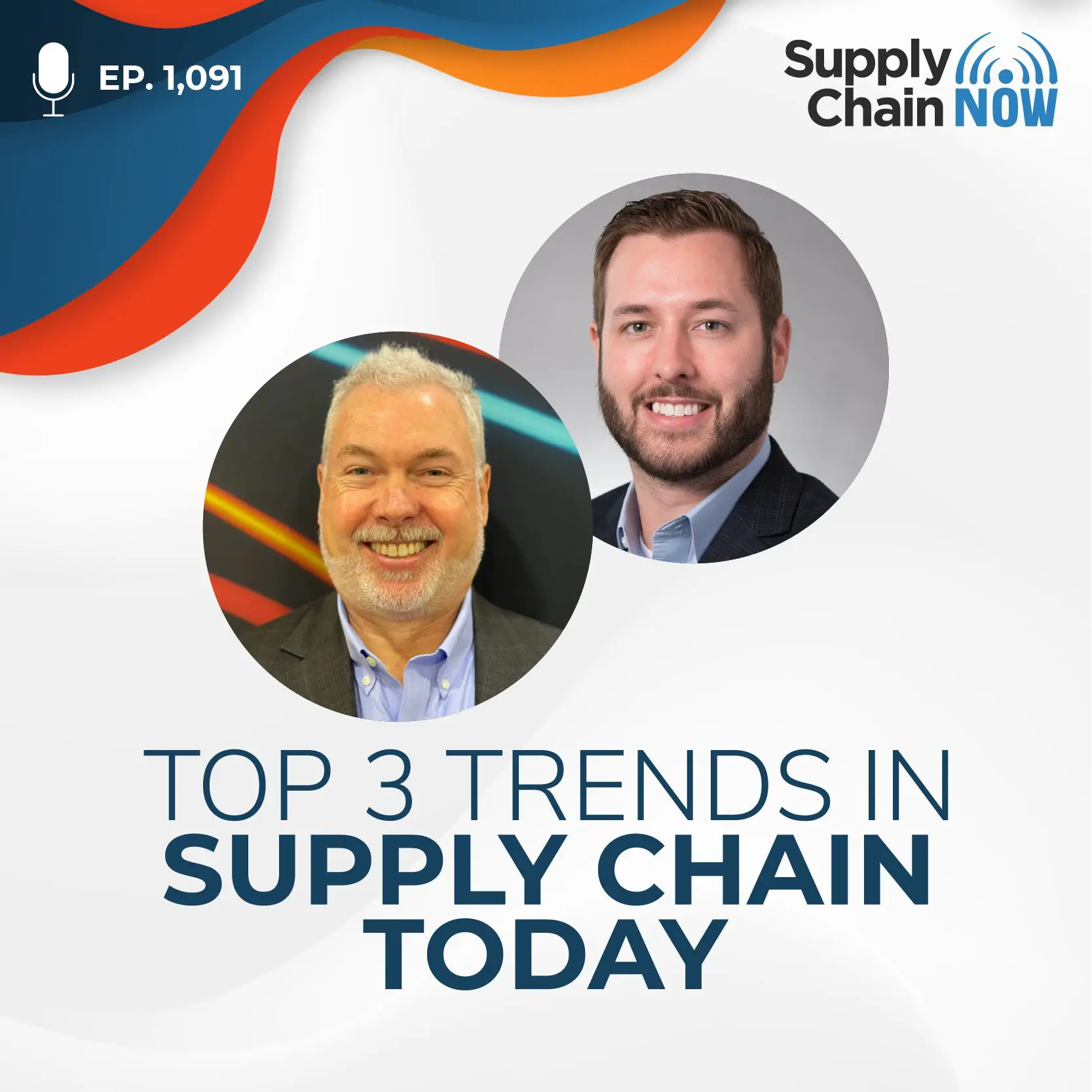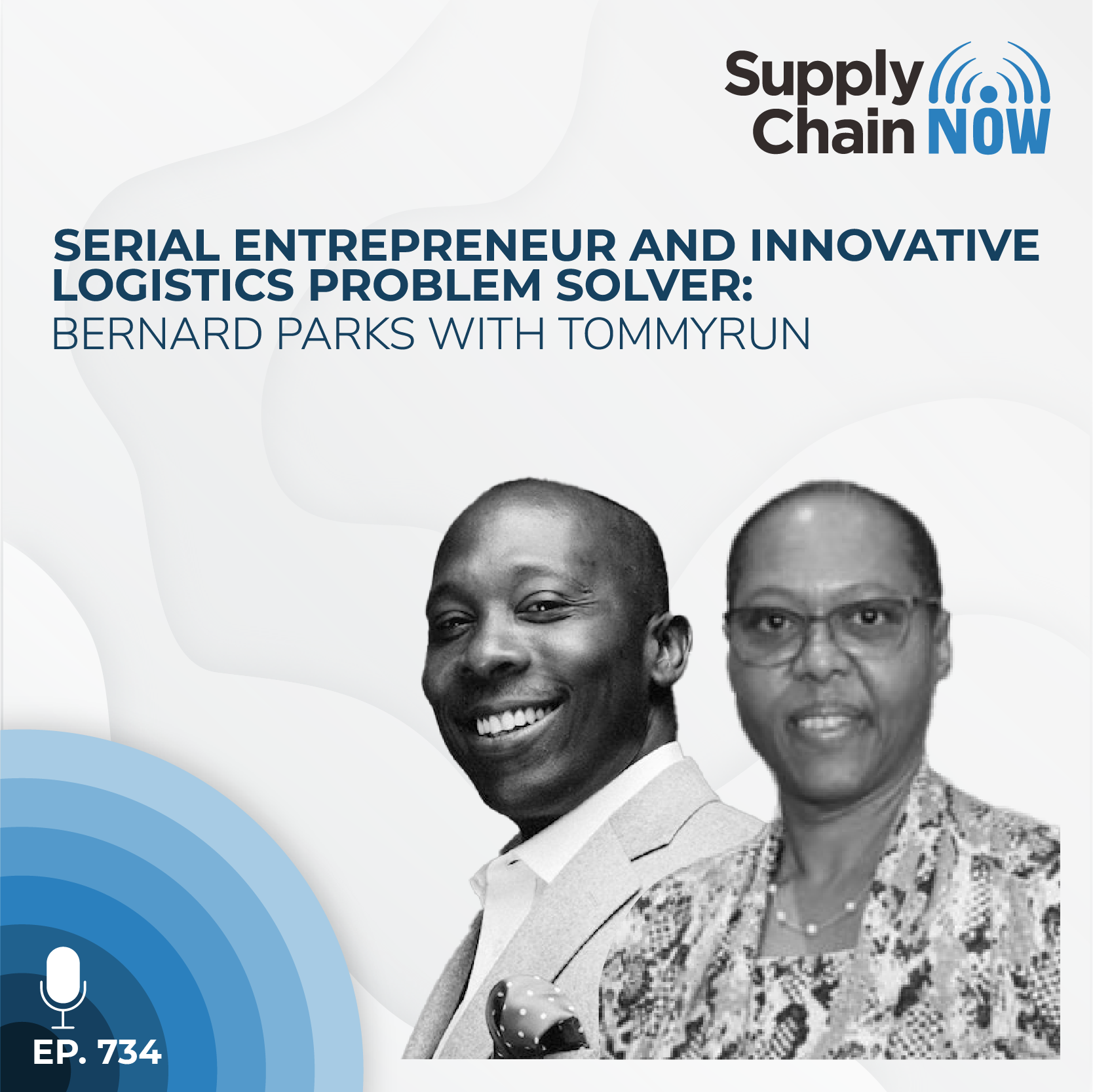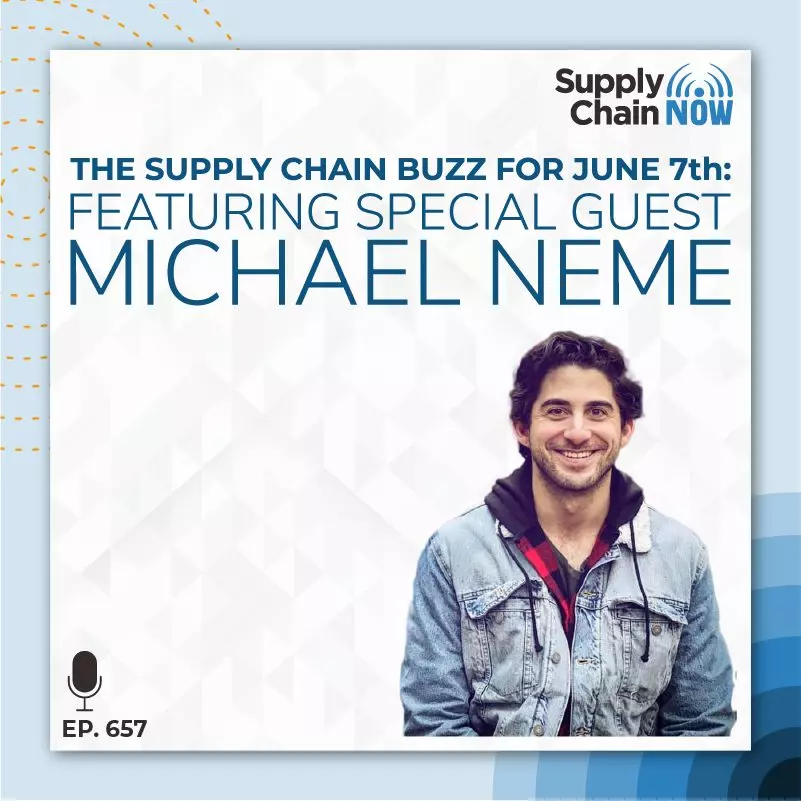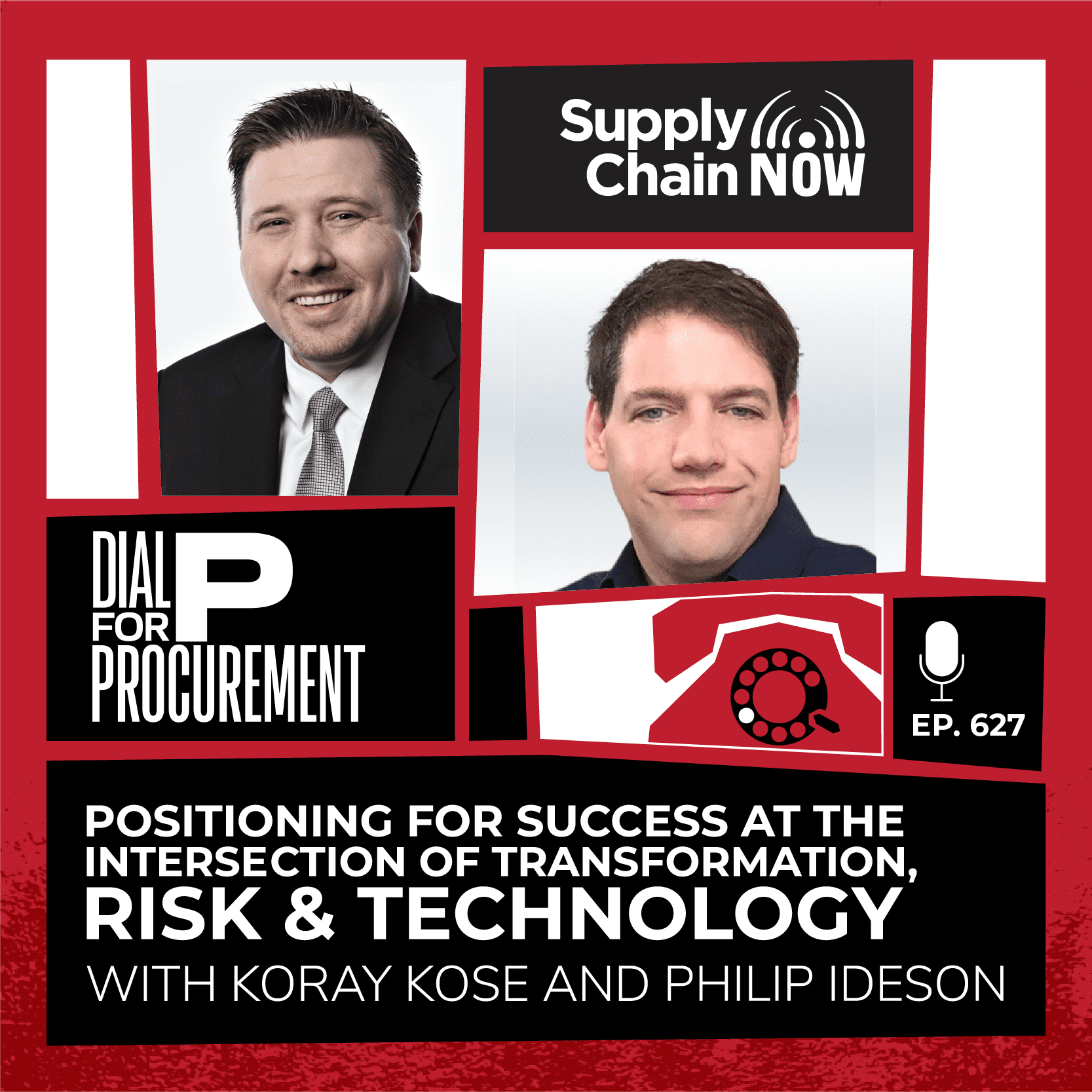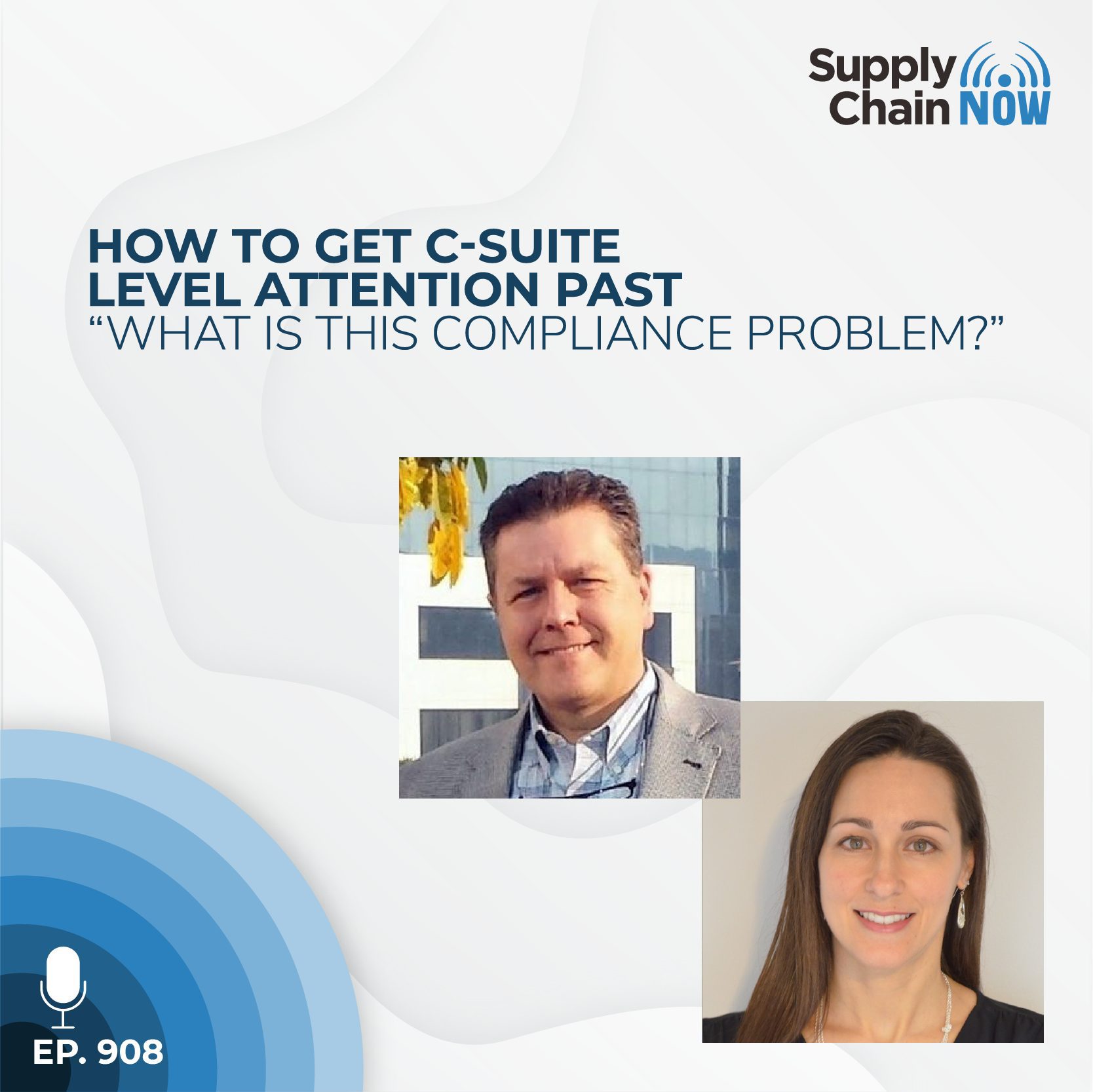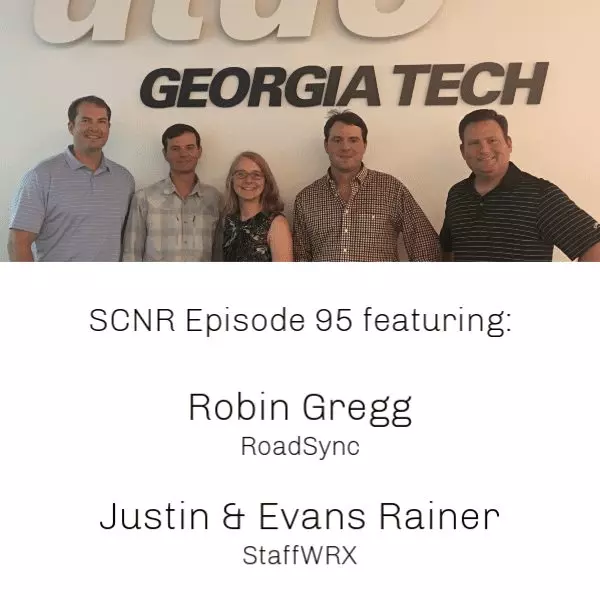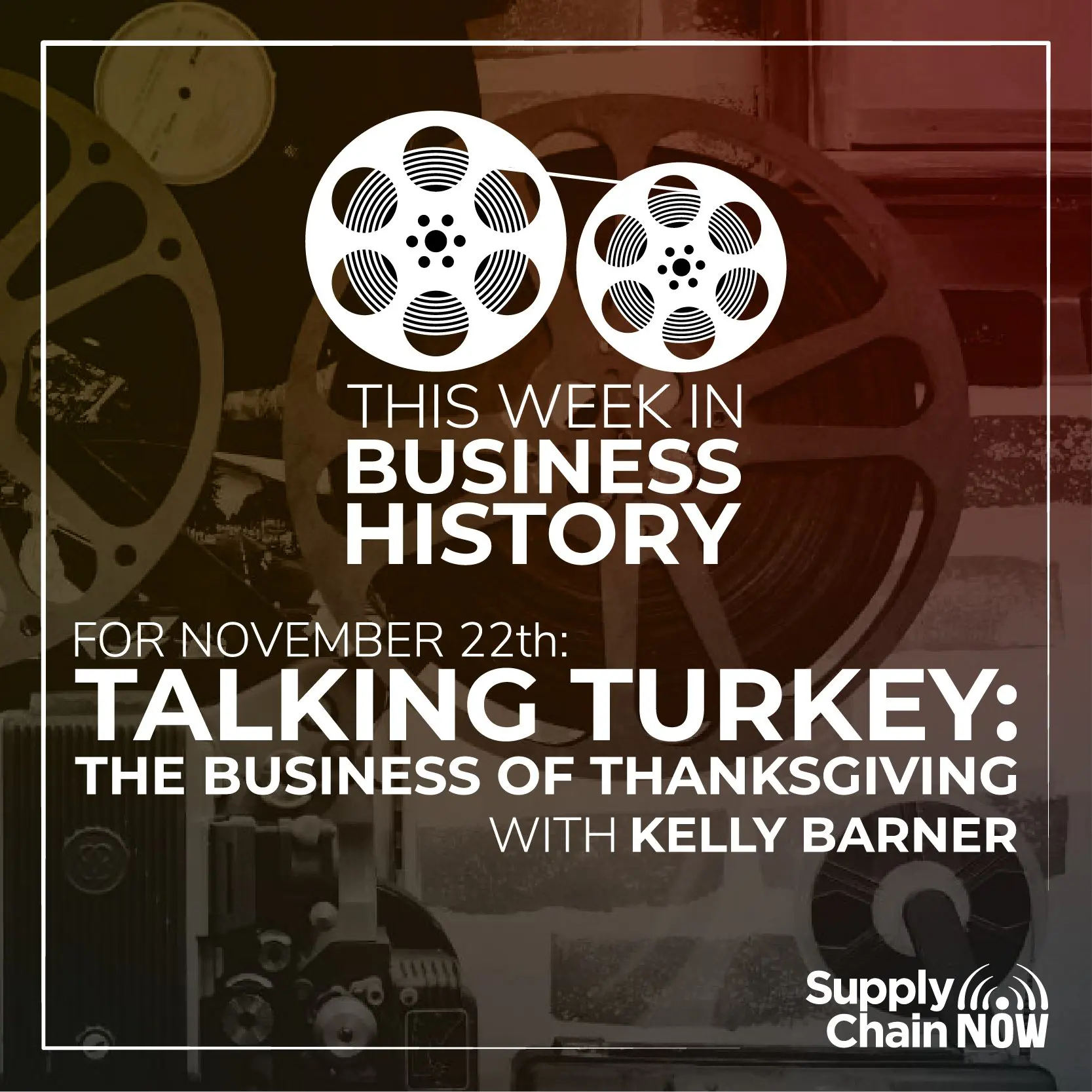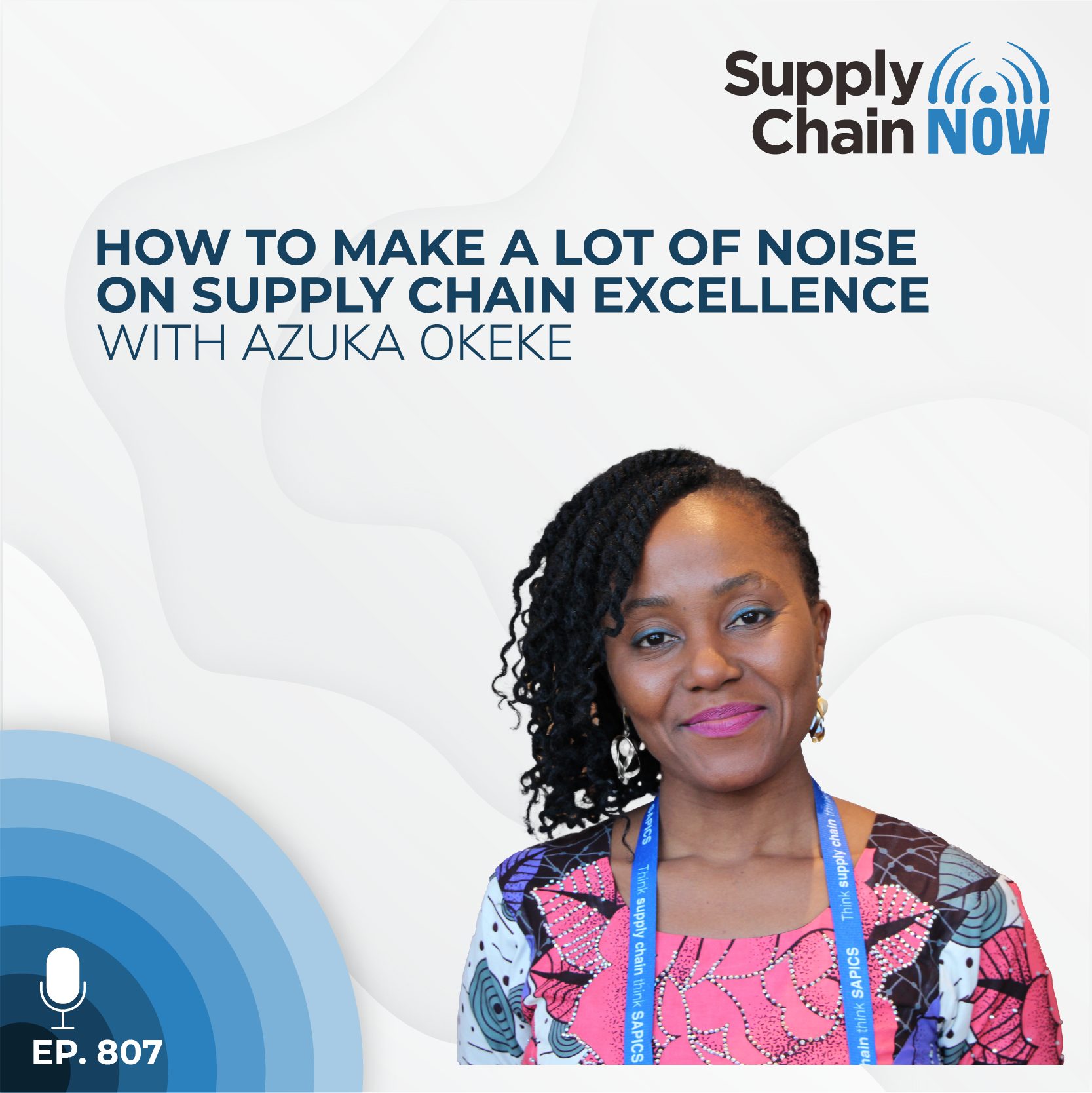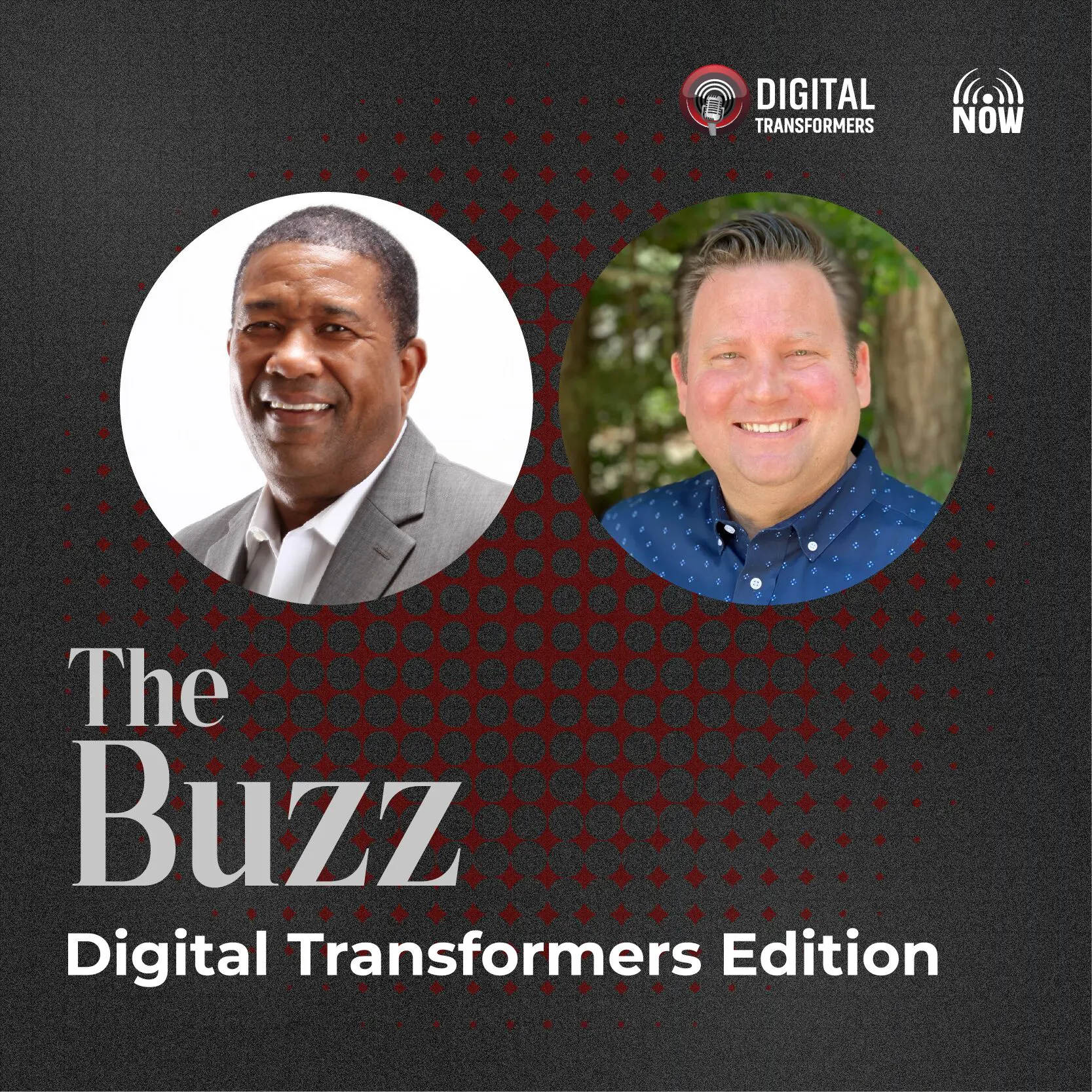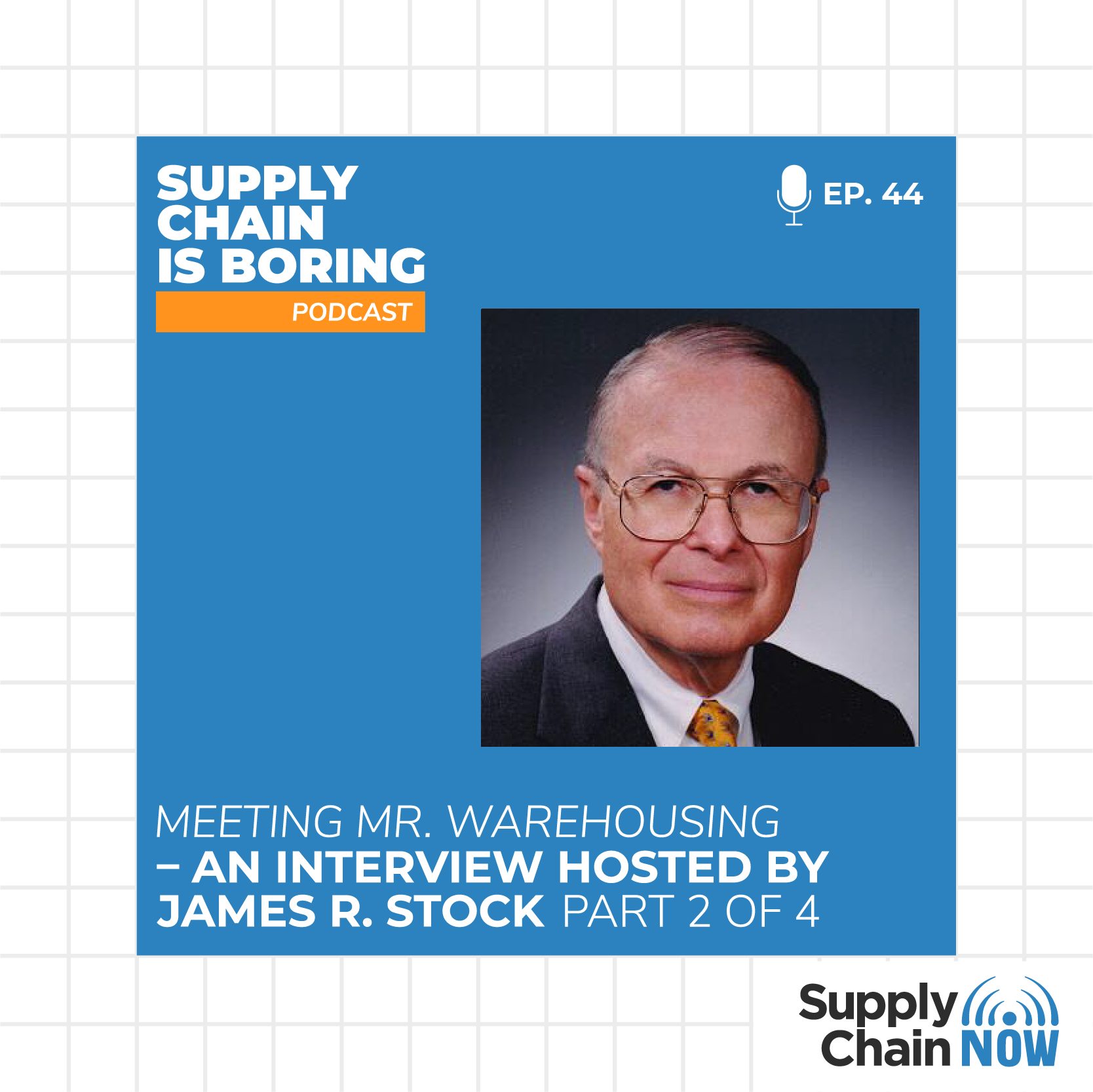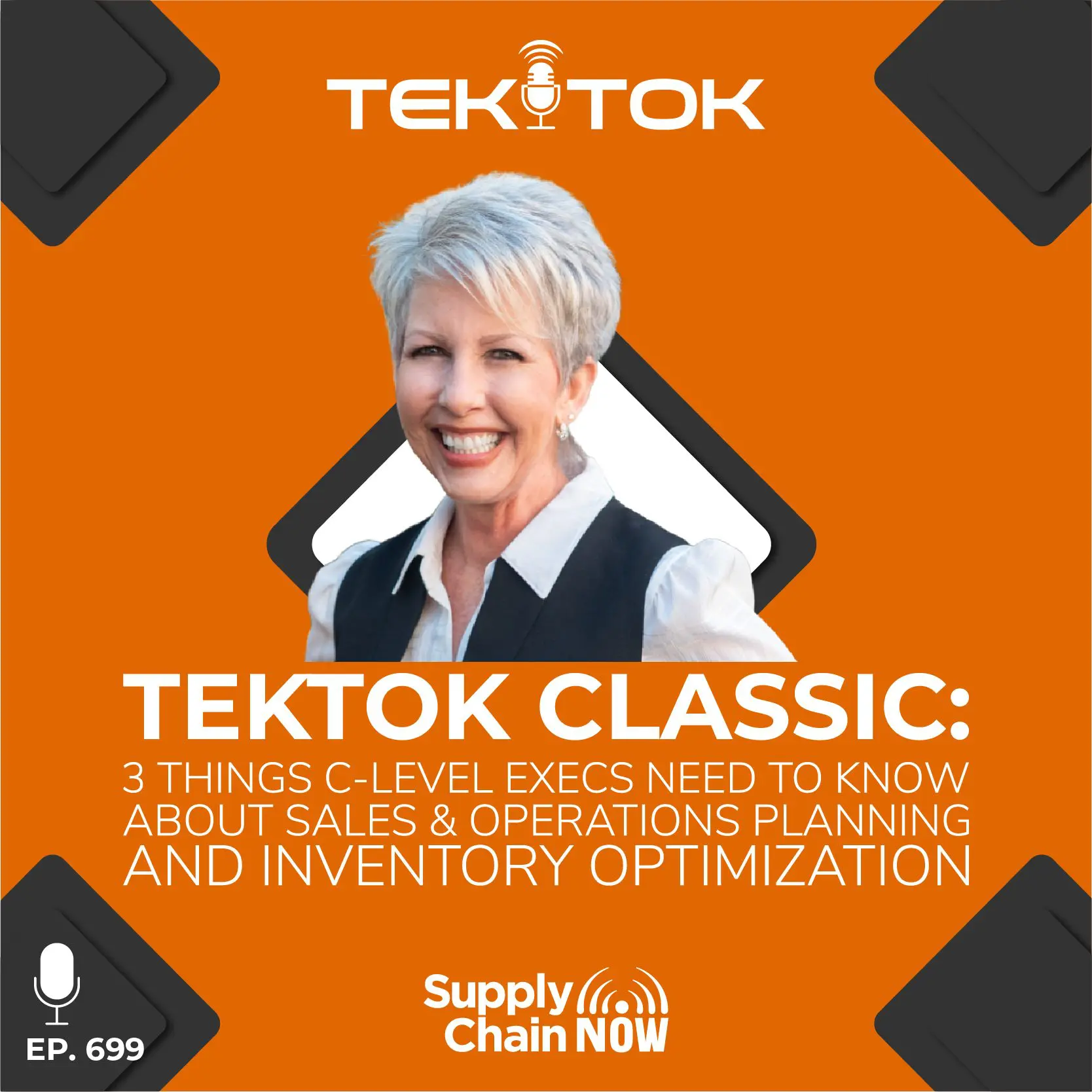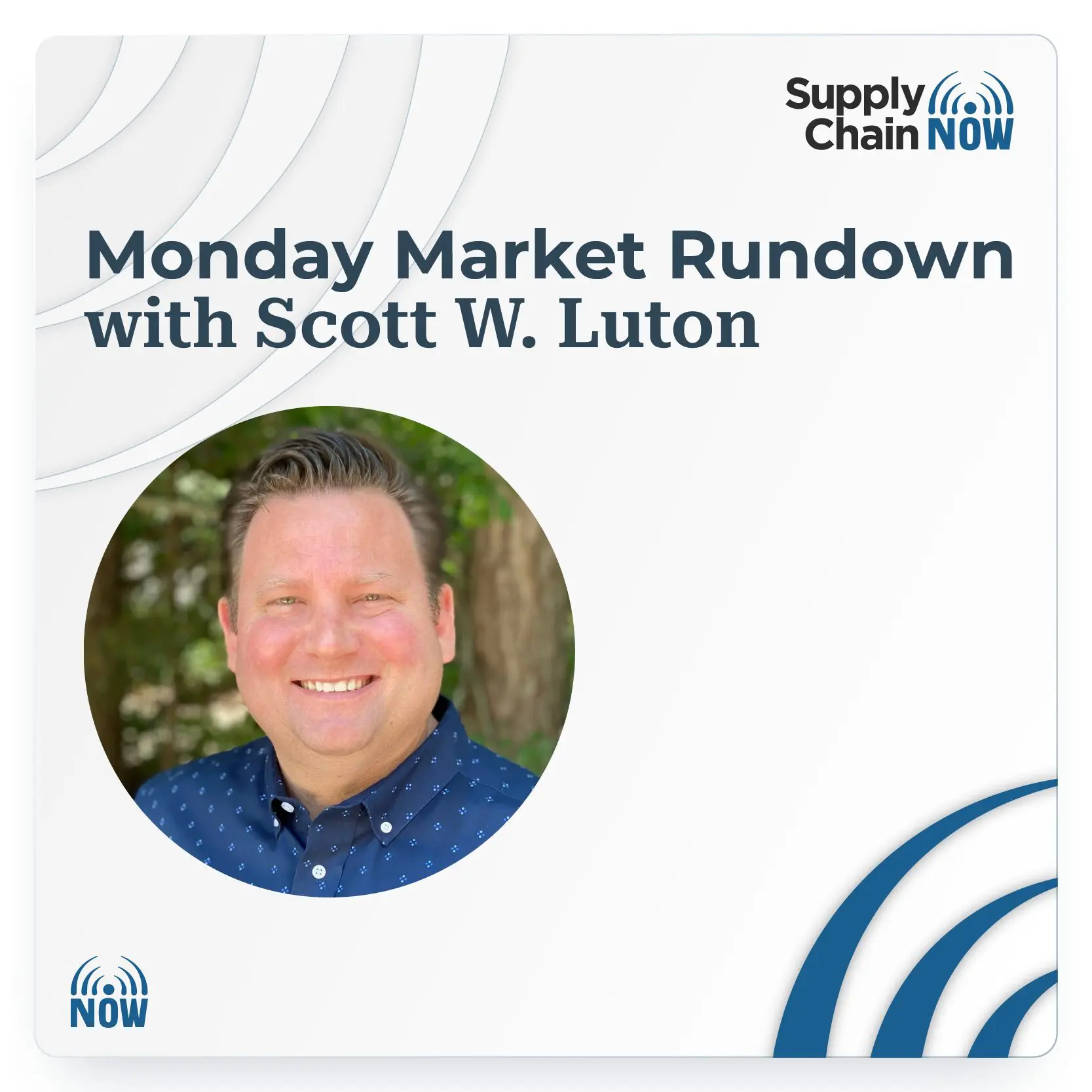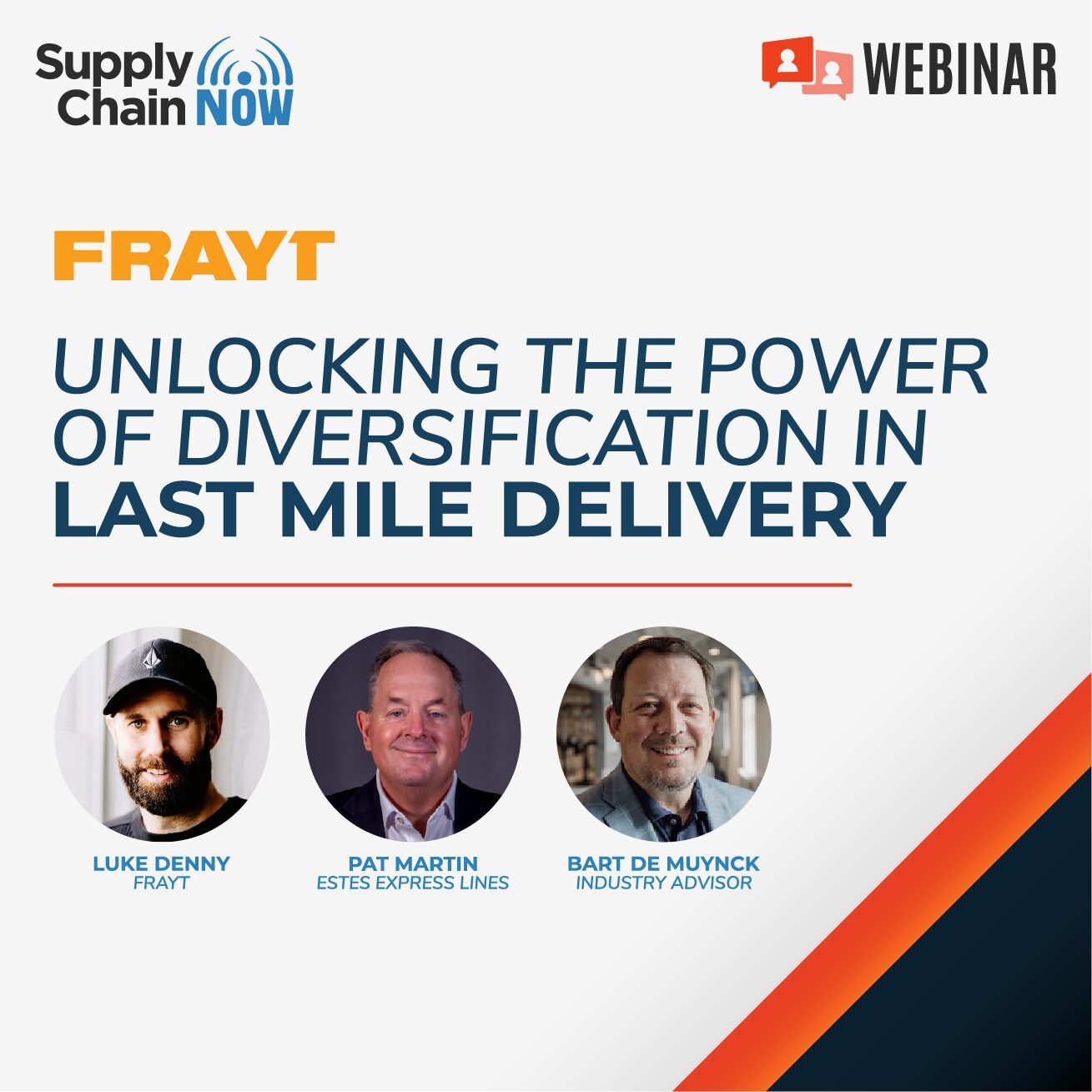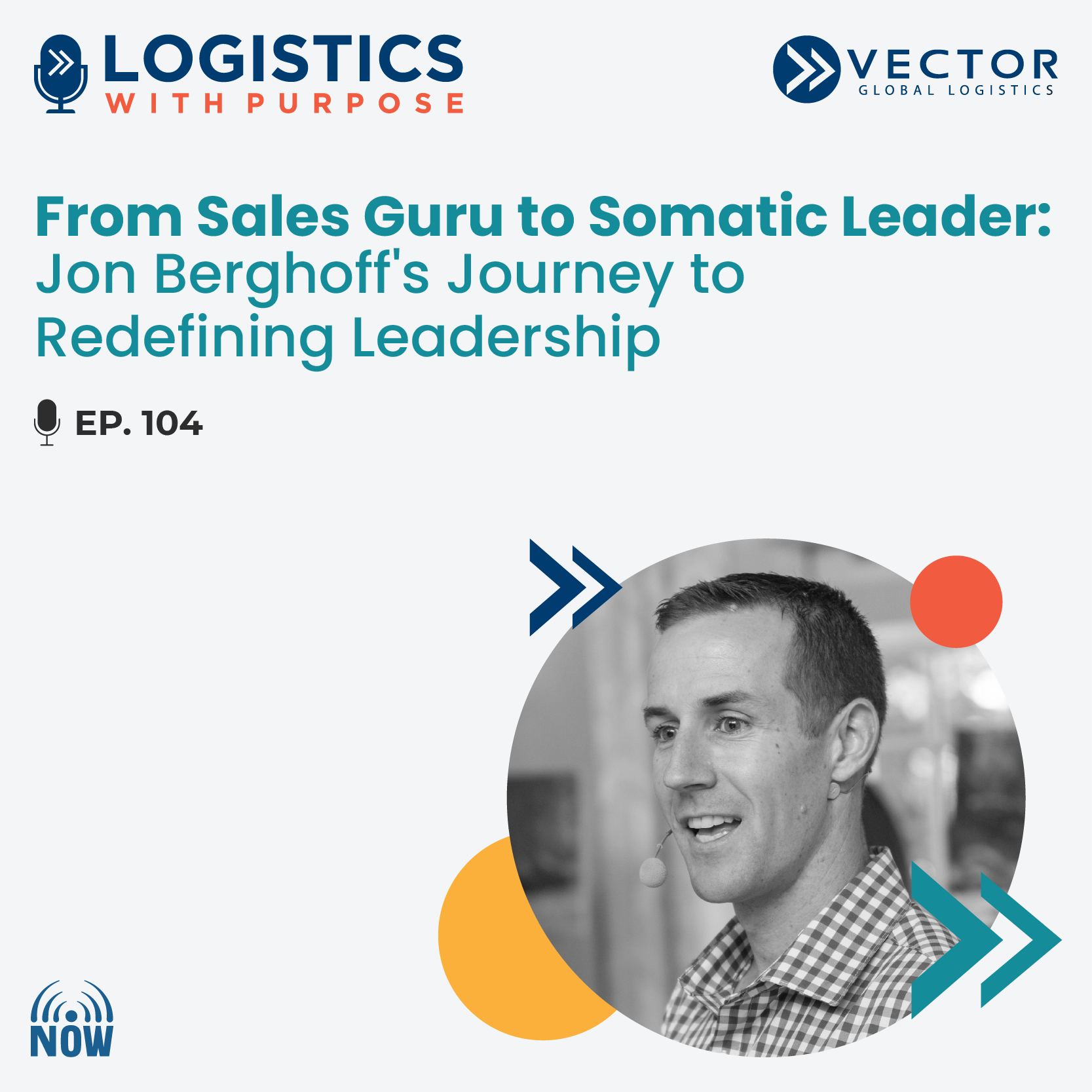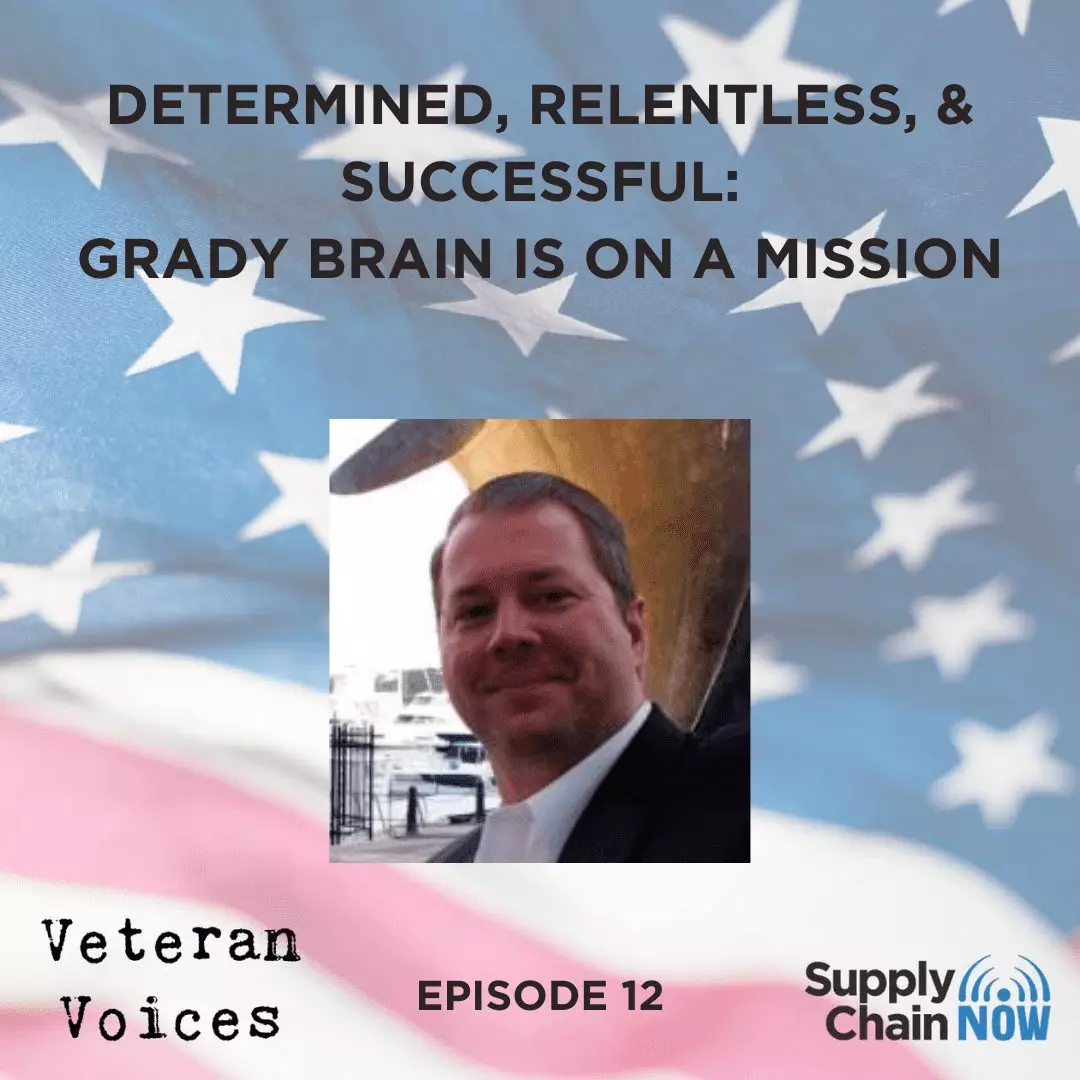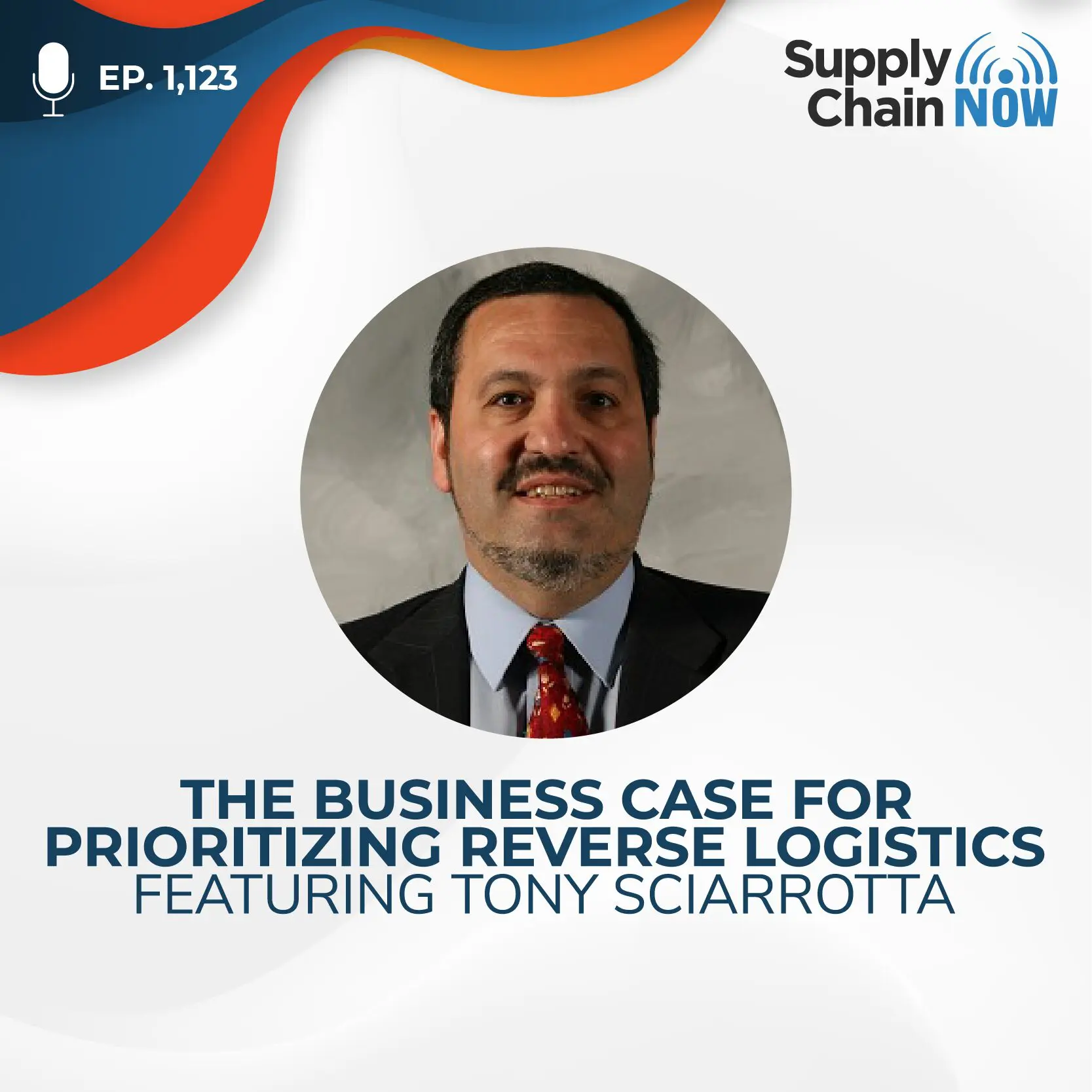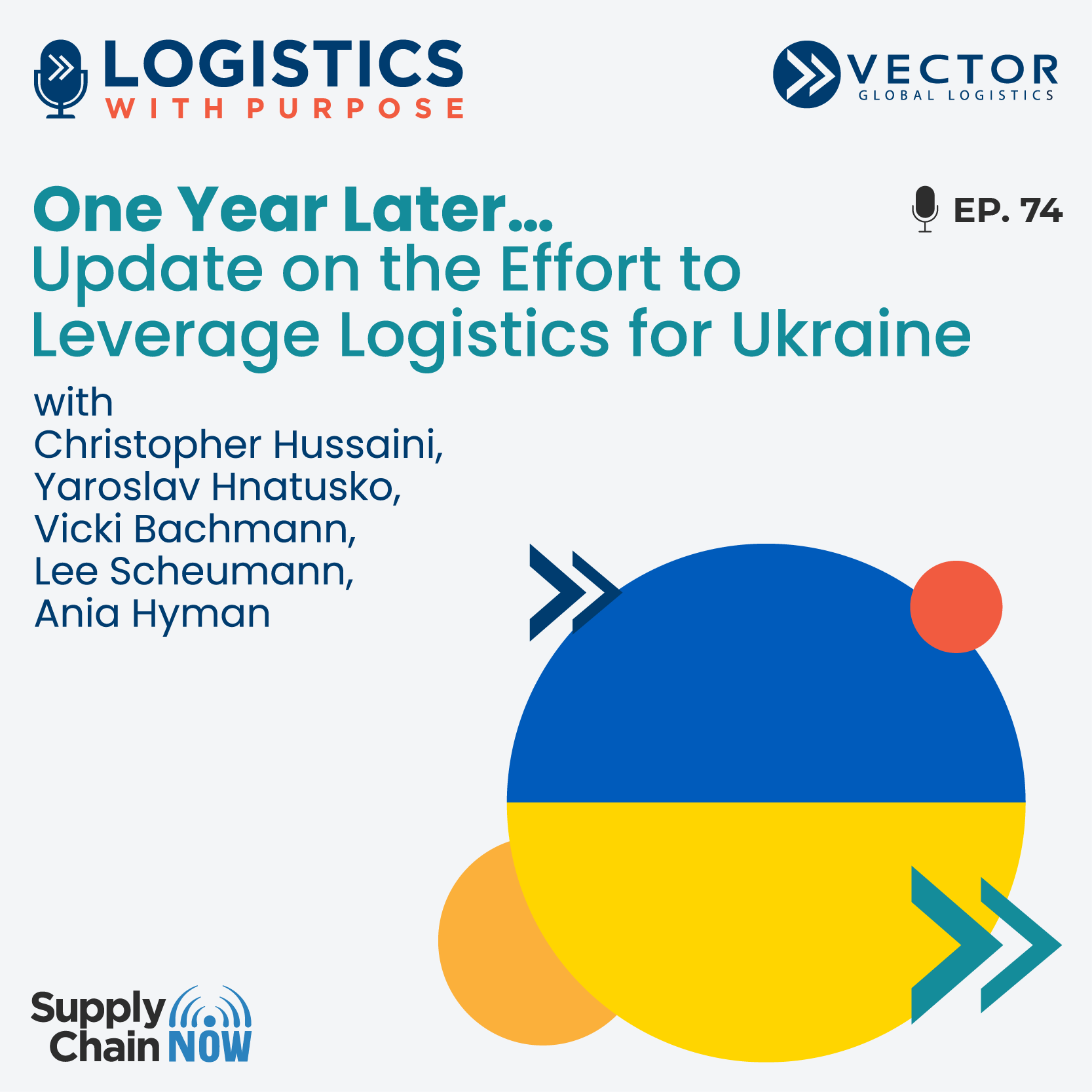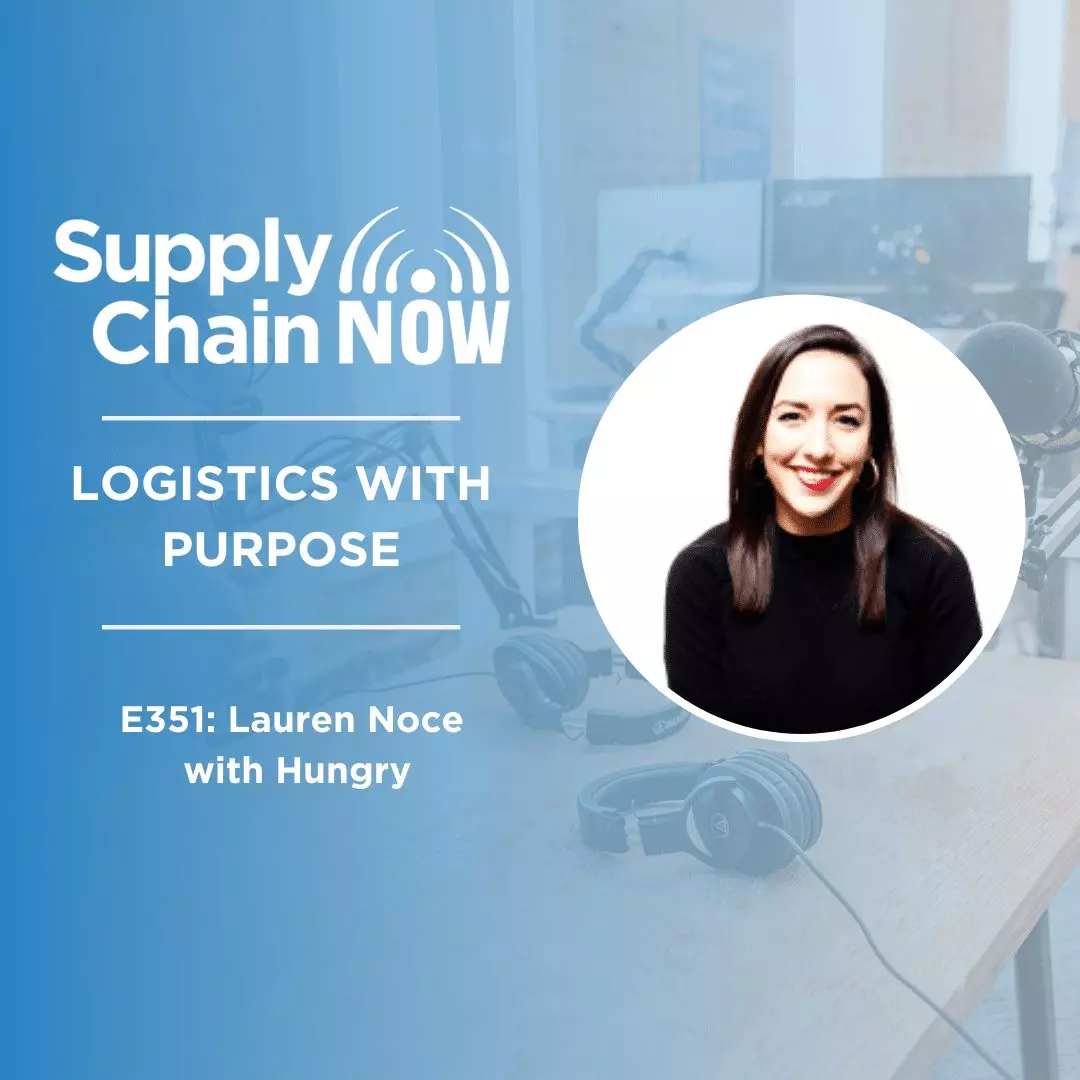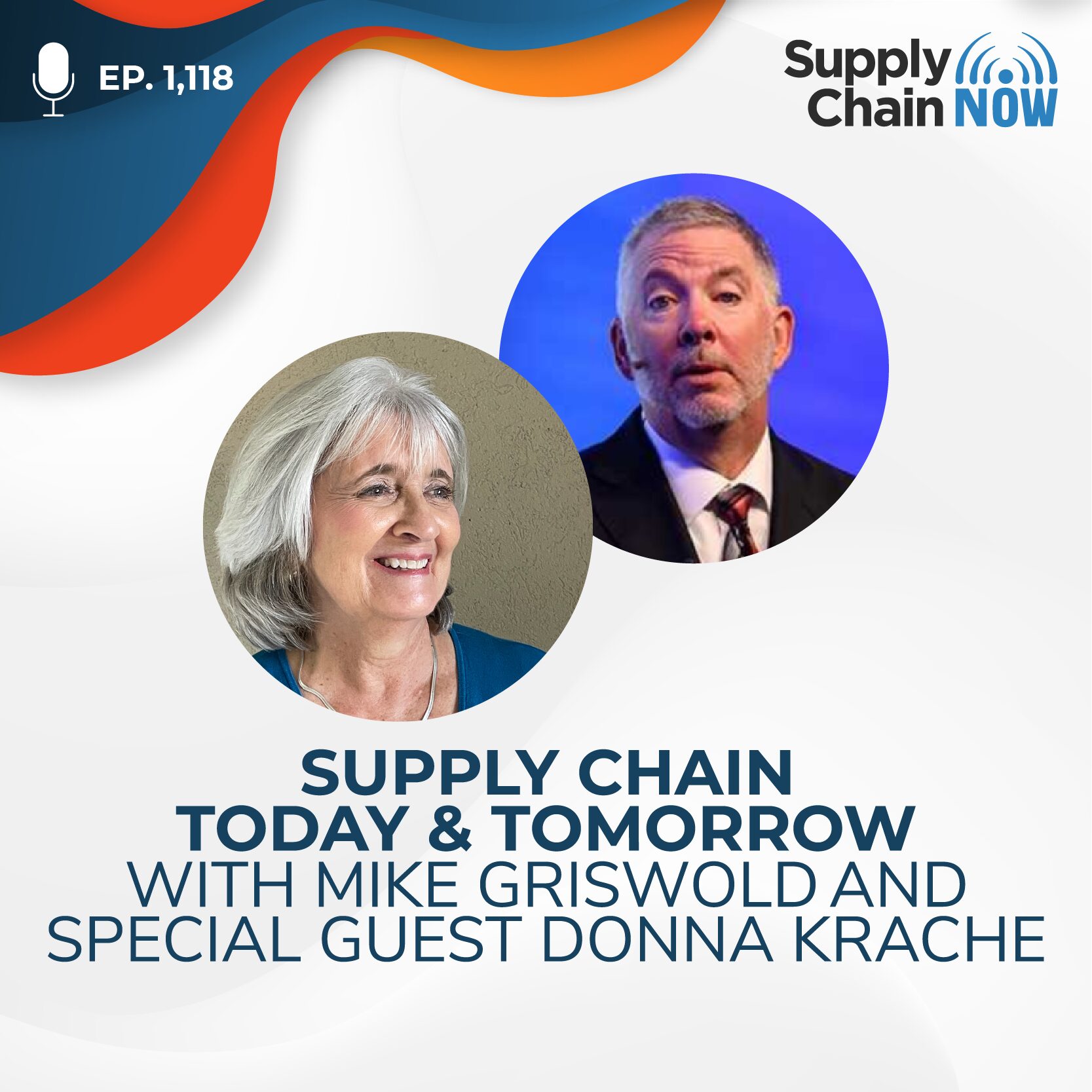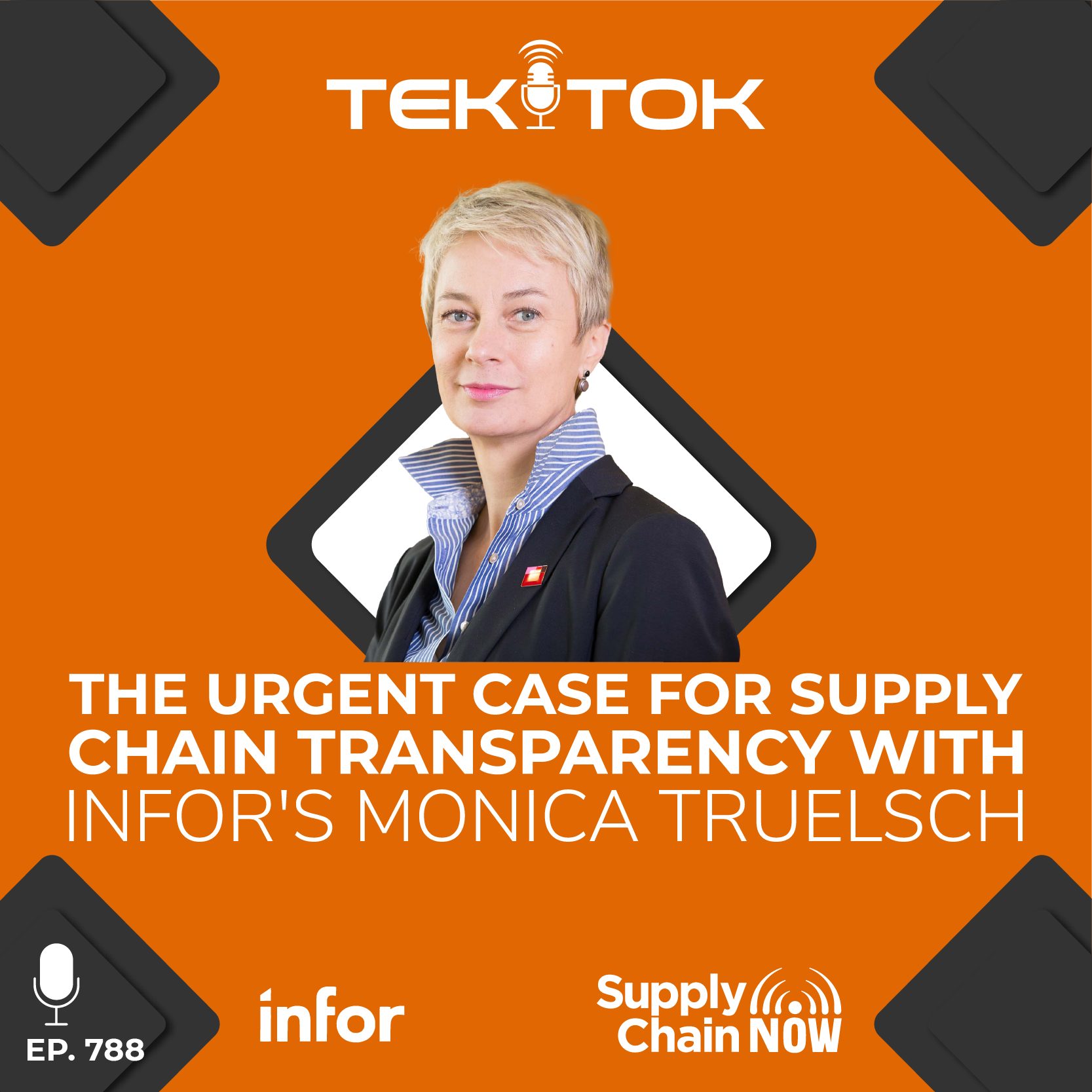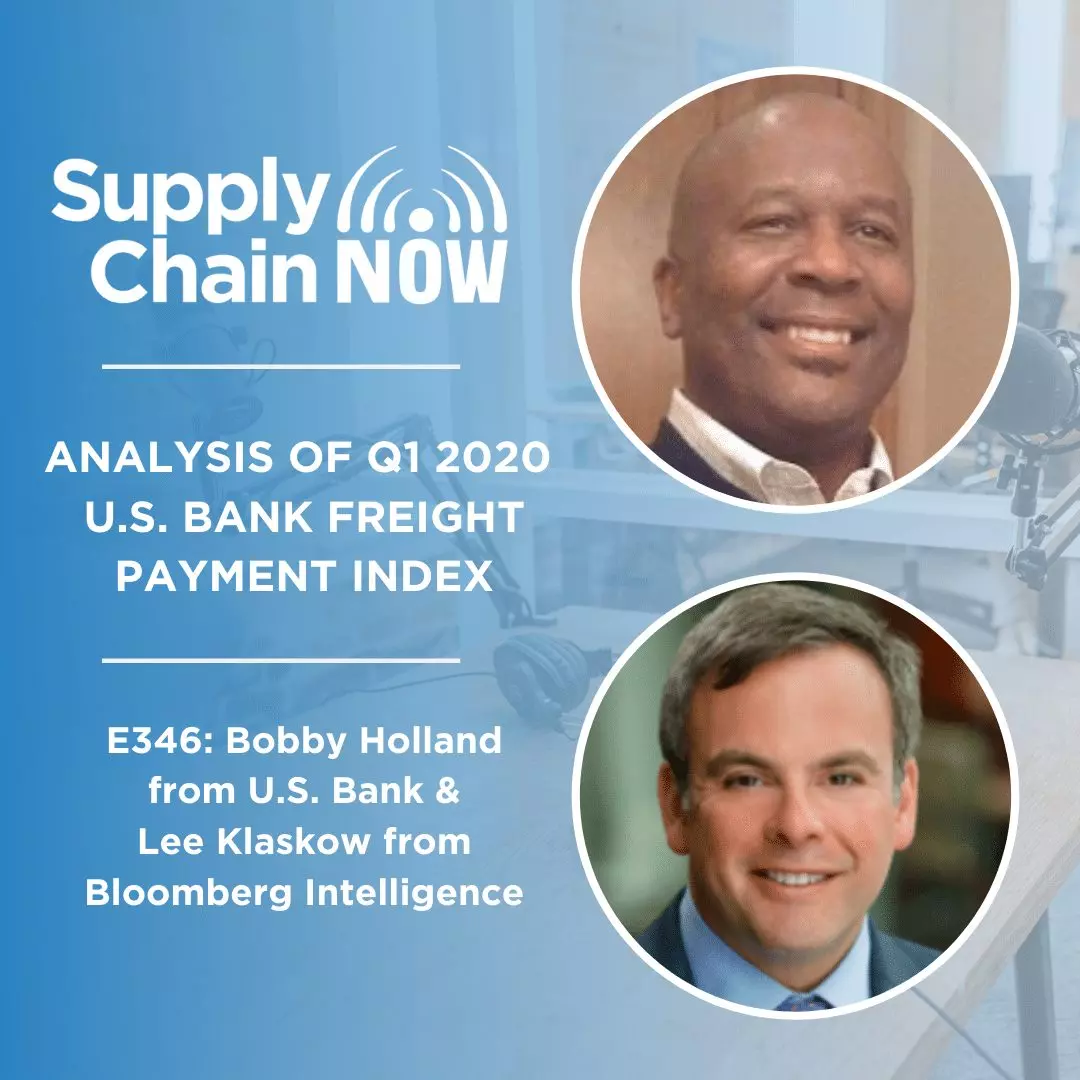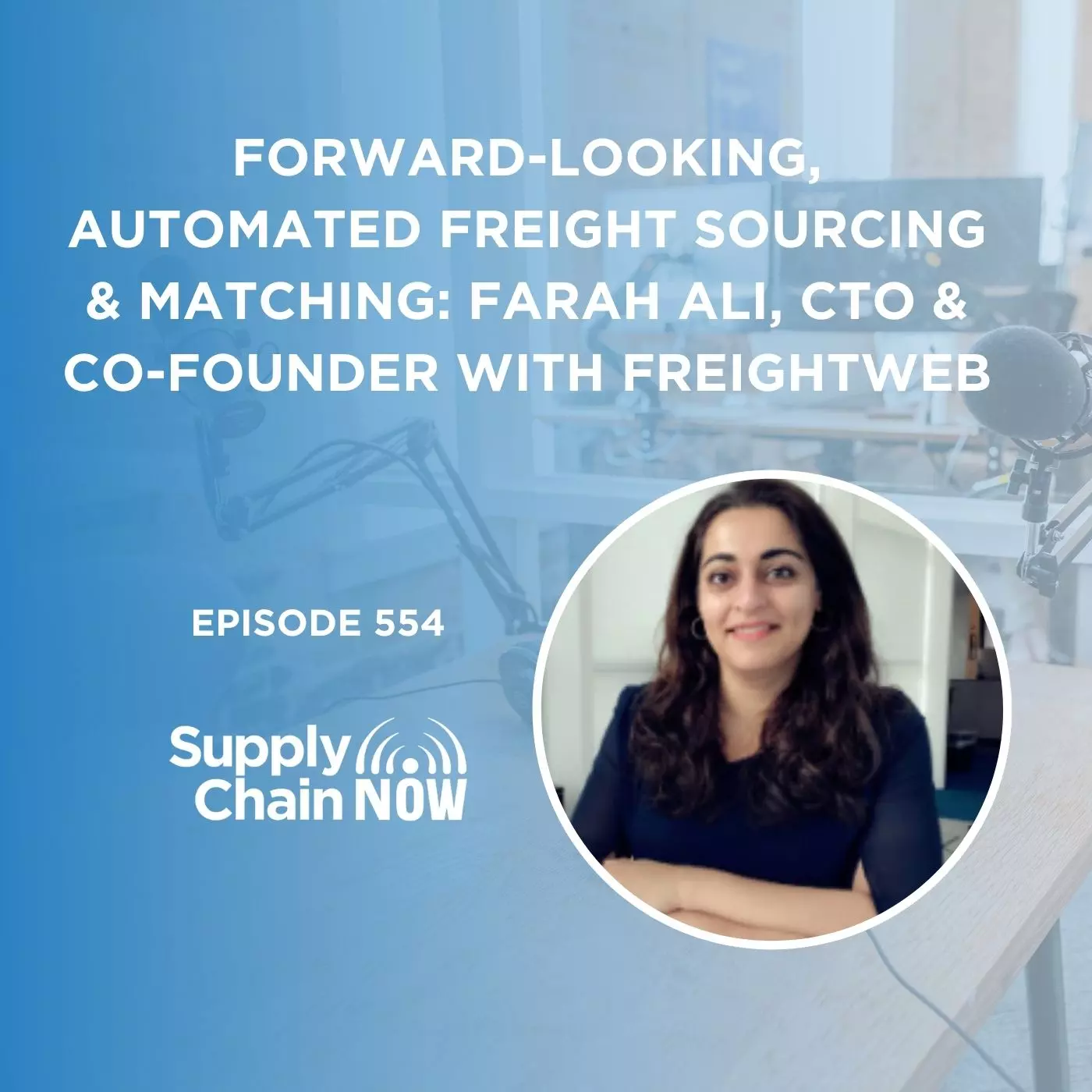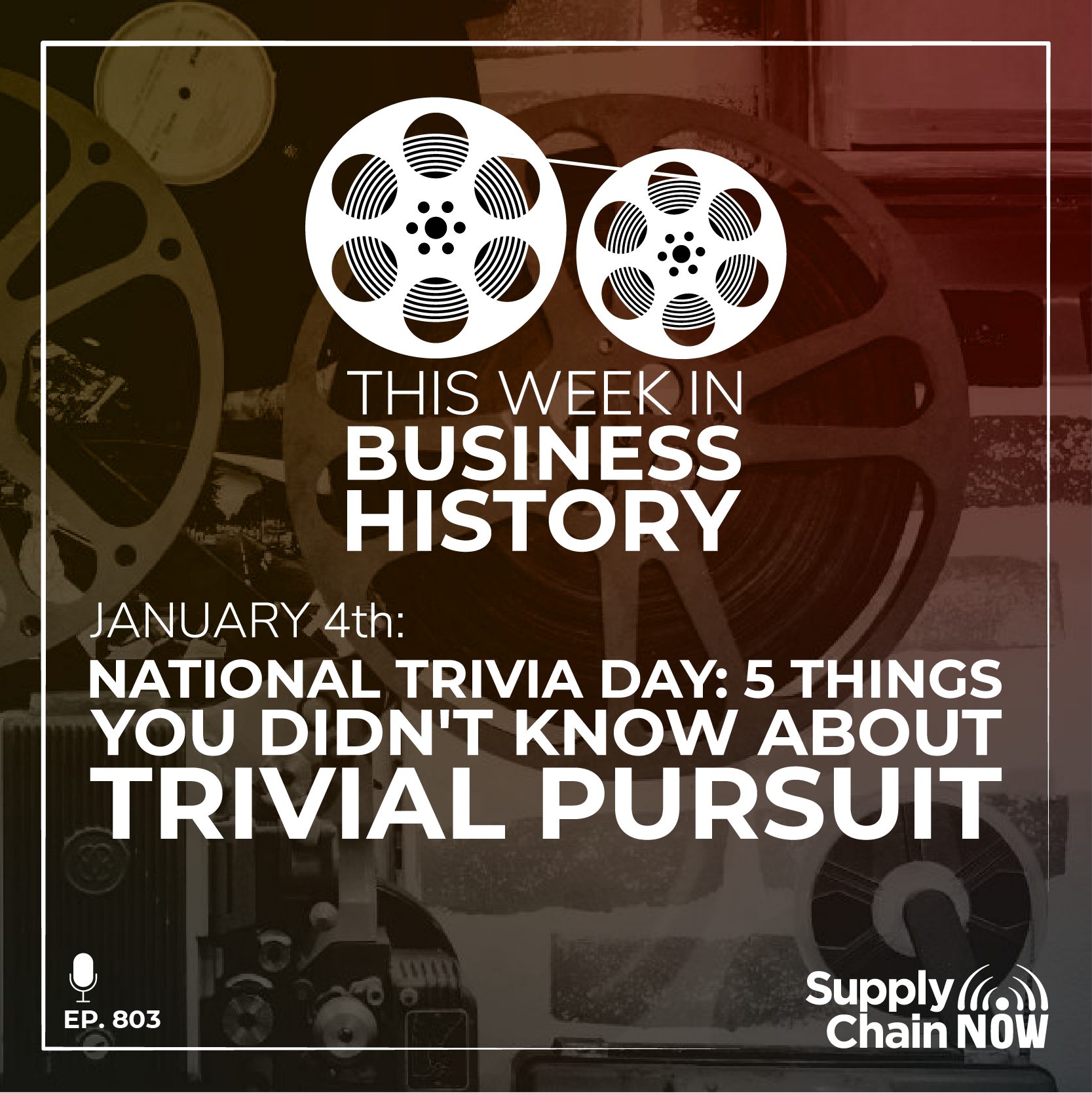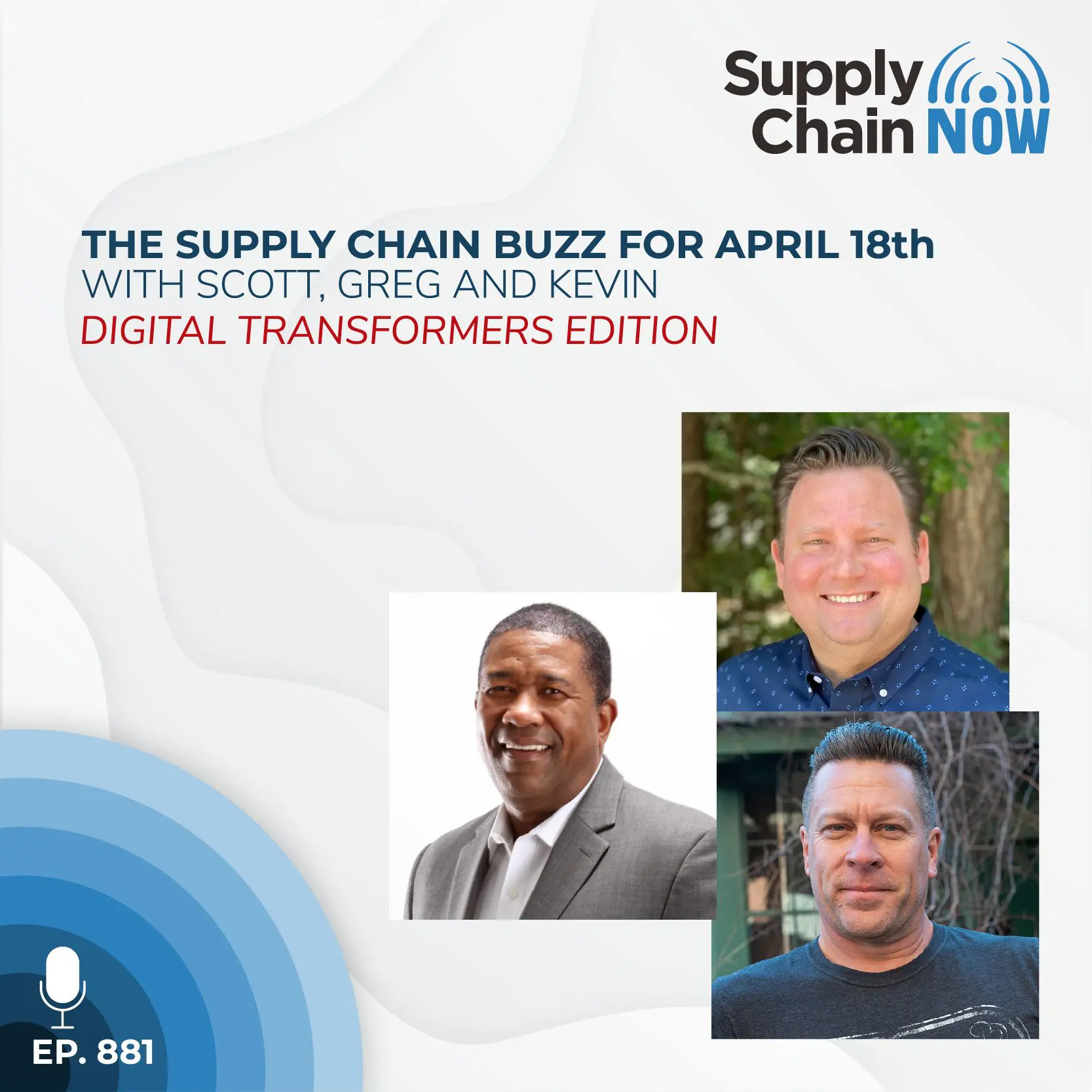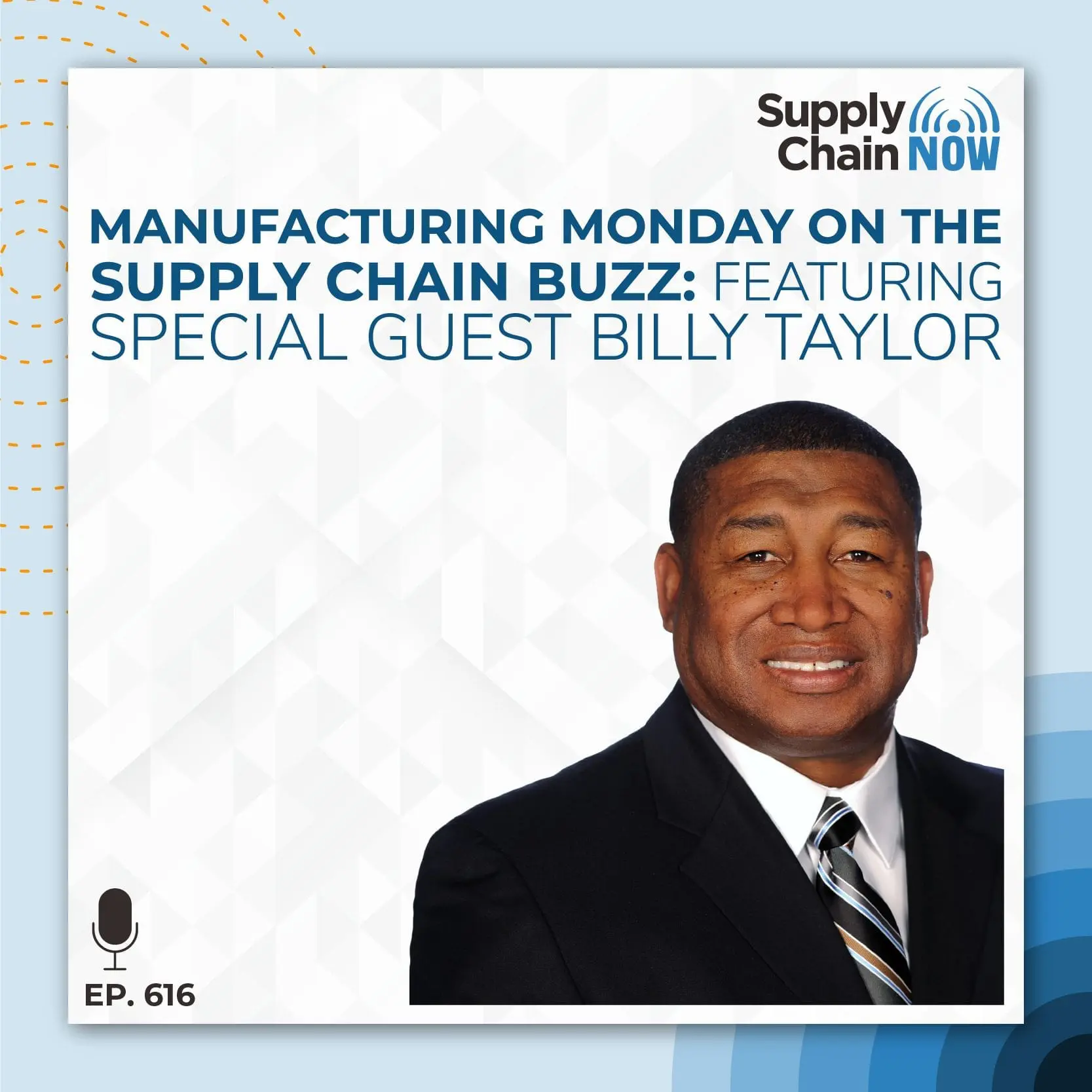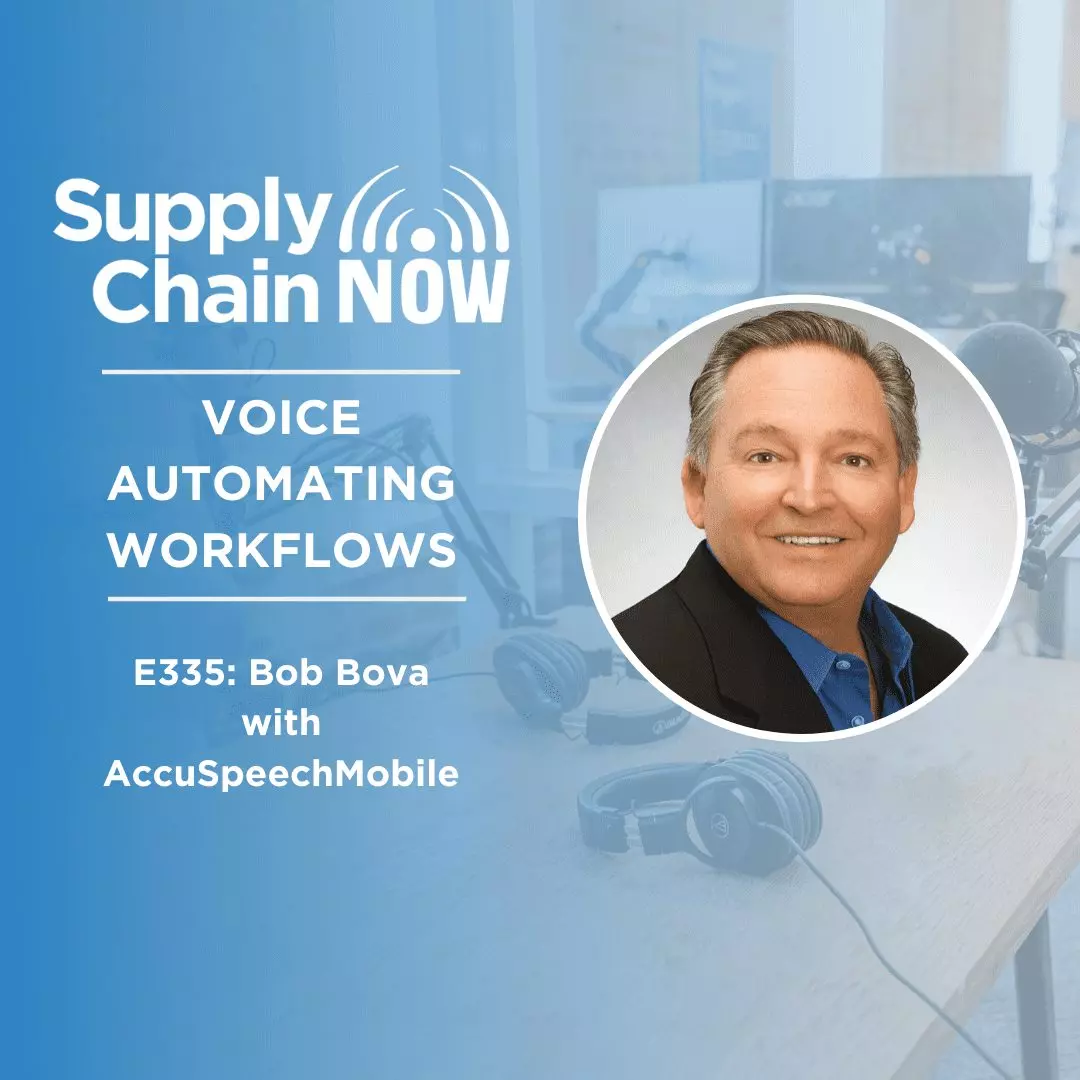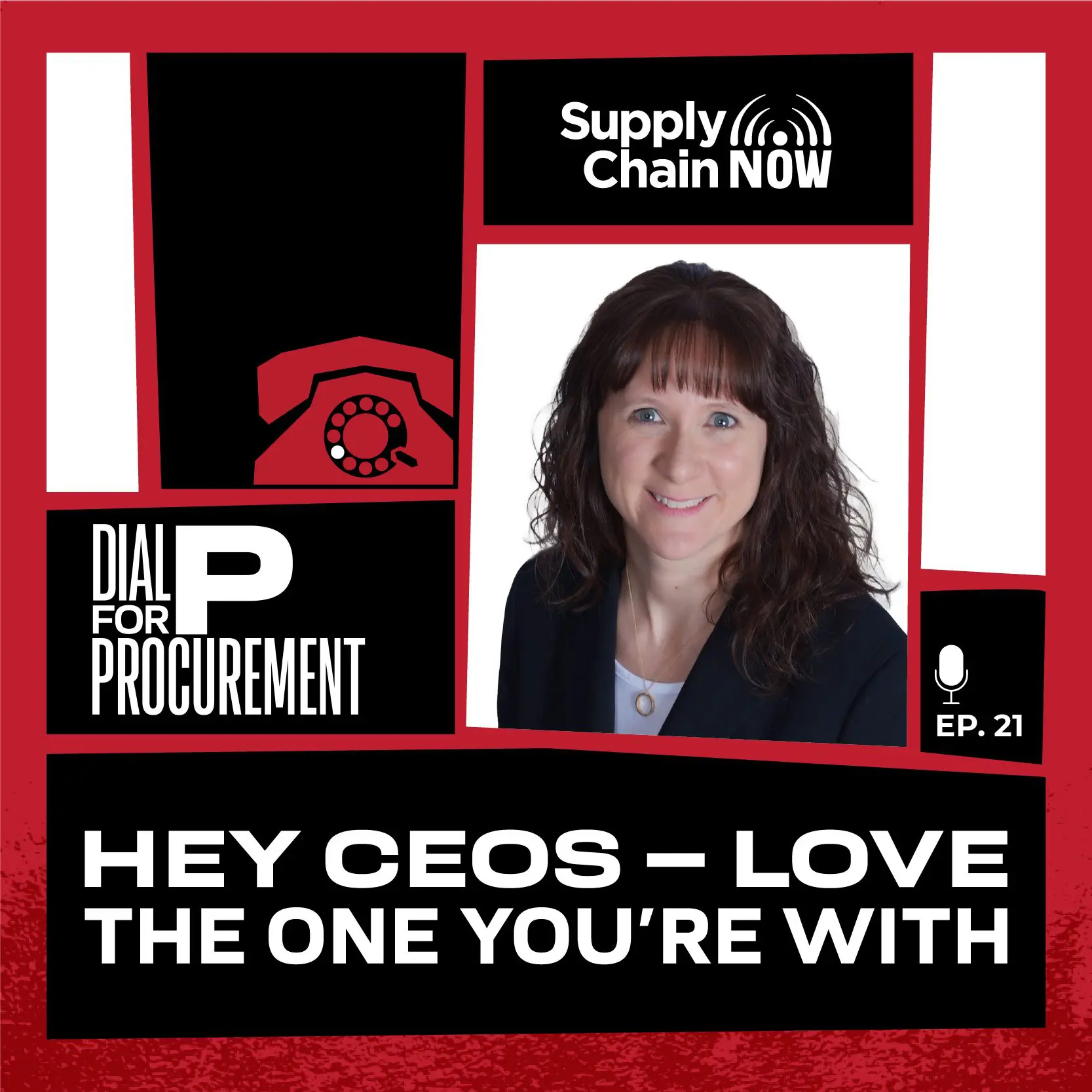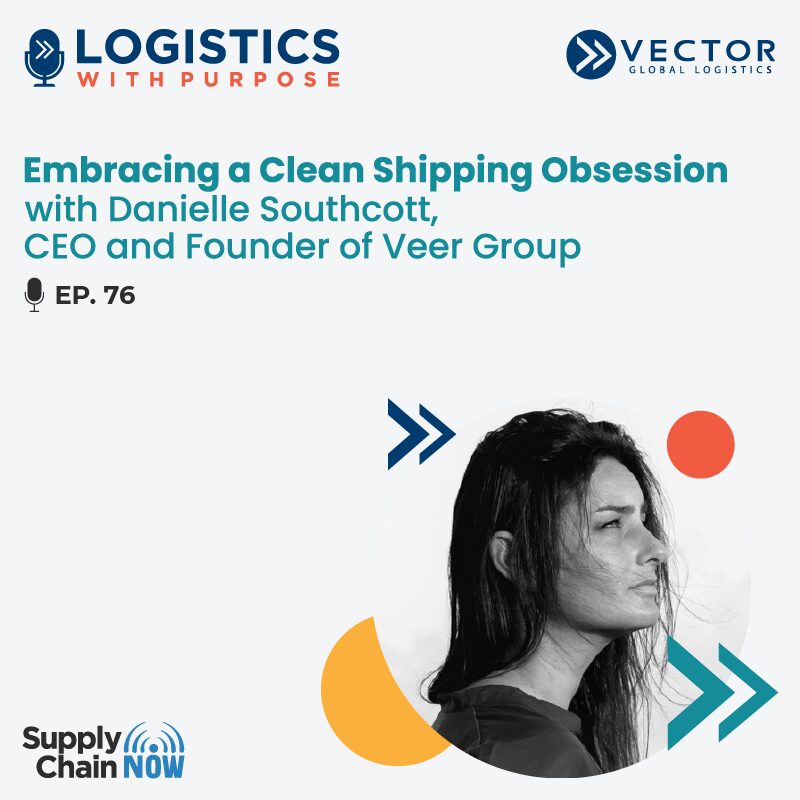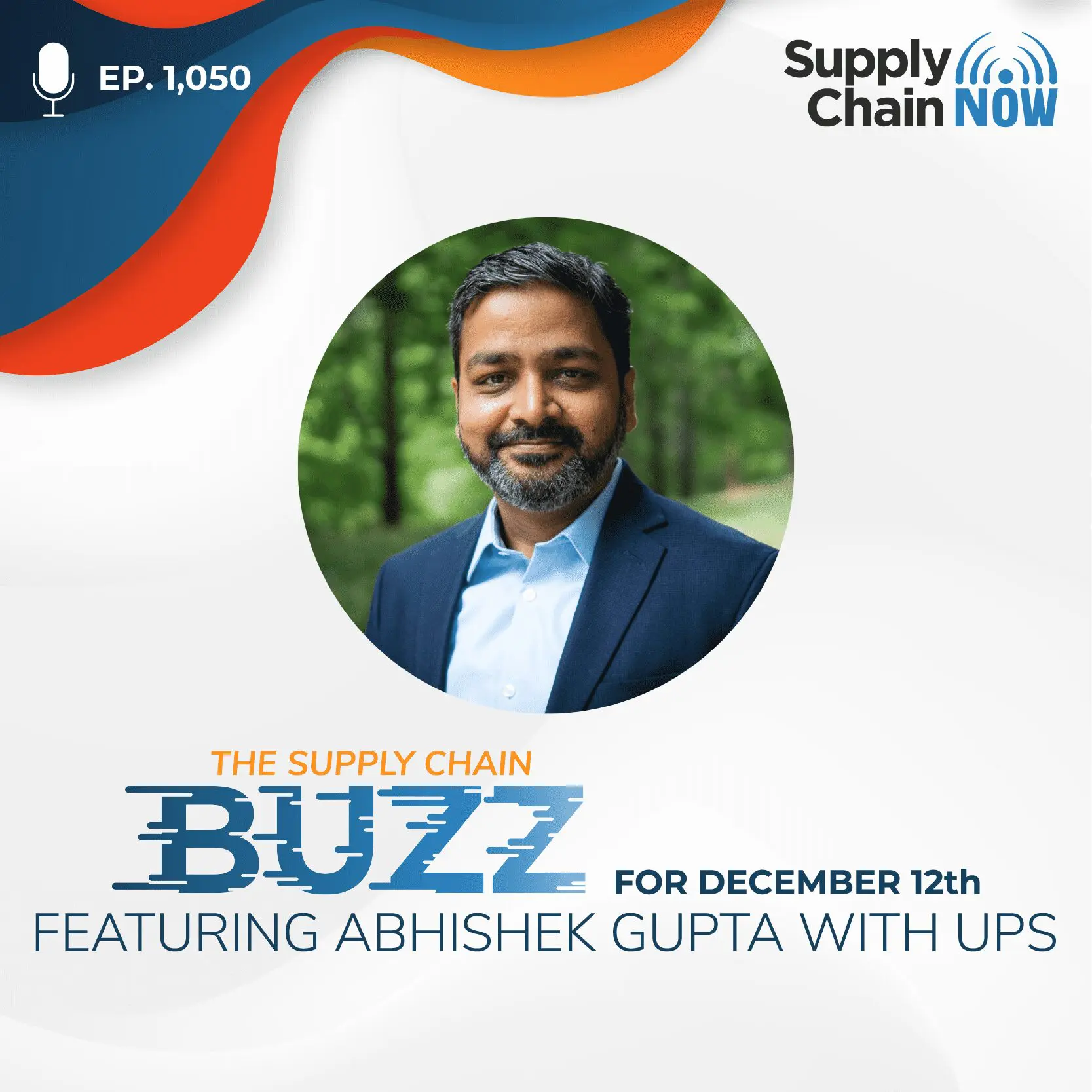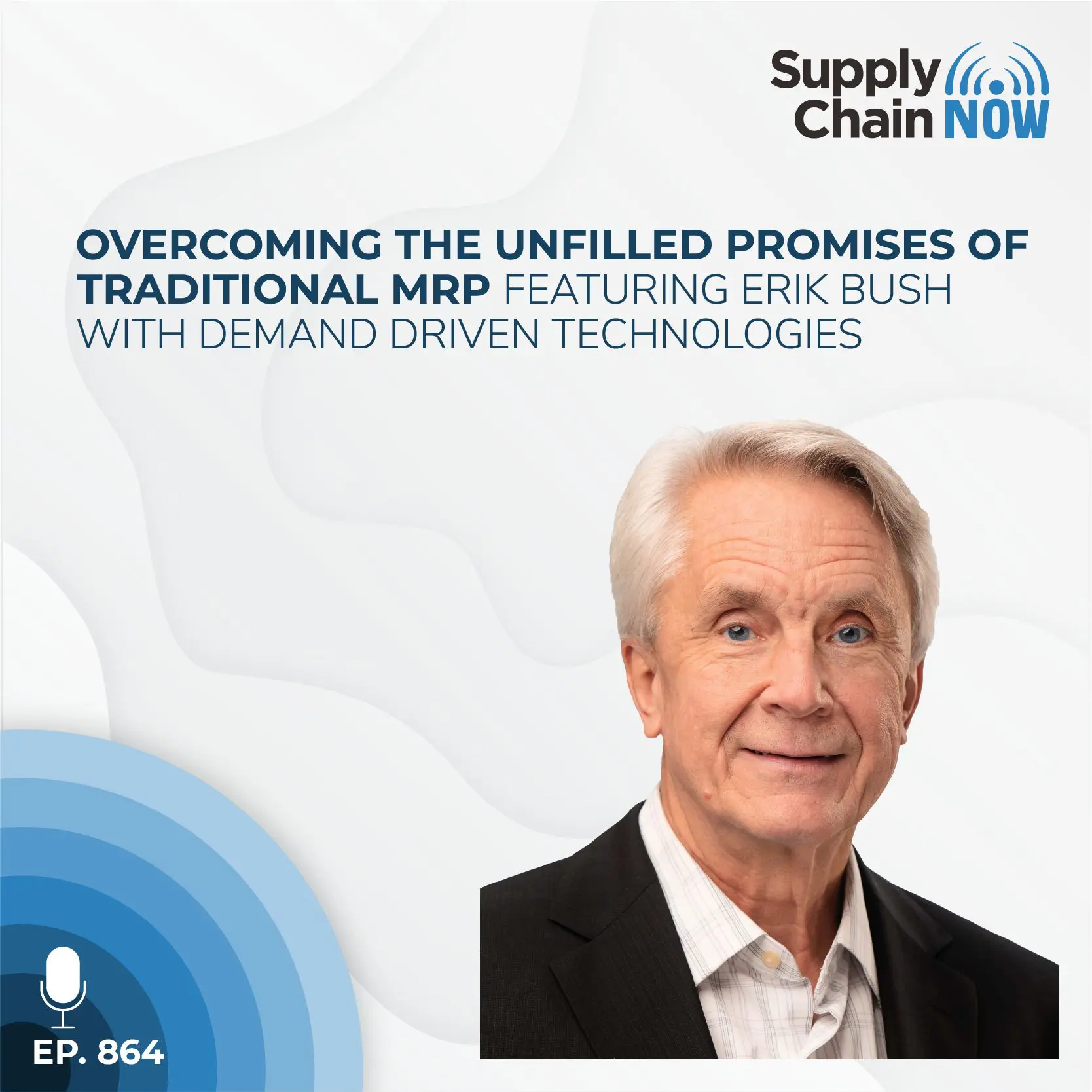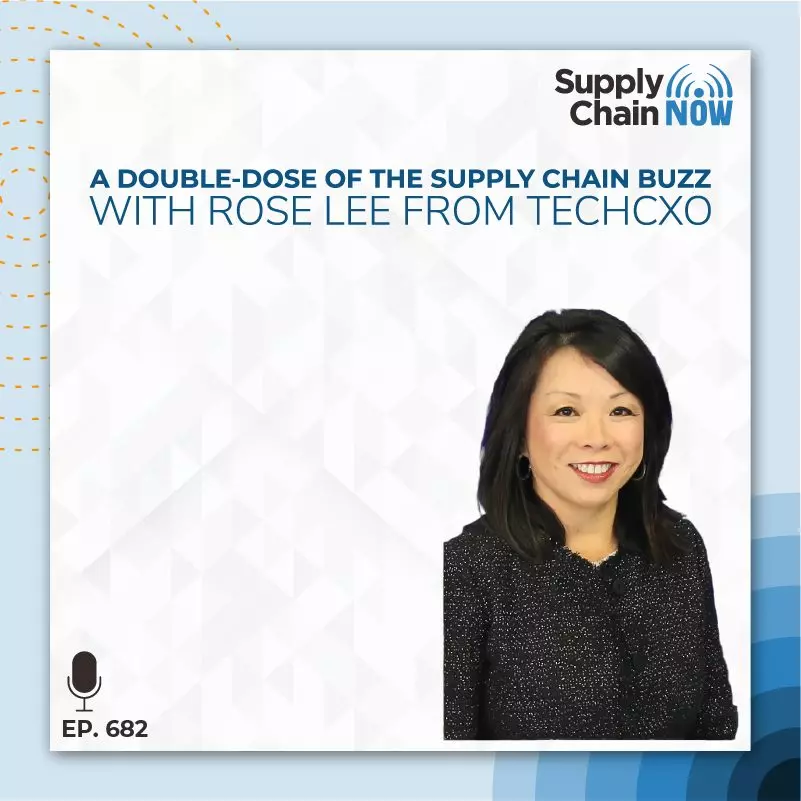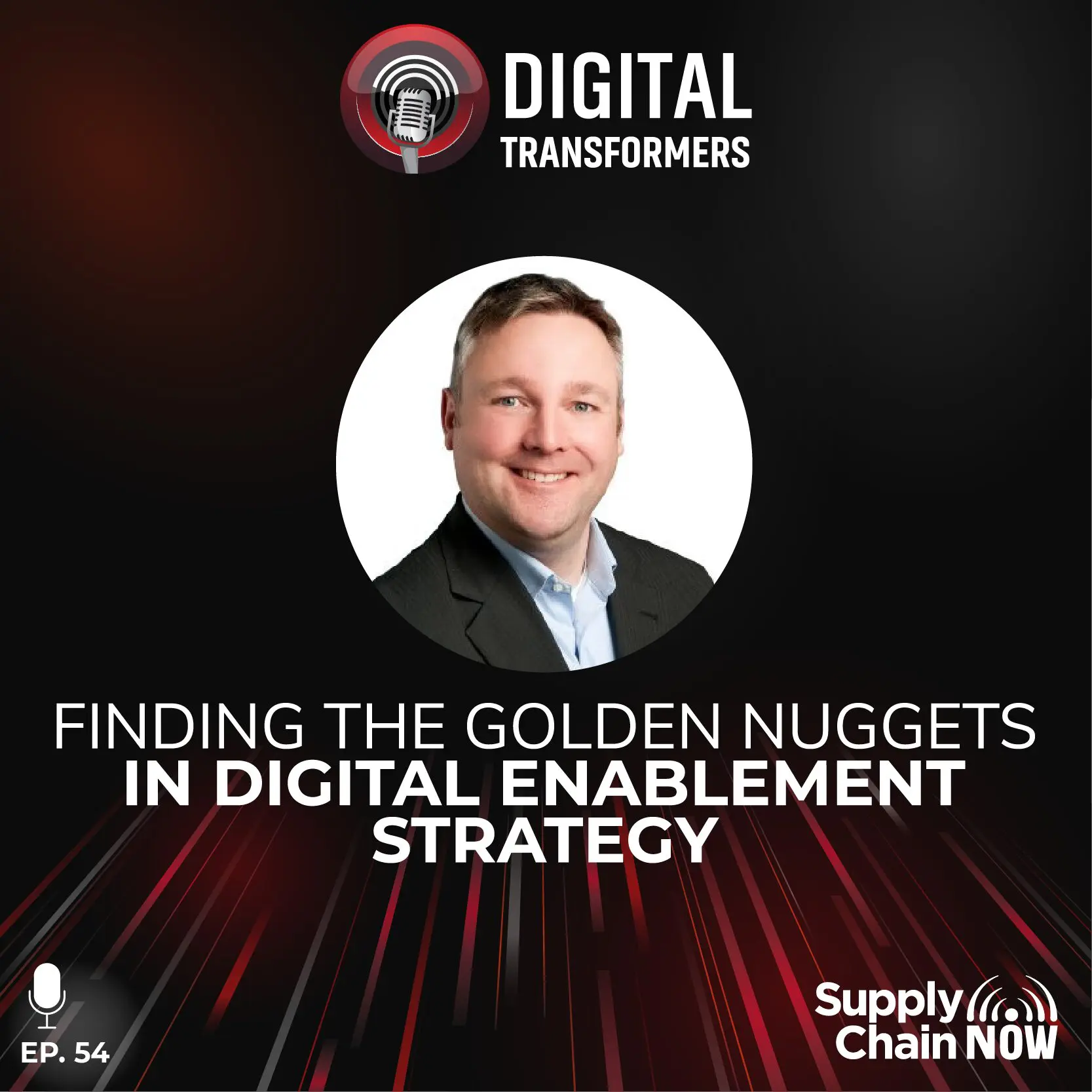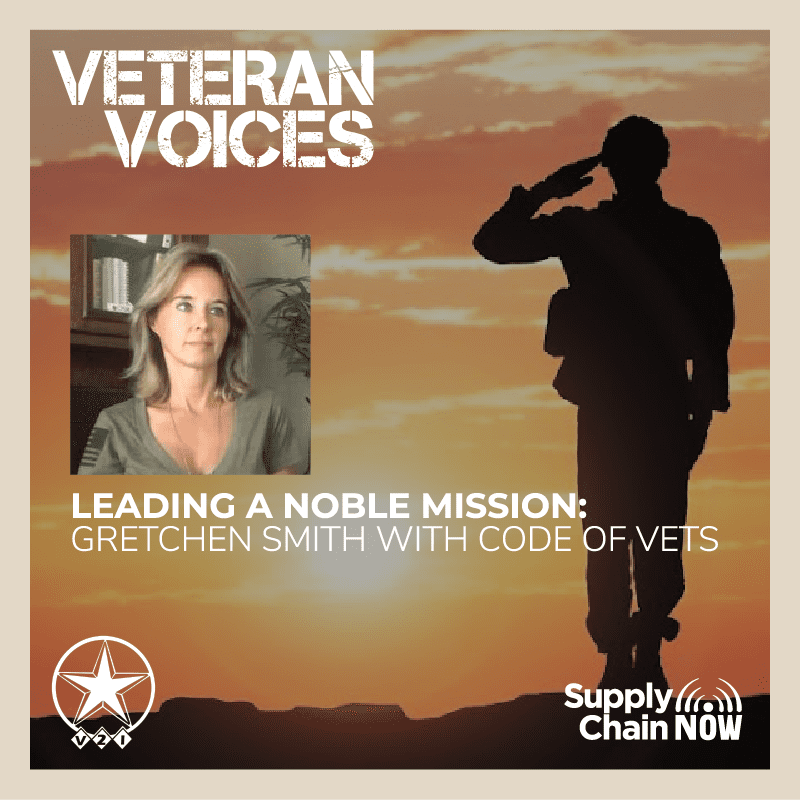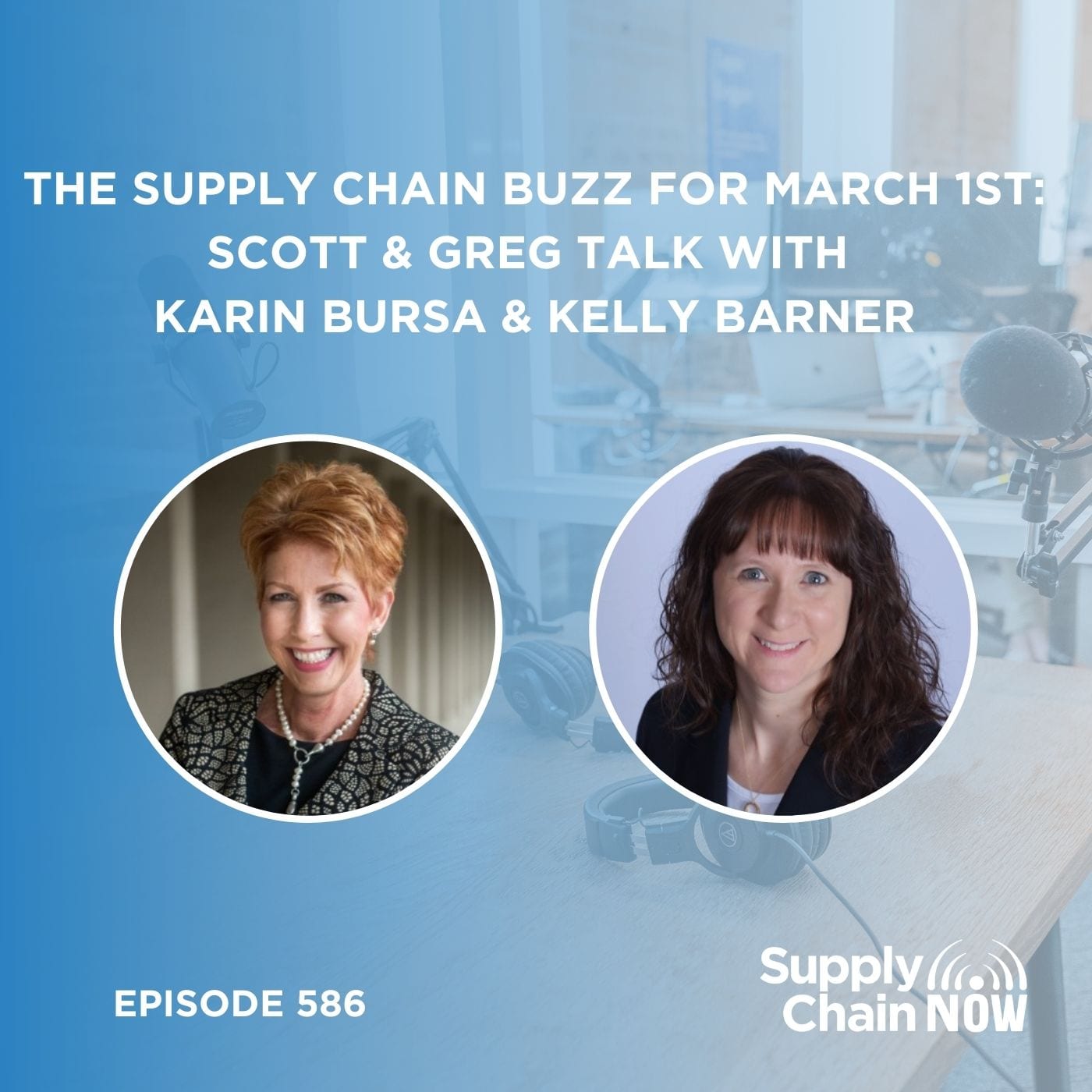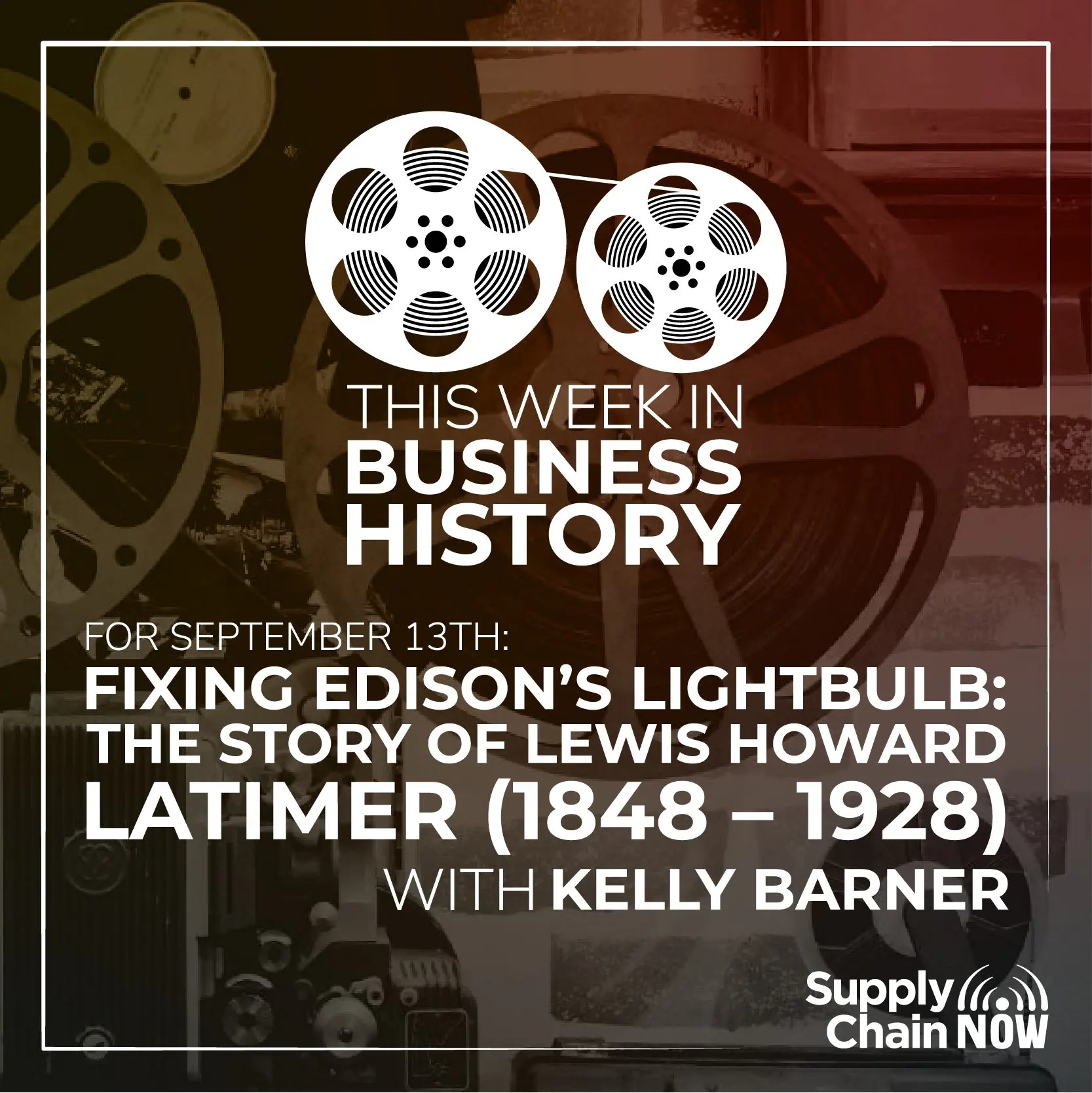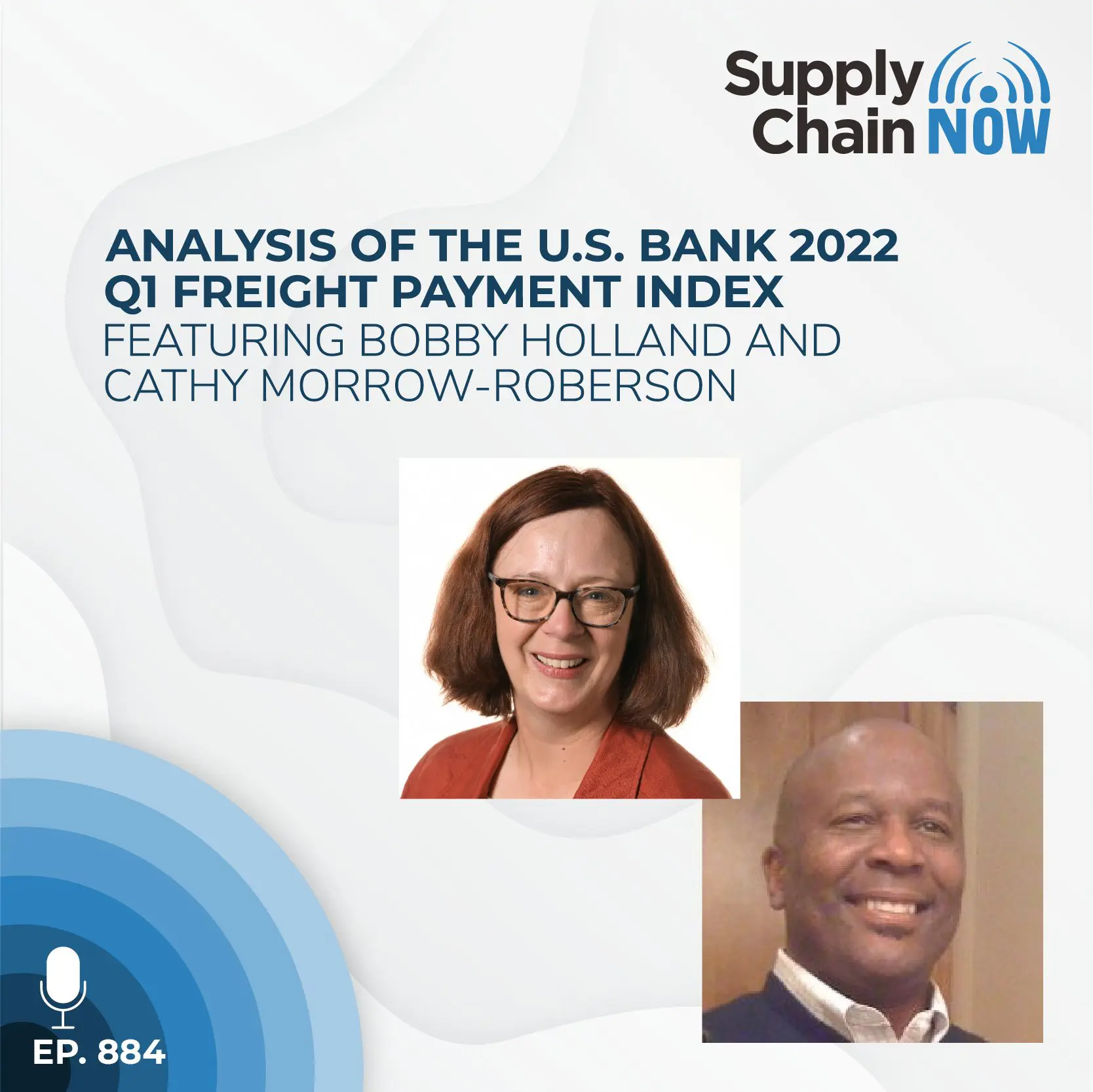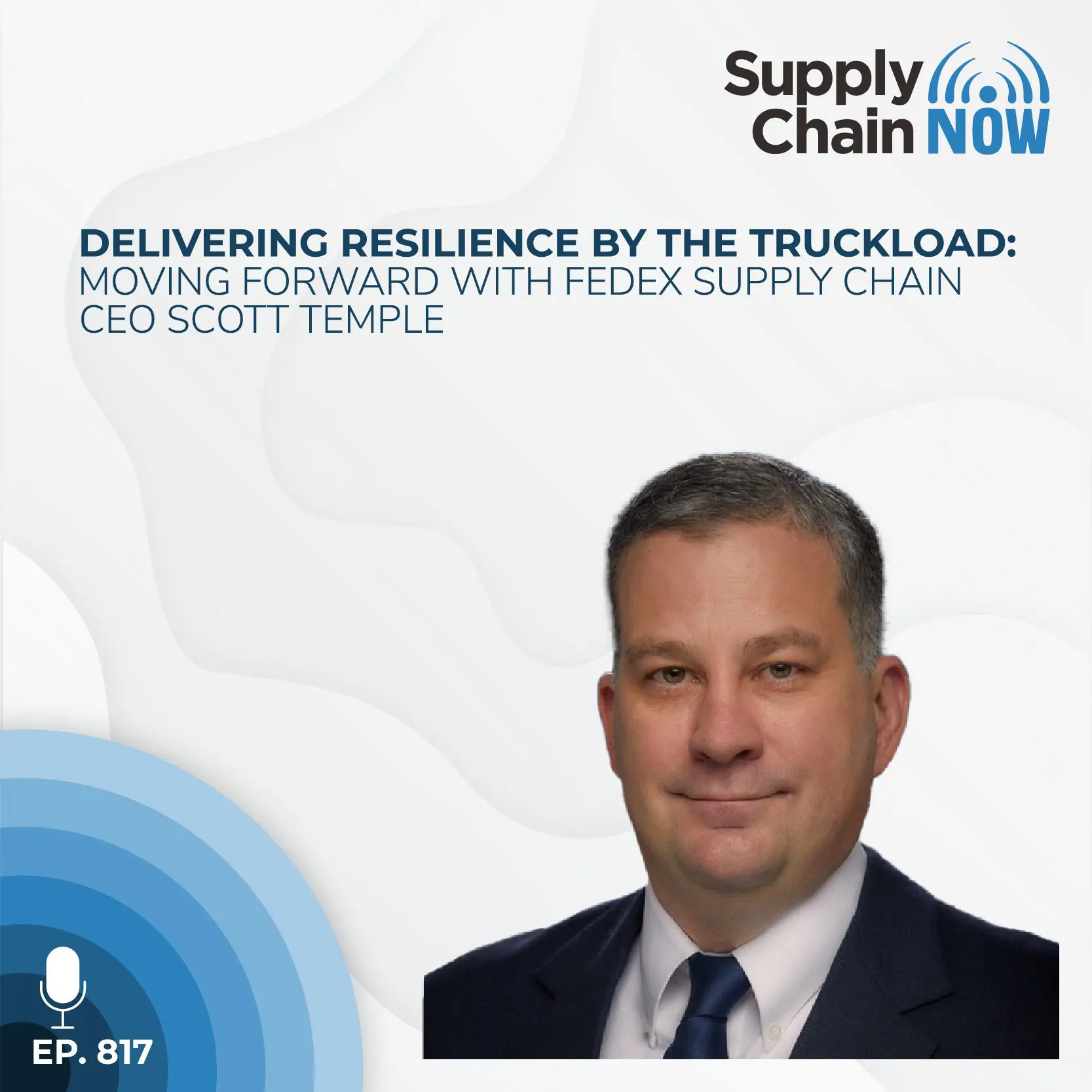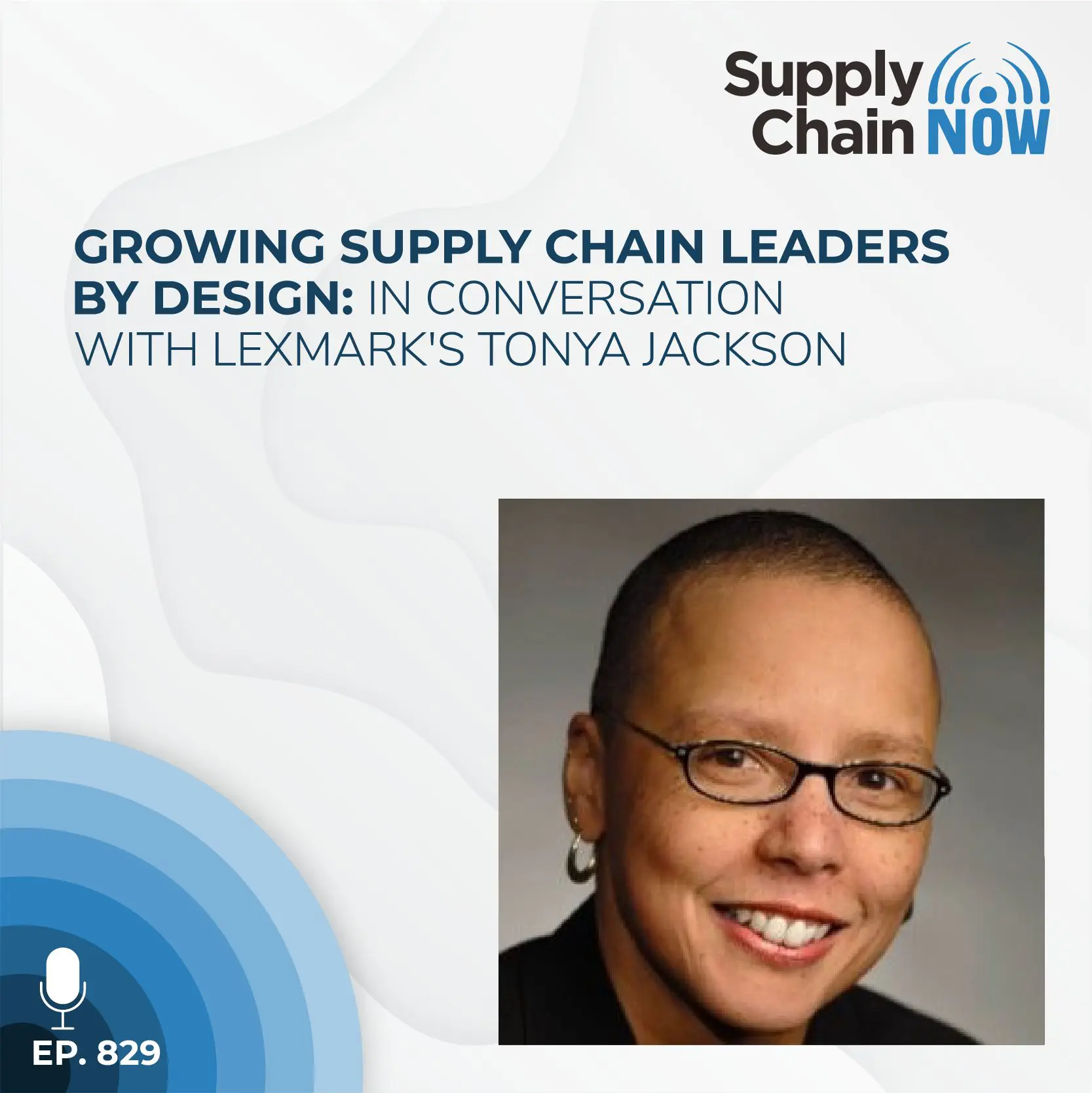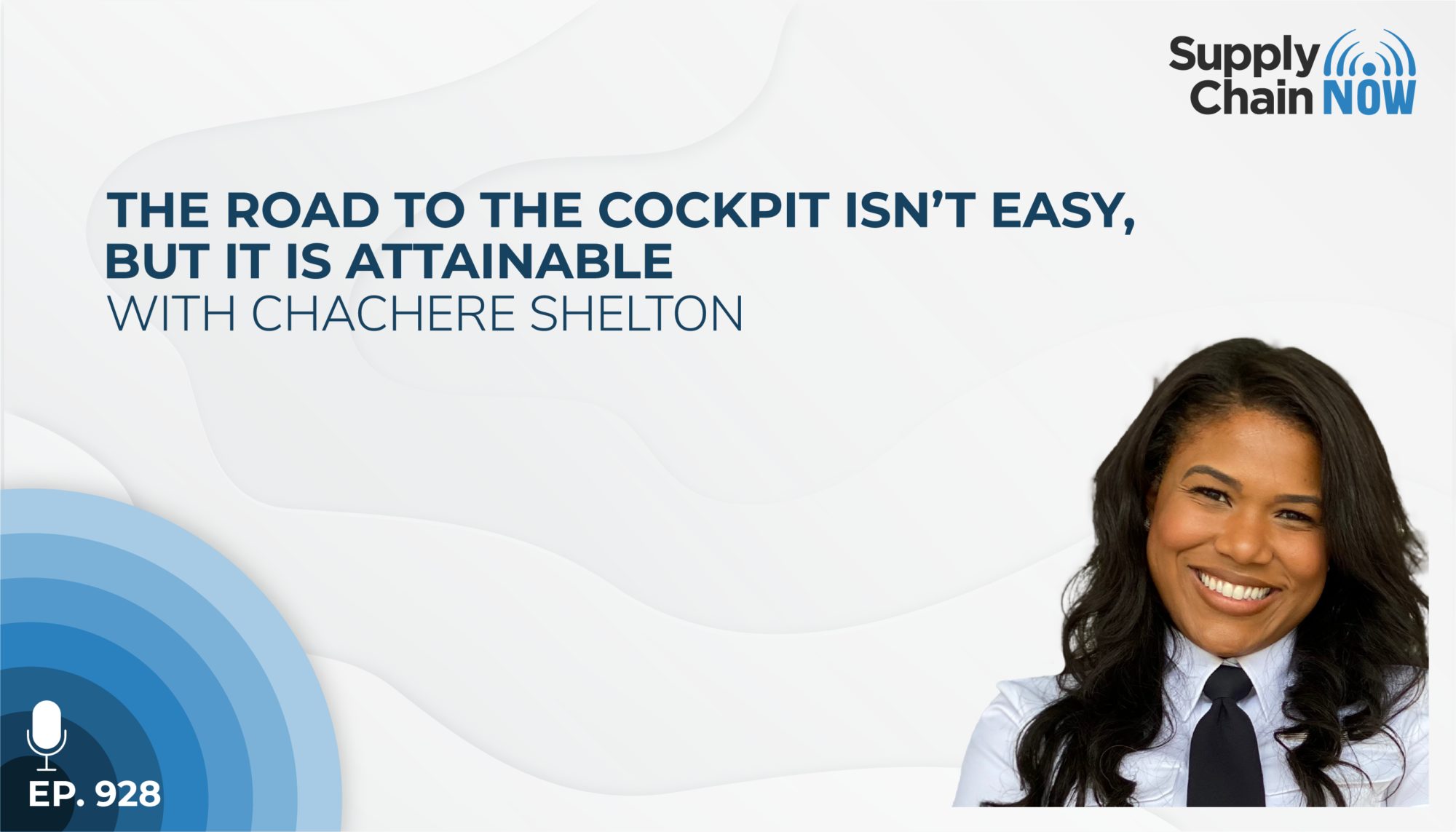
I feel a huge responsibility when I'm walking through the terminal. You wouldn't believe the overwhelming response of people, whether they're black, white, Hispanic. It does not matter what they look like, male or female, I get stopped every single day to take pictures with people.
-Chachere Shelton, captain, CommutAir
Episode Summary
Although the general push to attract girls and women into STEM fields has been underway for years, some industries are further ahead than others when it comes to empowering them to turn their interests into careers.
Chachere Shelton is the only black female captain at CommutAir. She has a passion for flight that has taken her on an interesting professional journey and given her an opportunity to be a mentor to future generations of female aviators.
In this interview with host Scott Luton, Chachere Shelton talks about:
• The variety of camps that are focused on getting various ages of young women into the field of aviation
• What it was like being a pilot during the COVID-19 shutdowns
• The sense of responsibility she feels as a role model, and why she is excited that two other women are about to join her as captains
Episode Transcript
Intro/Outro (00:03):
Welcome to supply chain. Now the voice of global supply chain supply chain now focuses on the best in the business for our worldwide audience, the people, the technologies, the best practices, and today’s critical issues. The challenges and opportunities stay tuned to hear from those making global business happen right here on supply chain now.
Scott Luton (00:32):
Hey, good morning, everybody. Scott Luton with you here on supply chain. Now, welcome to today’s show. We have an outstanding conversation tee up this morning and focused on the aviation industry. Of course, a big part of global supply chain. In fact, many folks may be surprised at just how much air cargo is moved in the belly of passenger planes each and every day. Now, along those lines, we’re gonna be speaking today with a pioneering pilot and aviation leader to learn more about what she sees each and every day, as well as, uh, learn a lot more about her journey into, uh, the trail plays and exploits that she does with, um, commute air. So with no further ado on a welcome in Ary Shelton airline captain with Chachere Shelton, how you doing?
Chachere Shelton (01:17):
I’m doing great. How are you?
Scott Luton (01:19):
It is so cool to finally sit down with you a as you know, I’m a big fan of James and Dr. Kim Moore I’ve, I’ve had your parents. I’ve had the honor of collaborating with them as part of my journey. Brilliant people. Uh, I love your mom’s take on leadership. I think she, she joined us for a webinar way back, uh, way back when, so I’m not surprised that their daughter is, is doing big things in, in the industry.
Chachere Shelton (01:45):
<laugh> yes, I do have wonderful parents. Um, I’m a very blush child. I grew up, I actually grew up with four parents, right. So we don’t, we don’t have step parents in, in our household. So I’m very blessed to have, uh, two moms and two dads and they’re all extraordinary people. So, you know, they expect nothing less of their children.
Scott Luton (02:07):
You’ve been blessed. So you just have, uh, I’ve been blessed. You got four folks holding you to a standard instead of two. I love that. Um,
Chachere Shelton (02:15):
Absolutely.
Scott Luton (02:16):
So let’s talk more about that. Um, SA let’s talk about where you grew up and you gotta give us some anecdotes about your upbringing.
Chachere Shelton (02:24):
So I grew up in Tampa, Florida, and, um, man. So I grew up in a very, um, conservative Christian household. I went to private school, um, all over my life. Wow. And, um, we, I grew up in grace family church here in Tampa bay. My parents all go to the same church. They’re all leaders in the same church <laugh> and so I grew up a church kid, um, just sparked an interest in aviation. And most of my life has just been God fearing sports and airplanes.
Scott Luton (03:01):
Okay. God fearing sports and airplanes let’s. So, uh, before we get into the airplanes park, I wanna, uh, growing up in Tampa, I mean, growing up on the coast, uh, you know, that, that that’s gotta be a really cool thing. Cool place to be as a kid. Uh, tell us what was that like?
Chachere Shelton (03:22):
I loved the water. <laugh>. I mean, let me tell you, I, I grew up on the beach, so anytime I didn’t have a sporting event on the weekend, which was rare. Oh mom, can I go to the beach? Can I go to the beach? Can I go to the beach? So I loved going to the beach and when I was in high school and I was finally able to drive a car, you better believe there were only a few, you know, there were restrictions as to where I could go as a 16 year old. However, the beach was one of those places I wanted to scout. So I love being near the water. I love the food food. Oh my goodness.
Scott Luton (03:56):
Food. Okay. So let’s food. See, that’s one of our favorite topics to talk about, right? <laugh> beyond the beach is the food. So if there was one dish sash, if there was one dish that you, that grew up with you that was inseparable from your upbringing, what would that be?
Chachere Shelton (04:12):
Ooh. Now see, we’re also, I’m from Tampa by way of Louisiana,
Scott Luton (04:17):
So, oh man, love it.
Chachere Shelton (04:19):
<laugh> so Cajun food is near and dear to my heart and my dad don’t let him, don’t be fooled by him. He loves a good pot of gumbo. Um, so I grew up on all things seafood. So being in, being in Tampa, that’s a, a great place to get fresh seafood. Now as a Tampa native, something that you can get here, that’s really good. Is some fresh caught red snapper. Oh yeah. Oh my goodness. So delicious as far as Tampa, but as far as, you know, just culturally being, you know, from Louisiana as well, I will eat a whole, you boil a pot of crawfish and I will dump it on the table with some potatoes and corn and have that.
Scott Luton (05:03):
Love it. I love it. Okay. You’re making me really hungry, man. Uh, gosh, to, to, to be able to grow up, not only in Tampa, but also to take advantage of your Louisiana roots, uh, from a food standpoint, that’s gotta be kind of getting your cake and eat it too. Um, alright. So one last question, and then I wanna move into kind of your professional journey. You doing big things there, you mentioned sports, you played a lot of sports as a kid. What was, what was your favorite sport and, and what position did you play?
Chachere Shelton (05:31):
Okay, so that’s kind of a trick question. <laugh> okay. Cause depends on my God. So my actual favorite sport was soccer. Love, love, love soccer, but I was just naturally better at basketball. So I did both. So it’s a small for, and a shooting guard in basketball and I was left Def I left defender in soccer. Okay. And in Florida, unfortunately they’re the same season. So I would, basketball was the primary. And as long as I played four district games during the season for soccer, I still got to be considered a, a player. So <laugh>, I SW my time between those two
Scott Luton (06:05):
Man. Um, so you stayed really, really busy. It sounds like as a youth, um, one, one additional question, cause team sports, you know, every time I sit down with someone that grew up, uh, playing organized sports, they talk about, um, how it impacted their view, uh, their teamwork abilities, their leadership, how they collaborate with others. Did you experience the same thing? Did those experiences playing, you know, team sports impact your professional journey?
Chachere Shelton (06:31):
Absolutely. Absolutely. So being an aviator, it’s all about teamwork. I mean, and there’s a lot of leadership involved and now that I’m, um, a new, newly upgraded captain, a lot of the skills that I learned and developed in my younger years and early developmental years have definitely carried over into the cockpit. Absolutely. Mm
Scott Luton (06:54):
Mm. So airline captain, man. I am so jealous. Uh, as I share with you preach show, I wanted to fly, um, as a kid and wanted to go to the Naval academy right after I saw top gun, uh, as probably the rest of, uh, the world. Right. Um, but let’s talk about your, um, as a kid, you’ve kind of shared some things you were involved with. When did you first, uh, identify how what’s the earliest moment, you know, telling yourself, gosh, I wanna fly jet when I get older.
Chachere Shelton (07:27):
Oh man. So it’s funny. You said, if you asked me this question, I was just talking about this a couple of weeks ago, and this is kind of a combo of a few things that I think you’re going to ask me. So I was 13 years old connecting, making a connecting flight to get to Lafayette, Louisiana to go visit my grandmother. Okay. And so my mom and I were in the airport and I think I was in trouble for something, you know, you know, 13 year old girl, probably being flippant, who knows, you know, kind of one of those things. And my mom and all I cared about was sports, sports, sports. I don’t wanna do anything else. I don’t care about school sports, sports, sports. So my mom says, well, you need to really start thinking about what you wanna be when you grow up, you really need to start diversifying yourself.
Chachere Shelton (08:13):
You can’t just be all basketball and soccer. And I’m like, oh, of course. Well, literally as we’re having that conversation, the first female pilot I’d ever seen is walking by and she meets up with another female pilot. And my jaw is literally like, and I’m like, is that a pilot? And I asked mom, yes, she’s a pilot. And that pilot, her name is Stephanie Grant. She’s a black female pilot. She was on the, the, all the first, all black female flight crew. Wow. So I saw her talking and I was just like, well, I think I wanna be a pilot kind of being a little, but kind of being cute, you know, 13 year old girl being cute. And my mom said, okay, you wanna be a pilot? That’s a good career. So we get on the plane, guess who? My pilot is,
Scott Luton (09:07):
Stephanie Grant,
Chachere Shelton (09:08):
Stephanie Grant,
Scott Luton (09:10):
Man.
Chachere Shelton (09:10):
So I peek my head in the cockpit and she was the first officer at the time. And I said, oh, look at all the pretty buttons and knobs. I can touch all this. This is so cool. And I just thought it was so cool. And she was so nice and sweet. And um, her captain was really cool. He was a really nice guy and oh yeah. Tell him my mom, get her involved in camps. You know, there’s all this stuff going on, all these camps. And Stephanie’s telling my mom about camps. So we get on the plane and we lay in Lafayette and that’s it. So now it’s the following year and summer rolls by. So my mom signs me up for, uh, like a, a leadership, a elite America camp that I went to. So I went to lead America camp and it was a week long and it was in Oklahoma city and they exposed you to all things, aviation. Right? All things, aviation, all things flying. And I was like, oh man, this is really cool. So then the next year I said, mom, can I go to another camp again? Because I really liked that camp. So I, she said, yeah, let me look into it. Well, my mom’s signing me up for this camp called, um, ACE academy.
Scott Luton (10:12):
Okay. So lead America and then ACE academy
Chachere Shelton (10:15):
And then ACE academy. So at ACE academy, though, it was, you can unique about ACE academy is that I would actually get to fly an airplane. Right. So that was, you know, when you’re 15 years old, that seems, that’s like what? I get to fly an airplane. So you apply, you apply. And they do, um, there’s a whole application process and you have to put together a resume and, you know, 14 years, 14, 15 at the time, actually 15 years old trying to put together a resume was a big thing and filling out an application. And I was selected as one of the kids to go to this camp. Yeah. And it was in Atlanta and it was a week long and there were hundreds of kids and it was held by Delta airlines and organization of black aerospace professionals. So they partnered together and put on this camp and they sponsored it, all these kids to go. And I went and guess who I see first day of
Scott Luton (11:06):
Camp, Stephanie Grant,
Chachere Shelton (11:08):
Stephanie Grant.
Scott Luton (11:10):
<laugh> well, so can I, for a second there, if I can interject for a second, you know, going all the way back to you and your mom in that airport when you were 13 years old and you first saw, uh, Stephanie Grant, even before you met her, you know, we talked, pre-show the, you know, if we’ve heard anything through, um, almost a thousand interviews here on the main channel and, and lots of, uh, hundreds of others in our other, um, um, channels, a constant theme of see it to be it, right. See it to be it. And gosh, if you’re, if that, if your story there that’s led you clearly just seeing and connecting with, you know, that, that what became a role model in the aviation industry and look at the impact. Look, we’re gonna touch on this in a second, but you are the only black female captain at commute air you’re being you’re you’re that see it to Beit figure for so many others. Um, so do you ever look back and on that moment as a 13 year old and just, um, accept the impact that it had on your trajectory in life?
Chachere Shelton (12:14):
Absolutely. Absolutely. And it really, it really struck home. Um, a month ago I was doing, um, a camp, a kid’s camp, um, with, um, sisters of the skies in Houston. And, um, Stephanie is on the board of sisters of disguise and I’ve seen her around, you know, kept in touch. I mean, she’s, she’s an outstanding individual. And, um, I had, I was a team lead of a group of 13 year old girls, 12 and 13 year old girls, and they’re running all around and they’re excited just like I was, and they’re at their first flight camp where they get to get and fly in airplanes and kind of the same thing that I did. But except for this camp, what sisters of the skies was for one day and they’re asking me, oh, S how did you get to flying? And so Stephanie was like, yeah, how’d you get into flying.
Chachere Shelton (13:00):
And Stephanie was standing right there. And I shared that story and she started to tear up and then, well, she cried. So it made me cry and I’m crying. So now the girls are crying. And so now we just have all these female aviators in the room crying, and she’s just like, she knew a little bit because she kind of remembered me and she kind of remembered me from camp. And she saw me passing through the terminal a couple times, said, always spoke, said, hello, how you doing? But she never really realized how much of an impact she had on my journey. And then in that moment to stand there with these young girls who I am now doing the same thing with these young girls that Stephanie did for me, that that moment hit. And it just was like, wow, like you see it to believe it. I mean, that, that is every, that is entirely see it to believe it right there. I mean, and it really did. It definitely hit home. It did,
Scott Luton (13:50):
I, I appreciate, I really appreciate you sharing that. Uh, what a special moment. And, and gosh, if I’m Stephanie Grant, uh, to know that that not just you, I’m sure there’s lots of others that she inspired to do different things in the aviation industry and beyond. So, um, let’s talk for a minute. So you, you mentioned some of those camps, so for any of our listeners that wanna maybe get into the aviation industry, or maybe parents that might be listening and they’re looking to kind of fuel their kids passions, it sounds like lead America, ACE academy. What else, what other resources would you put out there?
Chachere Shelton (14:22):
Oh man. So now with the way that the industry is moving, I mean, there are camps popping up left and right. I mean, United airlines for one is they’re, they’ve decided a program called aviate. So I would tell parents to look into aviate for their kids, even adults. I mean, no matter what level you’re at in life, whether you’re a teenager getting ready to, you know, at the end of high school career, getting ready to go to college or you’re in college, or you’re a professional, doesn’t matter how old you are looking to look into that program. I mean, United’s doing they’re, they’re moving and shaking when it comes to trying to get more aviators in the industry. So is Delta airlines, um, Delta airlines. I mean, that’s how I got started flying was with Delta airlines and organizational black aerospace professionals partnering up and creating camps like this sisters of the skies.
Chachere Shelton (15:12):
They have camps. They do. I think they do two, maybe two a year. I know they do one in the spring and the summer I think, um, called grow. But that’s for girls. That’s for young ladies. Um, okay. Since it’s sisters of the sky, they, they, they focus on young ladies. Um, that’s kind of their goal, um, organization of black aerospace professionals. They typically gear towards people of color. However, you do not have to be a person of color. If you apply, they will accept. They will look through your application just like they would, anyone else, um, lead America. I’m not, I haven’t been in touch with them in years, but I would look into that. A lot of, there are a lot of local airports that have programs. So I mean, a lot of people think that aviation is just so unattainable, right. They just, they just see it. It’s expensive. It’s time consuming. It’s hard. I don’t have the resources. When in all actuality it is out there, right. You just really, I mean, really just type in a Google search, local flight school. Mm-hmm <affirmative> aviation camps. The big cities always have them. Like Houston has tons of camps. Atlanta has tons of camps. You’ll find camps in Chicago, DC, places like that. And, and they’re free. That’s what people don’t understand. Wow. Is that all these camps that I went to as a kid were all free,
Scott Luton (16:27):
Man. Well, and there’s, there’s a ton, a big need for pilots, which I’m assuming is part of the reason why there’s, there’s a plethora of all these resources to get folks involved and get ’em trained up and, and on their way. So, um, I appreciate you sharing all those resources. Um, you mentioned a second ago, uh, about where you got your start official start. So after you got trained up after you maybe earned your wings, if that’s not too cliche, what was your first paid role? Your, your first job in the aviation industry as you broke in?
Chachere Shelton (17:00):
So my first job in aviation industry was actually working at a local FBO. So I graduated from college with my commercial multier certificate, but I still had to build enough time to be able to fly for anyone. So most would you say
Scott Luton (17:17):
FBO
Chachere Shelton (17:17):
F FBO. That’s a fixed based operator. Okay. So, um, anytime you go into like Tampa international or Atlanta on the other side, there’s something called a fixed based operator, an FBO where all the private jets fly into and all the smaller airplanes. Yeah. On the other side of the field, and I worked at one here in Tampa at Tampa executive airport called Skyport aviation. And while I was working there, I was, part-time working at a flight school and all the, um, money that I earned at the flight school went towards my flight account so that I could fly. So, um, and I was working on getting my certified flight instructor certificate so that once I could get that, I could start earning money and building time at the same time. But while I was in the process of working on my flight instructor certificate, a friend of mine flew in and landed at that FBO and saw me working at the front counter and said, what are you doing behind the counter?
Chachere Shelton (18:13):
You’re supposed to be flying like me. And I said, oh, I’m working on my CFI. You know? And, oh, well, apply, apply here at this guy takes low time pilots. We fly assess the 1 72 S and Piper AZ text. And we do survey. We’ll do aerial survey. How many hour? Oh, I only have 300 hours. Perfect submit. So I applied, I get a phone call and he says, Hey, how soon can you start? Wow. And I was like, well, I have to give a two weeks notice. And he was like, okay, so you couldn’t be here tomorrow. And I was like, I would love to be here tomorrow, but I’m actually the customer service manager. So I would have to train someone. He said, well, I tell you what, I’ll give you a month. And you’ll just come in at the new season. New season starts October, 2017. I said, perfect. So I had one month to get all my affairs in order <laugh> and because this job you’re full time on the road, it’s like being a truck driver, you get a duffle bag in a book bag and you don’t come home for a year. Wow. It’s like deployment. It’s like deployment <laugh>. So that was my first,
Scott Luton (19:19):
The end of that year, though, uh, Sasha, at the end of that year, you you’ve got your, your CFI. I think you called it right. Is that,
Chachere Shelton (19:27):
So I did, I stopped getting my CFI, my certified flight structure certificate because I, because people get that to build time. Right.
Scott Luton (19:34):
Ah, gotcha. And you are getting all your time with this new role for over the course of a year flying the Cessnas and the pipes with this new opportunity, right?
Chachere Shelton (19:44):
Absolutely. So I ended up, I said, well, man, this is something I can’t pass up. So I stopped doing my flight, stopped working on that, which is no big deal. Right. I mean, it was just a, a kind of a means to build flight hours. Right. Instead of paying for it out of pocket, because it’s, it’s very expensive. Right. So I got that job being an aerial survey pilot, and that’s exactly what I did. I packed my duffel bag and my book bag. And I went to him in Louisiana and I did flight training for a couple of weeks. Right. And then they assigned me an airplane, a little SESA 1 72. And they launched me and I stayed on the road for actually, I stayed on the road for 13 months and I got to come home one time because I had a project nearby. So that’s what I did. And that was my first paid job as a pilot. And it was about the coolest thing I think I’ve ever done. <laugh>
Scott Luton (20:41):
So, um, I said, and I’m I’m I just pulled up a CNA 1 72. Now I think my uncle I’ve only been up in a private plane once in my entire life it’s back when he would fly. And he had one, a similar aircraft in a, uh, based in Augusta, Georgia. And he took me at one weekend, but it was so hot. We had to, we had to make it a short trip. Um, but what a, what a great, um, uh, meet almost like a chance meeting, you know, your buddy comes in, sees what you’re doing, Hey, check out this, this new role. And then in a month you have this opportunity to earn all the hours you need and fly for a living, not, not take anything away from, uh, customer service, uh, roles, because those are really important. But man, if you wanna fly, I would assume you like being in the cockpit flying. Right. Um, absolutely. So let’s talk now, um, about, when did you join commute air?
Chachere Shelton (21:38):
I joined commute air in April of 2019.
Scott Luton (21:40):
Okay. And how did that, um, how did they hit your radar and how’d you say, Hey, this is what I wanna do.
Chachere Shelton (21:47):
So, uh, it’s kind of a funny story. I have a lot of, <laugh> a lot of full circle moments in my life. So that same friend who landed at the airport and said, oh, no, apply. He called me up and he said, Hey, what are you doing? And I was like, well, I’m starting to look for a job because I have enough flight time now, you know, and my contract with skylines it’s ending. So, um, I’m looking for a job. He said, well, how about, how about you come over to the airline on that? And he was, I think he might have been in pilot recruiting at the time. Ah, and I said, you know, I, I think I’m gonna go the corporate route because I had made being a customer service manager at an FBO. I made a lot of connections, right? I mean, I have met some of the coolest people and very, very well known people that I have the funniest stories about and they all, and, and they all give you their business cards and Hey, you know, they try to connect you and people really do.
Chachere Shelton (22:45):
And I’m noticing about my parents’ generation is that, um, they really, if they see a young person that’s really in their grind and trying to hustle and trying to work their way through corporate America, you guys really do really well about reaching down and saying, here, here, let me be a resource. Let me be a connection. Let me help you out. And let me tell you every time they walked in there. And at the time I think I had started at Skyport when I was 22 years old at the time, it was a young girl. You’re a manager already. You’re only 22. Oh, you fly airplanes. Here’s this here’s that? Well, let me help you let me this. So I collected, I kid you not, I had a, a Rollex of business cards. I said, no, I’m gonna use one of my connections. I’m gonna go try to fly for somebody like waffle house though.
Chachere Shelton (23:28):
The president of WAFF house is the coolest guy I ever met. Maybe even rooms to go. So I, you know, maybe I’m gonna try that and you say, no, no, no. You wanna come to the airlines. You want to come. Now, if you get to the airlines and you don’t like it, use your connections to go corporate. But let me tell you, if you could say our lines and you like it, it’s a totally different lifestyle. Mm-hmm <affirmative>. So I said, you know, I called my dad, talked to my dad about it and he said, well, I think he’s right. Think you ought to give it a shot. So I applied in a couple of weeks later. Yeah. I got called for an interview and then 2019, now it’s 2022. Here I am.
Scott Luton (24:05):
The rests is history. The rests is history. Rest
Chachere Shelton (24:07):
Is history.
Scott Luton (24:08):
And, uh, speaking of history, uh, again, you’re set you’re, you’re making history. You’re the only black female captain at commute air. And the first to fly this aircraft that had to look up called the ERJ 1 45 now. Yes, sir. From what I see, uh, as I look that up, it’s an Embraer aircraft. If I said that. Right. And I’m a big, yes, sir. Aircraft nude. I was, uh, aircraft nerd. I was an air force, uh, military aircraft. I am a big nerd about, but, um, as I look up, look at this picture of the ERJ 1 45, you know, got the, the two, what? Tell engines, I don’t know what y’all call it industry mm-hmm <affirmative> yeah. Okay. So not on the wings, but it is the two, uh, engines on the back,
Chachere Shelton (24:53):
Um, mounted on the too. Yes.
Scott Luton (24:54):
Yes. So a lot bigger than the Cessna and the Piper aircraft that you flew earlier, give us, um, as a pilot and, and, uh, what you do, how much different is it flying? This might be a dumb question, but I’m curious how much different is it flying? You know, this bigger aircraft and have all these more people on board. And of course it’s a jet versus the prop jobs where you were flying for the survey company.
Chachere Shelton (25:21):
Um, well, first to me, there are no dumb questions. OK. I love all the questions. I don’t think there are any dumb questions, but very, definitely very different. So flying a piston engine versus flying a jet, they just handled differently because of just the size and the weight. Right? So I mean that, it, it was definitely adjustment because flying this jet, this is my first jet first type rating for those that don’t know what a type rating is. Anytime you fly any jet, you have to get something called a type rating to get certified, to fly that particular airplane. Ah, okay. So this was my first type rating, first jet first type rating, first airline. Um, it was, it was an adjustment, you know, um, but at the regional level, that’s what they expect. They bring in first officers where this is their first jet in their first type rating. And they know that it’s going to be an adjustment and commute air has an excellent training department. I mean, in my personal opinion, they’re Subpart or none. They have an excellent training department. They have an excellent line check airmen. The line check airman is the person that will fly with you in the real airplane and teach you how to fly the actual airplane. I had excellent instructors. So, um, it was definitely an adjustment, but I did not feel the pressure of having passengers behind me until I moved to the left seat.
Scott Luton (26:42):
Gotcha man. Um, and if I’m understanding you correctly, so if you, uh, you had to get a specific rating for this aircraft, if you went on to fly, you know, uh, a jumbo jet you’d have to get a specific rating for that specific model. Is that how it works?
Chachere Shelton (26:59):
Yes. So if I wanted to go, um, to the next level, right. So I kind of think of aviation kind of like baseball to me, I’m a big baseball fan. Okay. So, um, the regionals, the aircraft that I fly now, they’re, we’re the minor leagues, right? We’re the minor leagues. And then, uh, United Delta American Southwest. Those are the big leagues. Those are the majors. So, um, when, if I move to the next level of going to a major airline that flies Boeing seven 30 sevens or seven 50 sevens, or an Airbus 3 21, I would need a type rating. So I already have all of my certification to fly those airplanes. Um, but I would need a specific type frame to fly that specific airframe.
Scott Luton (27:43):
Gotcha. Okay. Speaking of, uh, all those airframes I read earlier this morning that, uh, now that folks are getting out and they’re flying more that some of the jumbo jets and the biggest aircraft that had been kind of put, parked and put away for a while, that airlines are bringing them out and putting them back in service to handle the capacity. That’s fascinating. It really is fascinating. Yes. Um, and I guess that adds to the maybe, uh, adds to the prestige of those major leagues as, as maybe more incentive for you to keep. Uh, could you, could you imagine being at the, uh, was it the a three 80 is a really big, could you imagine being the pilot of an aircraft that big?
Chachere Shelton (28:24):
Oh my goodness. I haven’t even that, that just seems like some of it would take a, would take more than a few years to get that ahead, but it’s definitely on my list of goals and my husband, oh, my husband’s also a pilot. He’s an airline pilot and it is his goal to fly the biggest, the fastest and the baddest there is out there. Love it. And he talks to me all the time about that, but yes. So they parked a lot of planes during COVID right. COVID hit everyone across the board. Like just every single industry was deeply impacted by COVID. And the airline industry took a huge hit, you know, before COVID we were short of pilots,
Scott Luton (29:05):
Right.
Chachere Shelton (29:07):
We were short of pilots. We were short of airplanes before COVID well, then COVID happened. And now these airlines were doing everything they could way, way beyond my, my understanding. I’m sure. Doing everything they could to figure out, how do we not shut down? Right. How do we not close the doors? How do we stay open? How do we break even? You know what I mean? So what they did was is that they offered early retirement to a lot of those guys that were going to time out. So 65 is the timeout age in the airline industry. So they offered retirement and then they parked a lot of those airframes that they weren’t using. We call it, send it to the desert, that’s what they say, send it to the desert. So they sent a lot of those airplanes to the desert. They parted a lot of them out. Um, and they parked them well, now this summer we’ve, we’ve been operating at twice the amount of operations that we were before COVID happened. Wow. So if you think about that, just think about that. Like, that’s, that’s probably one of those things that a lot of people don’t really understand about what’s going on in the aviation industry right now, we were short staffed before COVID now a lot of people have retired and airplanes have been parked during COVID and now we’re off, we’re operating at double the capacity that we were before, because
Scott Luton (30:28):
They’re, so
Chachere Shelton (30:28):
A lot
Scott Luton (30:28):
Of times there’s so much more demand, right. Folks wanna get out and they wanna travel.
Chachere Shelton (30:32):
They wanna travel, they wanna get out. And it’s like, so they’re having to UN unpack those air. They’re probably, they’re having to get those planes out of the desert. And also they’re having all the more reason to kind of circle back what we were talking about before more camps, to get more kids, right. More adults, more interested, more pathway, more career pathway programs to get people interested in flying, because there’s a huge demand for pilots. I mean, I, up, I’ve been at commute air for three years, starting in April of 2019, and I am a captain. So to become a captain, you have to have a thousand hours minimum of qualified experience in that aircraft, in the right seat, before you can upgrade and become a captain in the left seat. Wow. Before 10 years ago, it would’ve taken 10 years ago. It would’ve taken five anywhere from five to eight years of right seat experience before I could go to the left seat.
Chachere Shelton (31:28):
And I truthfully, would’ve gotten to the left seat sooner, except for, I didn’t fly for a whole year during COVID. I was, I was just sitting at home on call because they had nothing for me. So in all actuality, I have about two, maybe two and a half years of flight experience at this airline. And I’m already in a less seat. That’s just unheard of wow. What they need. They just, they’re such a demand and there’s such a need. So all these delayed flights, you may not have a plane. You may not have a pilot <laugh> you may not have a flight attendant, right? I mean, there’s a flight attendant demand. There’s a baggage baggage handler demand gate agent demand. I mean, it’s unreal.
Scott Luton (32:07):
So listeners, if you’re looking for good jobs industries that of course that continue to persevere been around forever will be around forever check out the aviation industry. And if you wanna fly, Hey, look at what SA is doing. Uh, and I wanna, I wanna talk about that for a minute. Captain Shelton, that’s gotta be music to your ear as captain Shelton. <laugh>, uh, now that you’ve been able to move over to the left seat, um, what does it mean to you? And, and, and when I, when you, cause you are a role model, whether you like it or not, whether you look at it as, um, uh, the, the only black female captain at commute air, or whether you look at it as a young person that has really moved up, um, the chain and has, um, you know, in that left seat, you know, from a mult, uh, from multiple different perspectives, you’re, you’re a role model. What does it mean to you?
Chachere Shelton (32:55):
It means the world. I mean, it’s, it’s hard to put, it’s hard to put for me to even express in words, I’ll start with this. So the first to ever do it at commuter, her name is Dion Beckford brand. She’s a United airlines now. So she flew the beach 1900 for commuter over 17 years ago, first and only. And then they, and then the, I think after the beach, 1900 commuter had the dash eight, there were none. And then there was the ERJ 1 45. Now, when I came to commute air, there were no black female pilots at all. So for two years, I was the only one at the company at all. Wow. And then after COVID, um, we got a couple of hires. So now there are two more, there’s a total of three of us. And I’ve heard that there’s one that’s in the training department right now.
Chachere Shelton (33:52):
I can’t wait to find her and gets to know her and meet her. But you know, it’s such a rarity to see a black female airline pilot. There are less than 150 black female airline pilots to give you a little perspective. I wanna say Delta airlines alone has roughly 12,000 pilots. Okay. They have, I think six total black female. Wow. Pilots, I think six to eight. It’s got it’s no more than 10. I know that for fact, that there’s no more than 10. So think about that. Like, there are less than 150, over a hundred thousand pilots in this country. There are less than 150, so that’s less than 1% and less than 1% and then less than 1% again. So, I mean, there’s a, there’s a huge responsibility that I feel when I’m walking through that terminal, you wouldn’t believe the overwhelming response of people, whether they’re black, white, Hispanic, and it does not matter what they look like, male or female, I get stopped every single day to take pictures with people.
Chachere Shelton (35:07):
I get stopped because they just don’t see it. And I never, I never realized it until I put on this uniform and became an airline pilot. I never realized how rare it was. I just did it. It just never registered cuz I was so focused on just flying and what it means to people to be able to see that representation really does matter. Mm-hmm <affirmative> it changes the game for me, it was always Stephanie Grant. Right. And that’s, but I just never fully understood the magnitude to which it impacts people to see that representation across the board. And now that I’m a female captain at commute air, I mean the response that I got, the response that I’ve gotten from my coworkers and the response that I’ve got even from management has been overwhelming. And it’s just like, I mean, I, it fills me with a sense of pride and at the same time, it fills me with a sense of responsibility and an obligation, a positive obligation to, to get more involved, to, to bridge that gap so that there can be more female aviators. There can be more aviators of color and just aviators in general. And I mean, it’s truly a blessing to be in the position that I am, but I will tell you, I hope I’m not in this position for long because there’s two coming up behind me and I can’t wait for them to join to get that fourth. You know, for me, I may be the only right now, but the goal is to not be the only for long.
Scott Luton (36:41):
I love that. Uh, gosh, we, we, we could easily have a, a three hour conversation about just what you shared in the last, uh, five minutes or so. Um, I’ve got a hunch with this next question, but I want to ask it, uh, we’ve heard a lot about Stephanie Grant and the impact she’s had on your career. Of course your, your folks. Um, but who else, what other role model that’s really inspired you to do what you do?
Chachere Shelton (37:06):
So my mentor, his name is Jared Hodge. He’s Delta airlines, captain, and one, you know, role models, Stephanie Grant United. And she’s a first officer for United and Jared Hodges. My mentor at Delta airlines. He’s a captain there. He is really, I mean he is ever since I met him as an instructor at that camp when I was 15, he was also one of my instructors at the camp that I did the following year. So I, I went back the next year and was, um, sponsored to solo in a solo flight academy that Delta and OAP together collaborated and sponsored me where I met my husband <laugh> and, um, we both got to fly an airplane in solo and fly it by ourselves. And I, um, he has followed me and caught, stayed in touch with me from the time that I was 16 years old.
Chachere Shelton (37:57):
And we have spoken every six months over the last 14 years. And he has every step of the way, really just held my hand through the process and a good mentor. Well, in this industry can make or break your career. It can Excel your career. It can shorten it. I mean, a good mentor goes a long way. So, you know, I’m very grateful to have Jared as a mentor of mine. And I would say another one of my role models, the older I get. I mean, my mom, let me tell you something. My mom is an outstanding woman. Like she, so my mom, I, you know, Kim, Dr. Kim more, very well. Right. And Dr. Kim and I, we have a wonderful relationship. I mean, she’s gotta be the best bonus mom out there. I’m not even joking you. She and I have a wonderful relationship and we love spending time together.
Chachere Shelton (38:50):
And my mother, I know you don’t, you don’t know my mother. And, um, she is, I don’t wanna get this wrong. She is the director of business systems and giving for grace family church, the church that my parents all attend and the older I get, the closer we get, because she is just an outstanding human being. I mean, just the way she handles things with such grace, that something that she’s teaching me to work on right now was an extension of grace. Right? And I mean, man, she is just, I call her, I’m grown and married and out of the house. Doesn’t matter, mom, mom, same thing with my dad. You asked my dad, how many times I call him, dad, I need help with this dad. I need help with my LinkedIn profile. Dad, I need help with my resident. Mom, I need help with you to, I’m doing an interview.
Chachere Shelton (39:39):
Mom, can you help me? Can you help prep me? And it’s just like, you know, my parents, all of them are just, I lean on my parents so much and I am just so blessed to have them. And the more, the more I get out into the world and being an aviator, I see a lot of the world and I meet a lot of different people. And I can say that people just don’t have the parents that I have mm-hmm and I am so blessed. I mean, so I, I just, I would say they, they’re my roster. They’re my starting lineup for sure. And I’ll, I’ll make my husband on my start lineup too. My parents and my husband are my starting lineup. Definitely.
Scott Luton (40:16):
I love it, man. Um, alright. So, uh, I really appreciate your approach to this conversation. Uh, I think all of us are, you know, you make others feel so good as part of your journey and, and it almost like it’s just part of who you are. Um, you’re a very grateful individual as well, just, but what you shared there about your folks, um, you know, gratitude is such an important part. I think of our journey. Cause as you pointed out, you look elsewhere around the world and gosh, we, we do have so much to be thankful for. Um, alright. So switching back for a minute about business, um, if you think about commercial air travel and operations and, and, and all aspects of that huge industry, but you know, so much better based on what you do than others. What’s one thing that might surprise some of our listeners about that industry.
Chachere Shelton (41:09):
I would say the biggest surprise right now is just touching on people. Not really understanding just how, um, short staffed the industry is. I mean, I’m constantly getting phone calls from friends and family, like life, like I canceled, why did it get canceled? What’s going on? What’s happening? Um, people not really understanding what exactly is happening in the aviation industry. Now I would say that that is probably one things that people don’t really realize. Um, another thing, people, something that I didn’t really realize is, uh, something you touched on at the beginning, how much cargo we move? I had no idea. I just thought we moved passengers. No, we moved boxes. So, um, so that’s something. Um, but I would definitely say the biggest thing for me right now to stress to people is understanding of what’s going on in this industry. And also how many different avenues there are to get in that cockpit.
Chachere Shelton (42:09):
So many people stop me and say, man, I’ve always wanted to be a pilot. You told me that you always wanted to be a pilot. So you better believe that as soon we get off this meeting, I’m going to blow your phone up and harass you about getting in the air. I kid you not by the, by this time next year, you’re going to have your private pilot license, mark my word on that. And, and yet you, you did something to yourself and you thought, oh, I’m gonna bring her on and I’m gonna talk. You should have never told me you wanted to
Scott Luton (42:34):
In the air. Oh man, oh man
Chachere Shelton (42:36):
Trouble. I would love people to realize, um, it’s not that the road to, to getting in the cockpit is easy, but it’s that the road to getting the cockpit is, um, attainable. You can do it. And I think people just don’t understand quite how to, um, and, and they see it and they’re just like overwhelmed.
Scott Luton (42:58):
Right,
Chachere Shelton (42:59):
Right, right. And they think, they think, oh, well I’m too old. Not true. Oh, well I, I don’t have the right vision. Not true,
Scott Luton (43:06):
Man. Okay. All
Chachere Shelton (43:07):
Right. I’ve got this. I’ve got that. I’ve got this. No, if you want to fly airplanes, we will get you flying. Okay. And that’s something. So the way the industry is and how to get to that cockpit, I don’t think people really fully quite understand. And while I would like to help people get a full picture, I’d like to get more people flying. Yeah, I really would.
Scott Luton (43:31):
I love it. Um, going back to something you said, uh, that your mom is helping you with, I think extending grace, right. I think with all what’s going on, we’re all, you know, this, this, at this point in, in civilization, you know, after, after the pandemic years and we’re still fighting globally to get truly, you know, uh, with both feet in that post pandemic environment, you know, stress and, and just, uh, all the frustrations, all that stuff. And then when folks fly, I, I don’t wanna overly generalize, but I think a lot of folks take it out on those folks at the gates, you know, or, or, uh, the air crew or what have you. We gotta extend grace. I think collectively to these folks, because to your point so much is outta their hands. You know, there’s limited capacity, whether we like it or not.
Scott Luton (44:17):
And just like in global supply chain, sometimes things go wrong, right. And, and that connection, you know, is gonna be three hours late or whatever, you know, it’s just the nature of the global organism and ecosystem. That is the airline industry. So let’s, let’s, let’s all agree to extend grace to the folks, working hard to make things happen. Okay. So we’ve, we’re coming, coming down a home stretch and we talked pre-show about Eureka moments, know kind of a standard go-to question. I love you. I’ve learned so much from asking people their Eureka moment. Um, cause we, you know, there’s certain days where we there’s 10 of them I’ll know, and those can be good days and that can be bad days, but it’s all about what we learn from those and how we apply it. So to you, uh, captain Shelton, I wanna ask you, you, what’s one of your favorite Eureka moments from the last couple years?
Chachere Shelton (45:11):
Well, so recently I was afforded the opportunity to be a part of our union. So, um, we have airline pilots, associating association, Alba, and I was able to join the union on contract negotiations, man. So I had an opportunity to be with the upper level management of our company, along with my colleagues, working with them on the contract. And man, I learned a lot. I mean, you just, as an employee, you’re like, I want this, I want that. I want more pay. I need more rest. I want better everything. Right. <laugh> so going to contract negotiations, I really got to see the company’s perspective on what they could and could not do. Um, as far as operations go and money and how we earn money, how we make money, how can we operate? Um, it gave me an opportunity to see management as humans, right? Cause you always, you never, we never really see them. We just see them in emails here and there. It, it, it allowed me an opportunity to humanize it. And let me tell you commute airs, upper management is sub part two. None. They are some of the most wonderful. When I tell you, I have never worked at a place where I could call our CFO or the head of HR or the vice president. Hey, SA, how’s it going? What can I do for you?
Scott Luton (46:43):
Wow. How about that?
Chachere Shelton (46:44):
Of an airline of an airline, right. That’s pretty, that’s pretty impressive. And, um, being a part of the union, I really got to go to them, but I guess that moment of understanding how flight operations work and the ins and outs of scheduling, how many pilots we have to have, how many airplanes we have to have, how many flight attendants do we have to have, um, working within that scheduling, that’s kind, that’s one of the things I just never understood how it works because as a pilot, all I care about is flying the airplane safely, right. Implying the airplane well, right. That’s kind of my focus, right? So, um, it really gave me an opportunity to see how scheduling works. Um, and with that being said, I would always suggest to people if you’re ever flying anywhere and you have a connection, take the first flight of the day <laugh>
Scott Luton (47:36):
<laugh>, we, that that’s outstanding advice and perspective and, and touching on that scheduling thing, you know, I think as a supply chain nerd here, um, of course we are, uh, right. Rightfully so consumed with planning and, and, and by extension scheduling, you know, uh, scheduling is part of planning, but it, it is nothing short of a modern day, Marvel, how all these airlines, including commute air go about the planning because you know, it goes so far beyond just planning, which Aircrafts can be where, you know, all of the things that goes with that, you know, related to the cargo related to the ground crew related to the air crew related to, uh, just the gates and the space they’re gonna be at related to the connections. It is nothing short than amazing. And whenever I go through, especially, uh, Hartfield Jackson, international airport in Atlanta, and what one, you know, most times of the year, it’s the busiest.
Scott Luton (48:29):
I think them in, uh, Heathrow in London, sometimes I’ve seen them kind of go one or two, but typically Atlanta’s the busiest. It is amazing what goes on and what the people do day in and day out to, to move the rest of us in our cargo. So thank you on that, from that perspective, captain Shelton, thank you for what you do. Thank you for spending a little bit of time with us here today to share your, uh, your fascinating backstory, uh, all the different points where your trajectory, you know, kind of changed a bit and sometimes in big ways, such as the, the Stephanie Grant moment that you’ll never forget probably. And I bet she won’t either. Uh, and then all you’re doing now, you know, uh, which, you know, a poster child for the industry, you know, poster child for bringing, you know, recruiting pilots, uh, you know, joining a union, the business side of the industry. It it’s, you know, uh, we’re gonna need a whole series to get down to all the things you’re up to sash. Um, how can folks connect, uh, with you or with commute air?
Chachere Shelton (49:31):
So for me, you can connect with me on LinkedIn. Um, my dad and I have been working on, on that <laugh> so you can connect in with, with me on LinkedIn. Uh, SARE Shelton. I think it’s my, I’m not sure how they it’s. I think it’s just the regular LinkedIn slash SARE Shelton. That’s my URL on that. But you could just type in SARE Shelton, um, or you can connect through my dad, James Moore, um, you’ll see him on there. Um, and as far as commute air, so commute air is on all social media platforms. Air has Facebook, LinkedIn, Twitter, Instagram. Um, if you reach out to them, a, um, HR department or recruiting department will get in touch with you. If you are in that phase of your career, where you are, um, close to reaching flight time to be able to apply at an airline, you can always reach out to me. I can connect you with somebody who is a pilot recruiter. I have a very good friend of mine. Um, her name is Emma. She’s a pilot per commuter at commuter. She’s aware that I’m doing this. And I told her anybody that wants to get connected, I can send her away. Um, but you can also, even if you just want, uh, tips on how to just get in the air, I would just say, wherever you live, get on Google and type in local flight schools.
Scott Luton (50:44):
It’s
Chachere Shelton (50:45):
Just an easy, and first that easy in a flight school will pop up. You’ll click on that and you’ll call that number and you will say, Hey, I wanna do a discovery flight, and it’s gonna be anywhere from 90 to a hundred dollars. And they’re gonna take you in an airplane for an hour, and you’re going to go up there and you’re going to say, I absolutely love this. This is what I wanna do. Or are you gonna say, this is not for me? <laugh> <laugh>
Scott Luton (51:08):
So
Chachere Shelton (51:09):
Start there. That’s how you start. You just go ask for a discovery flight and that’s how you start, but you can always reach out to me via LinkedIn. I’ll do the best I can to get back to you as quickly as I can please be patient with me as I do fly a lot. Um, and you can also just, um, reach out to commuter as well. If you were at that phase in your career, or you’re eligible for hire,
Scott Luton (51:30):
It’s just that easy and we’re gonna make it even easier. Uh, all the links that, uh, SA mentioned as part of the interview there in the last couple minutes, we’re gonna put one, uh, we’re gonna put all the hyperlinks there and episode page. So you’re one, one click away from connecting with her, from connecting with commute air, uh, you name it and, and she gave a for your, your potential pilots out there. If you’re interested in that, just Google flight, local flight schools, and ask for that discovery flight, you can learn a lot, probably not only about being a pilot, but a lot about yourself in those discovery flights. Um, SARE Shelton. Thanks so much for your time here today. Uh, I really appreciate it as busy as you are. I love the uniform by the way. Uh, our, my, my friend, Justin Daniels, who’s, uh, engineers, these great episodes here. That’s at one of his first comments. It is a sharp looking interview, uh, uniform. I reminds me of my time in the air force. Um, although you’re a captain, I was, I you’ve got, uh, and I bet you’ve got the, uh, the captain hat that probably commands a lot of attention and respect, right.
Chachere Shelton (52:30):
<laugh> I need, I don’t wear it though. <laugh>
Scott Luton (52:33):
So
Chachere Shelton (52:34):
It usually, that’s usually something that you wear in the wintertime. You wear the hat and the blazer in the summertime. It’s just so hot. <laugh> so we always try
Scott Luton (52:43):
To, we CA you down a little bit, is
Chachere Shelton (52:45):
That right? Yeah. In the summertime, you’ll typically just see us in our, our white shirt with our S and tie and our in our dress slacks and the winter. You’ll see the full hat in the, uh, the brave, the blazer.
Scott Luton (52:57):
<laugh> love it. Uh, alright. Hey, big. Thanks to, uh, our guests here today. SARE, uh, Shelton airline captain with commute air that’s, captain Shelton to many other other than our parents is captain Shelton, everyone else, but, uh, loved I’ll tell you what, uh, listeners loved her, her point of view, her expertise, her journey, her enthusiasm, her her inspiring words. I mean, gosh, you spent an hour with SA here, uh, and, and you’re gonna run wanna feel like running through the brick wall or like the one behind me here, but whatever you do, uh, to our listeners, hopefully you enjoy this conversation as much as I have, uh, Scott Luton and the whole supply channel team challenging you to do good to give forward. And Hey, be like SAS here. Be the change that’s needed across the globe. And what that said. We’ll see next time. Right back here on supply chain now. Thanks everybody.
Intro/Outro (53:50):
Thanks for being a part of our supply chain. Now community check out all of our programming@supplychainnow.com and make sure you subscribe to supply chain. Now anywhere you listen to podcasts and follow us on Facebook, LinkedIn, Twitter, and Instagram. See you next time on supply chain now.
Featured Guests

Chachere Shelton is a experienced, decisive aviation leader who excels at generating new ideas and solutions to get her job as a pilot done. She is currently a Captain at CommutAir, doing business as United Express, a regional carrier for United Airlines. Chachere thrives on new challenges and has rose to those challenges in the private airport, commercial aviation, and humanitarian and disaster relief environments. Connect with Chachere on LinkedIn.
